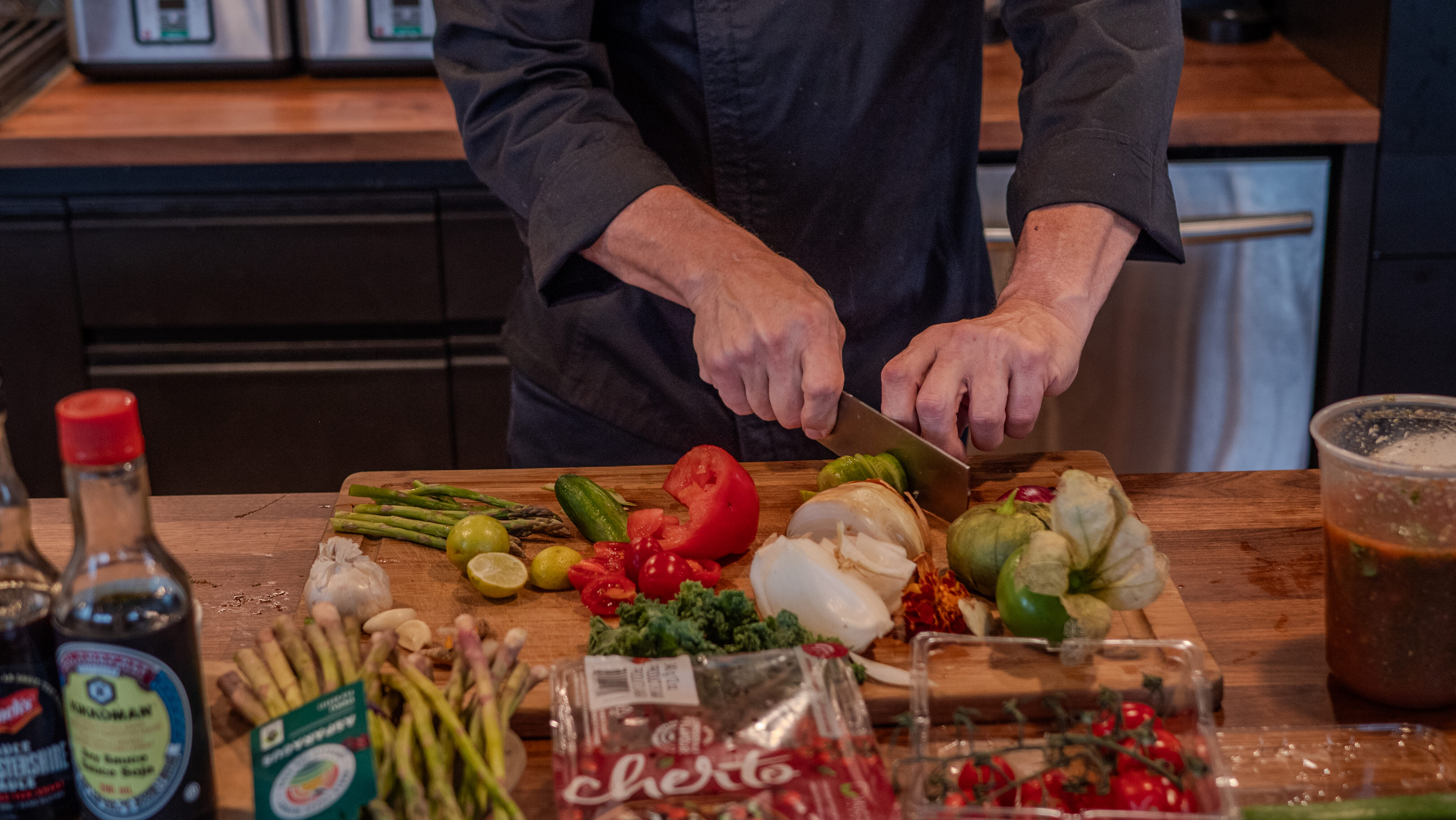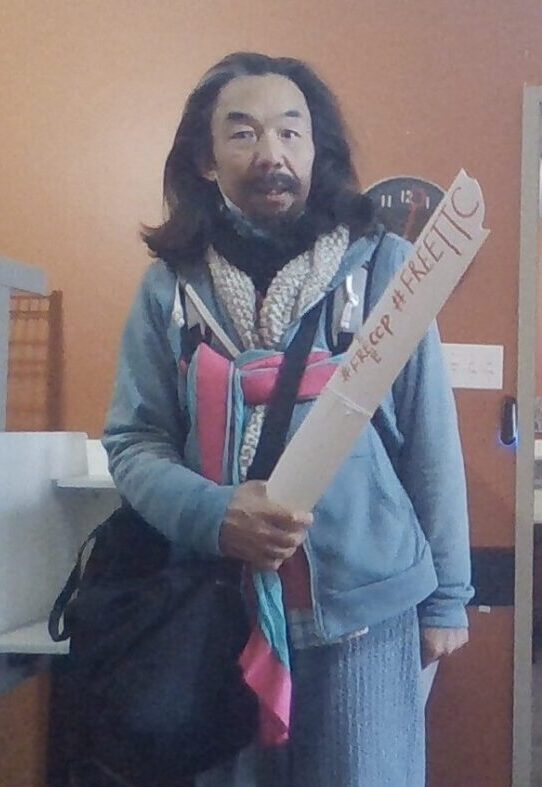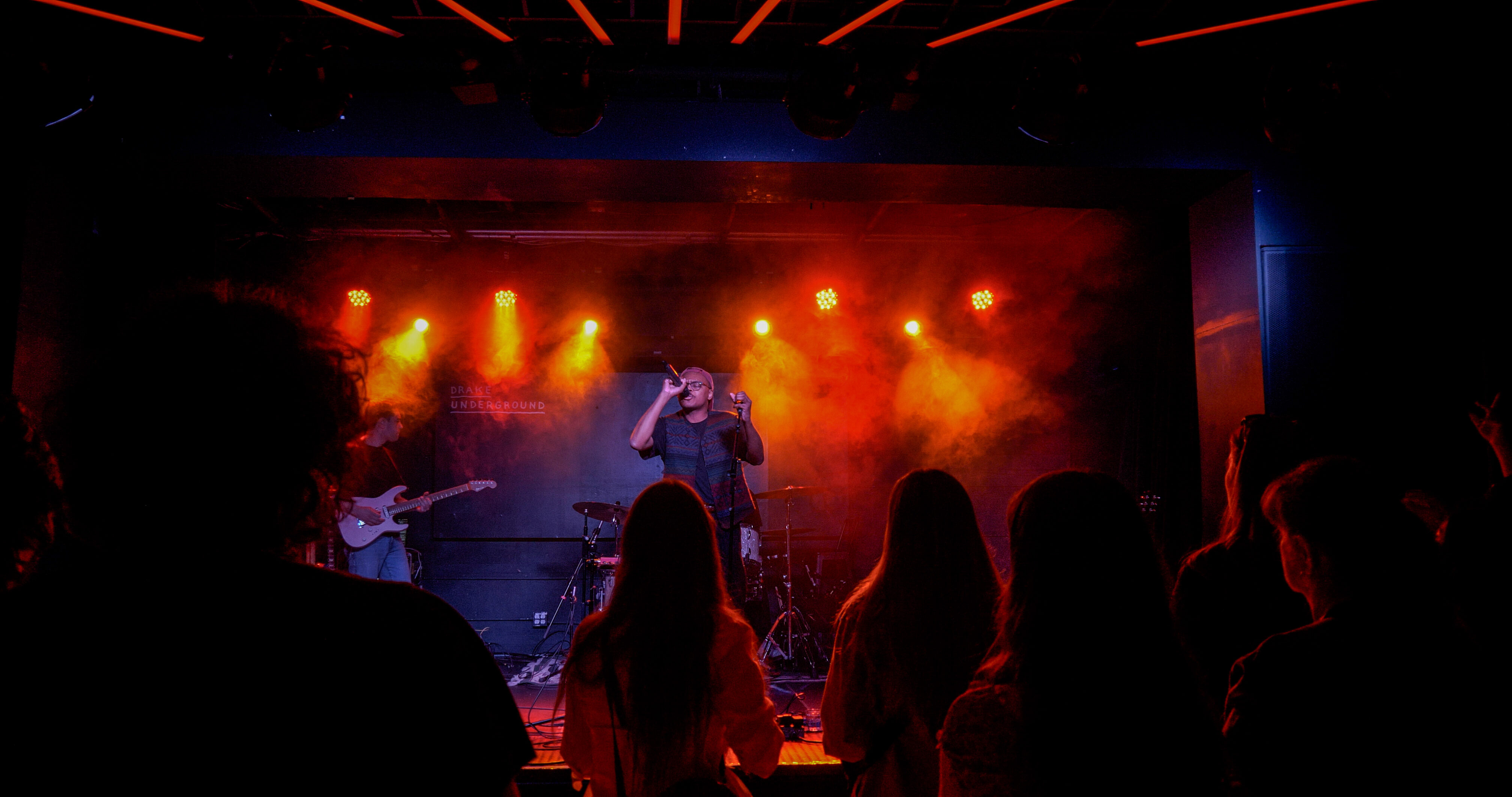PART 1
HOW TO BECOME AN INFORMED VOTER
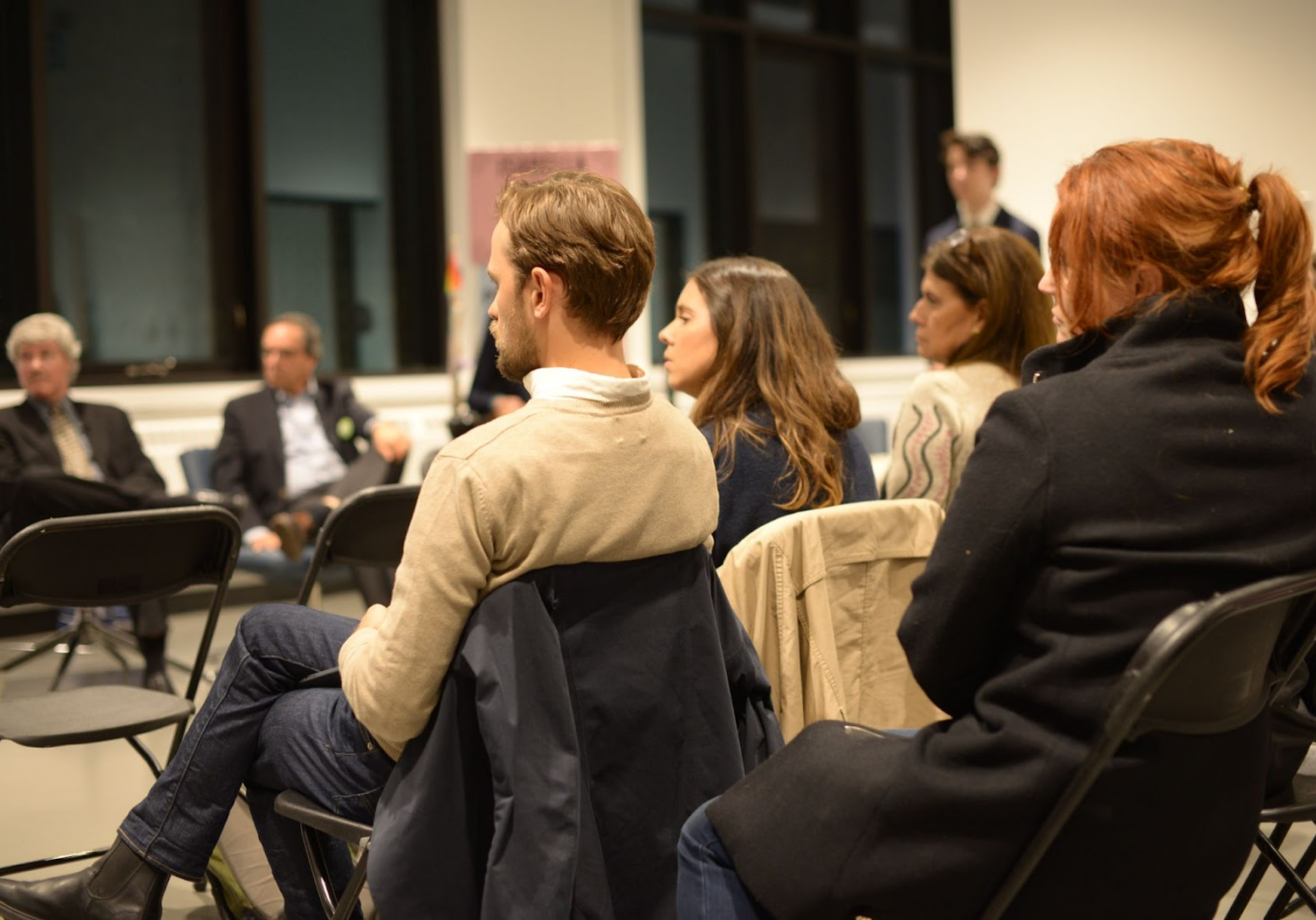
Students listen to mayoral candidates discuss their platforms at a town hall hosted by the University of Toronto Students' Union and the Scarborough Campus Students’ Union on Oct. 13, 2022.

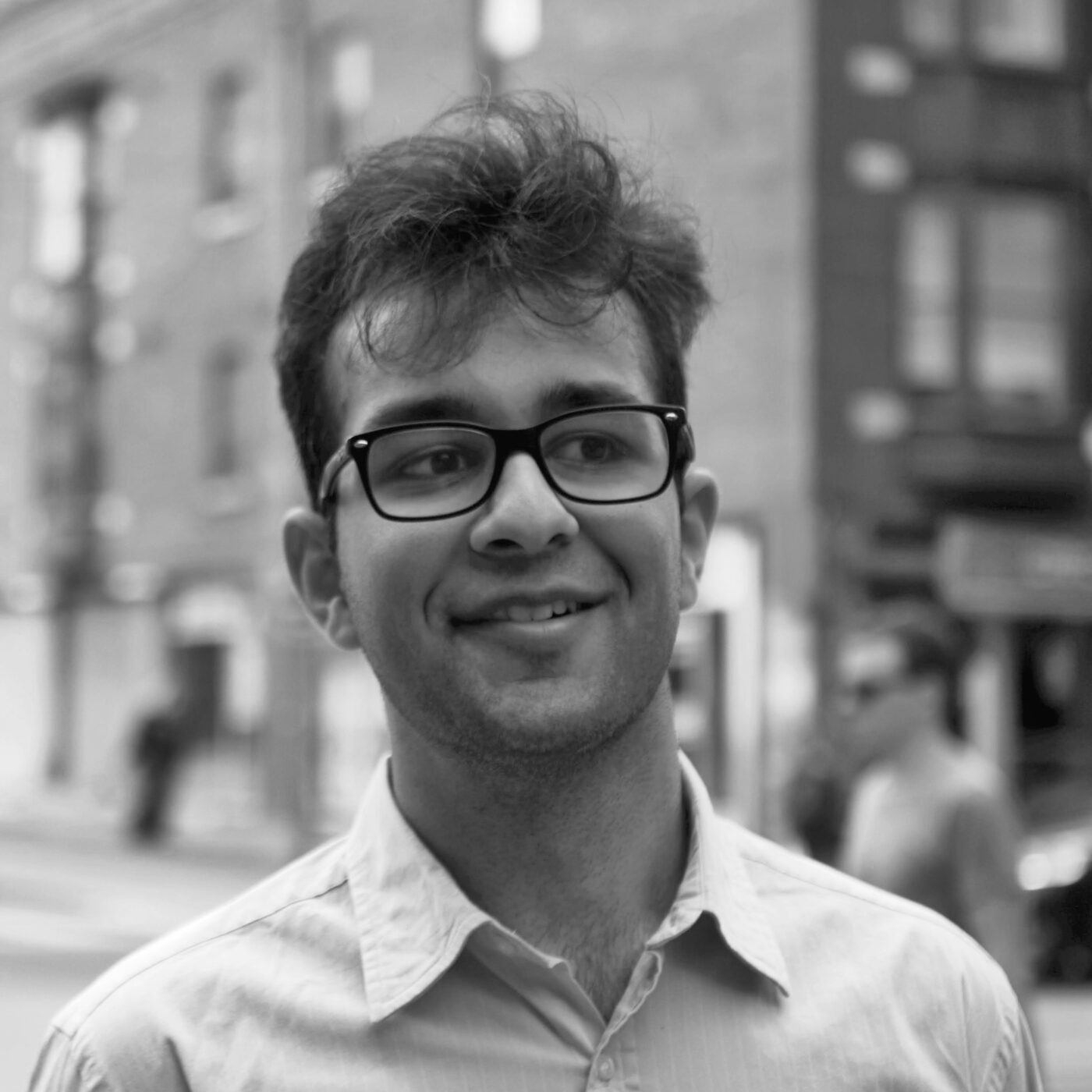
AMIT NEHRU
A Scarborough native and graduate of McMaster University's Bachelor of Health Sciences program. His preferred destination is the nearest library or hiking trail.
June 1, 2023
Making an informed voting decision in the upcoming municipal by-election can be intimidating, especially if you're new to the world of politics.
We know that outgoing Mayor John Tory resigned from office because he had an affair. But to be responsible voters in the upcoming by-election, we also need to know how our mayoral candidates will tackle the issues that affect us most.
If you don’t know where to start, keep calm and read the rest of this post.
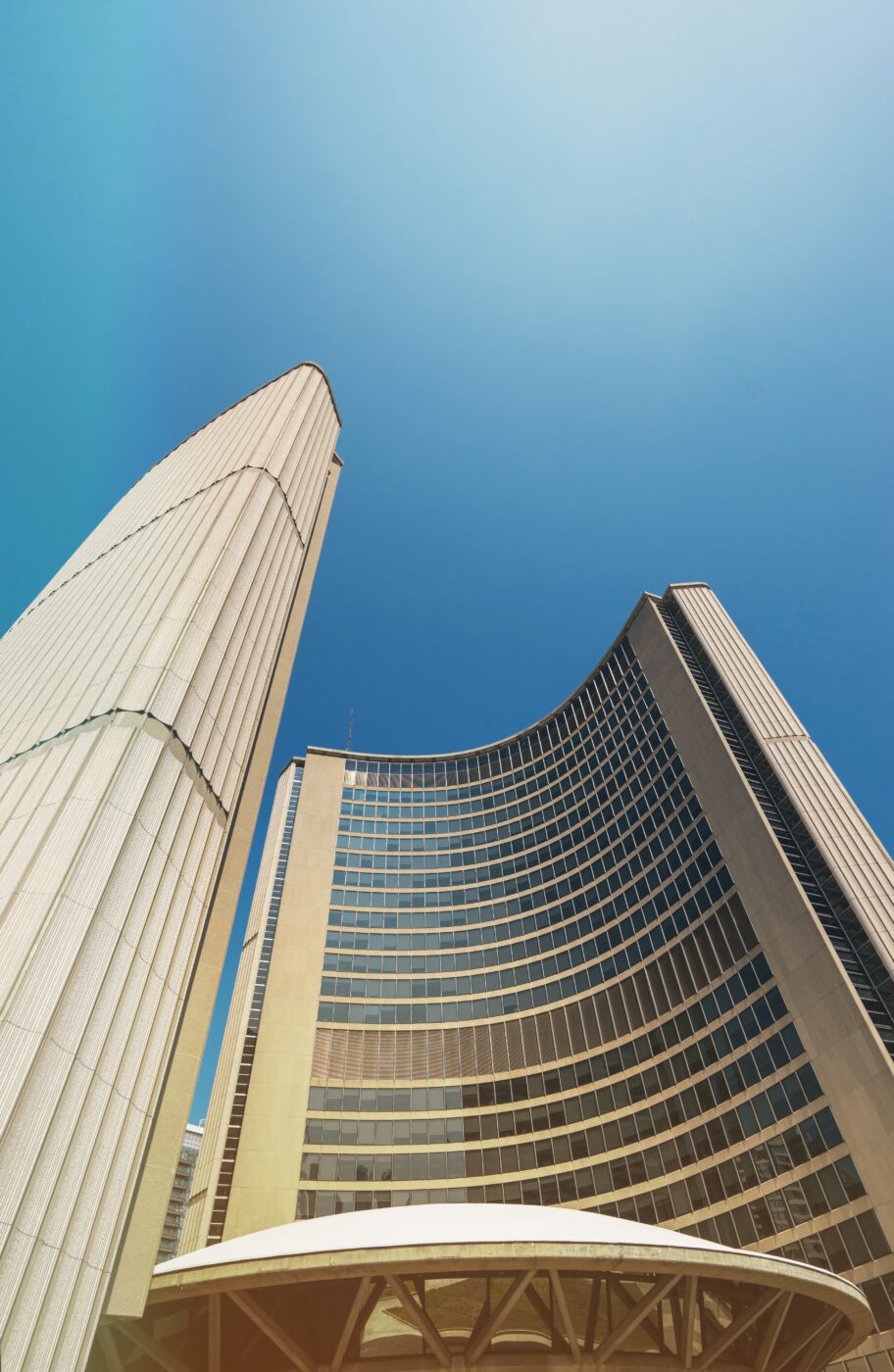
Toronto City Hall.

Know what municipal, provincial and federal governments are responsible for.
Let’s start with the basics. Municipal governments are responsible for local issues like garbage collection, public transit, roads, recreational programs, parks and fire services. Hate parking tickets? Take it up with your city councillor.
Have a complaint about health care or potential nuclear annihilation? Those are provincial and federal issues, respectively.
The Elections Canada website is a great resource for learning about the different levels of government, the role of elected officials and the voting process.
"To be responsible voters in the upcoming by-election, we also need to know how our mayoral candidates will tackle the issues that affect us most."
Know what your vote is worth.
Let’s say you just moved out of your parents' house and are living downtown in a condo. You can cast your ballot in either location. But does your voting location make a difference?
If you vote in a different ward, you'll be voting for a different city councillor. In some wards, this race may be lot closer than in others. Your vote might have greater sway in these contests.
When voting for mayor, however, every single vote is weighted equally. This means your vote will be worth the same as every other Torontonian who votes regardless of whether they cast their ballot downtown or in Scarborough.
Know the issues.
Identifying municipal issues that you care about is critical to making an informed vote. You can do this by following hyperlocal news outlets like The Green Line that provide nuanced reporting on different topics such as homelessness, food insecurity, transit and employment, which impacts Torontonians on a daily basis.
You can also consult polls to see what issues matter to your fellow citizens. Finally, have conversations with friends, family, co-workers and neighbours. Understand the municipal problems that they want resolved, and see if their priorities align with your own.

2022 Toronto mayoral candidate Chloe-Marie Brown (centre, seated) speaks at a mayoral town hall at the University of Toronto Student Commons building on Oct. 13, 2022. A total of nine mayoral candidates, including Isabella Gamk (left), were in attendance.

Know your candidates.
The City of Toronto provides online Election Guides that contain information about each candidate, such as their background and platform. You'll find that there are a lot more candidates running than those who are getting attention. Maybe a relatively unknown contender champions the issues that matter most to you.
Candidates’ websites share their platforms and stances on key issues. Local news coverage also provide meaningful perspectives on mayoral candidates. You should also attend political debates and events, as well as contact candidates directly to get more information.
Lastly, if a mayoral candidate was previously on city council or is running for re-election as mayor, you can download their voting records from the City of Toronto’s Open Data Portal. Find them under “Members of Toronto City Council - Voting Record."
Attend city council meetings.
Sitting in on city council meetings can be a great way for you to learn more about how local issues are addressed and managed, as well as how councillors and other members of the public interact with each other. You can even register to speak at council meetings if there's an issue on the agenda that you want to share your perspective on.
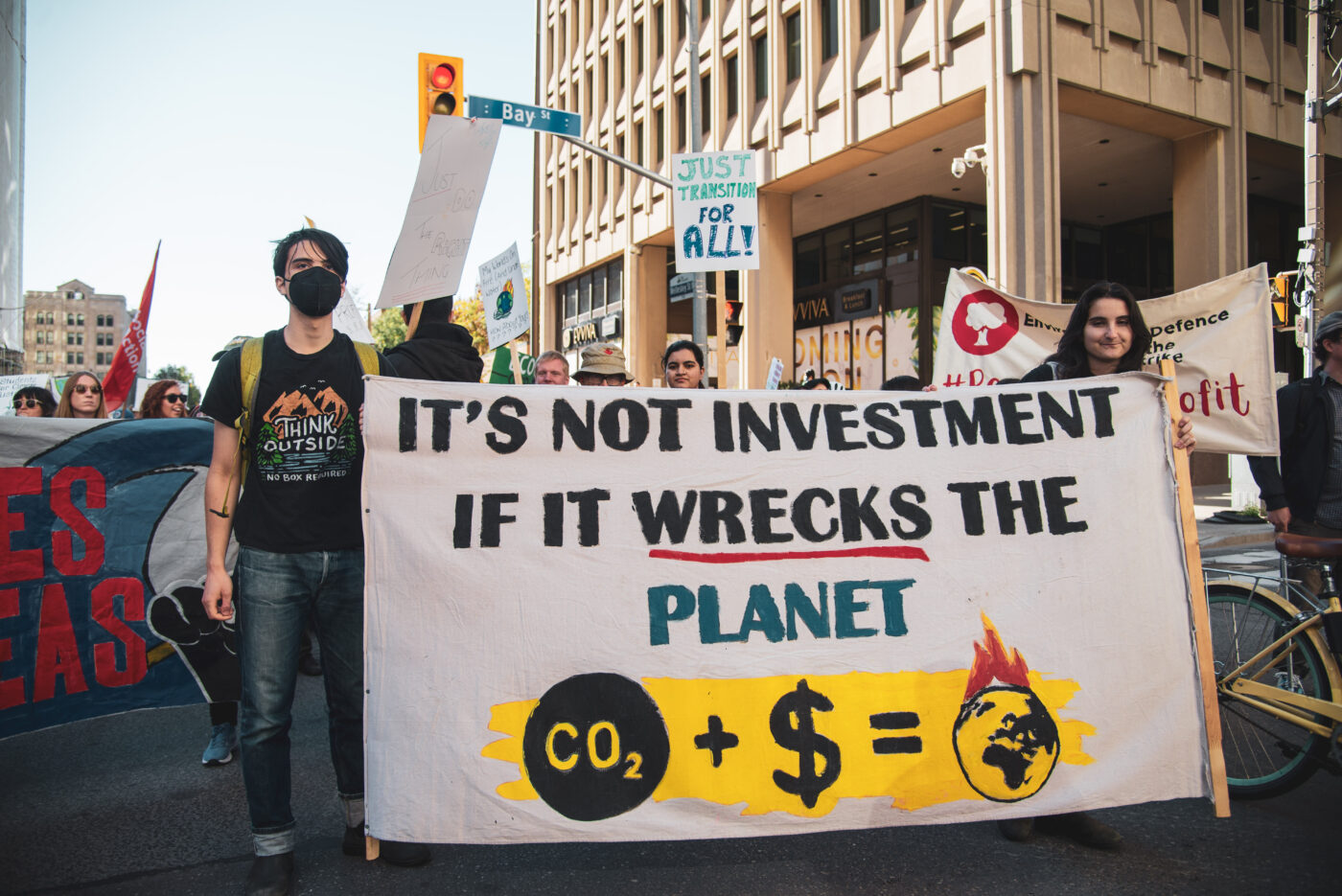
At the corner of Bay and Wellesley Streets, protesters at the 2022 Global Climate Strike hold a banner.

Get involved in your city.
Volunteer for a candidate's campaign, or help out with voter-registration drives. Becoming more involved in your community and city means you'll know more about it and care more about its well-being. This, in turn, will help you at the voting booth.

2022 Toronto mayoral candidate Gil Penalosa gestures at an empty chair to emphasize incumbent Mayor John Tory's absence from the town hall at the University of Toronto Students' Union's Student Commons on Oct. 13, 2022.

After reading this guide, be sure that you're registered to vote, and take some time to learn more about the new nominees for mayor.
Today’s stories lead to tomorrow’s solutions, so sign up for our newsletter to take action on the issues you learn about in The Green Line.
PART 2
Everything you need to know about the 2023 mayoral by-election
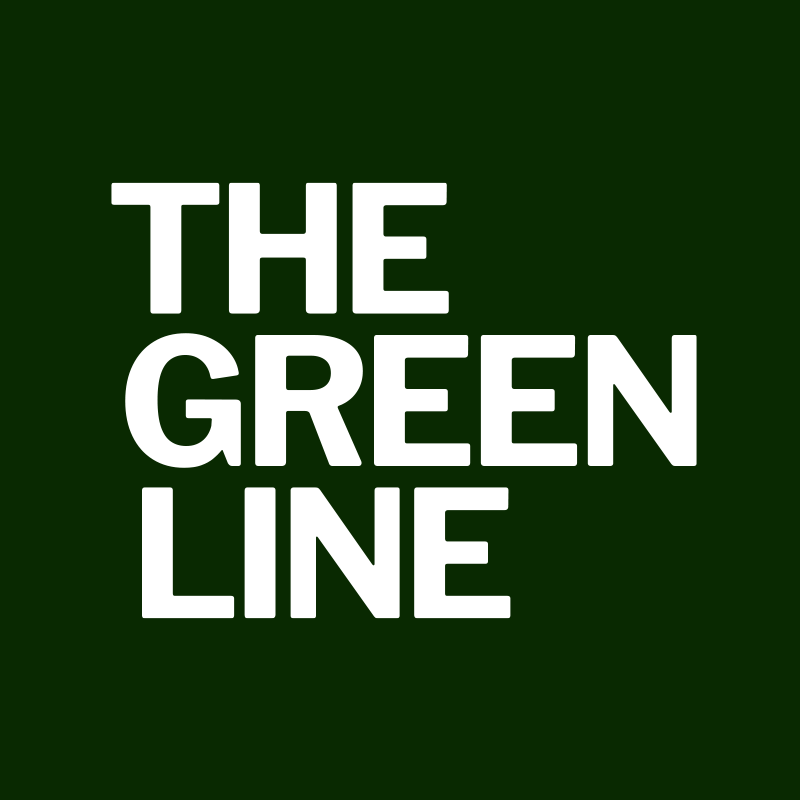
THE GREEN LINE
Hyperlocal, independent media outlet that investigates the way we live to help young and other underserved Torontonians survive and thrive in a rapidly changing city.
From candidate profiles to deep dives into the key issues this mayoral by-election, The Green Line has got your back.
OPINION: HOW TO BUILD A JOYFUL TORONTO
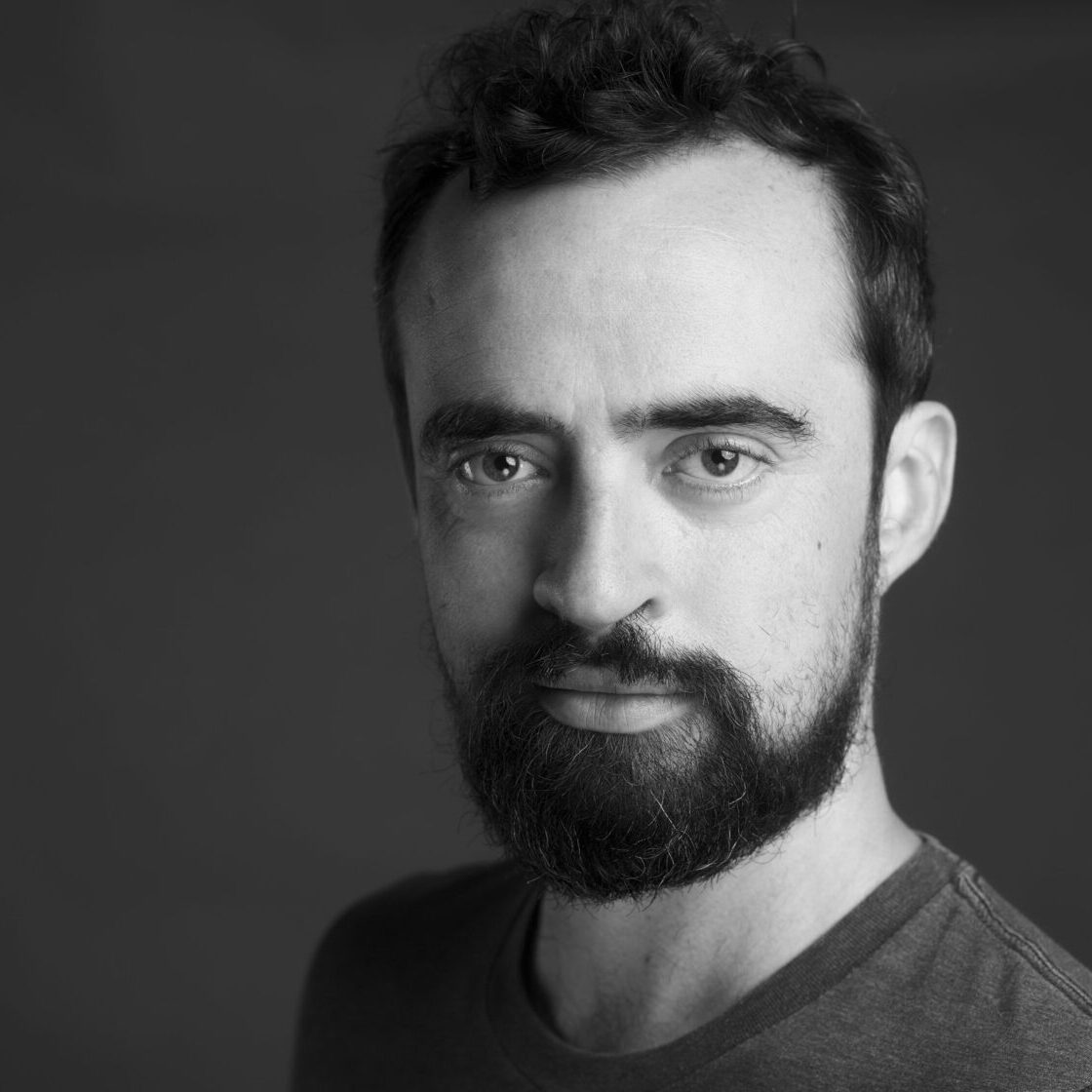
STEFAN HOSTETTER
Born and raised in Scarborough, and moving westward since. Now absorbed by the power of storytelling, the beauty of a well turned double play and the fight for climate justice.
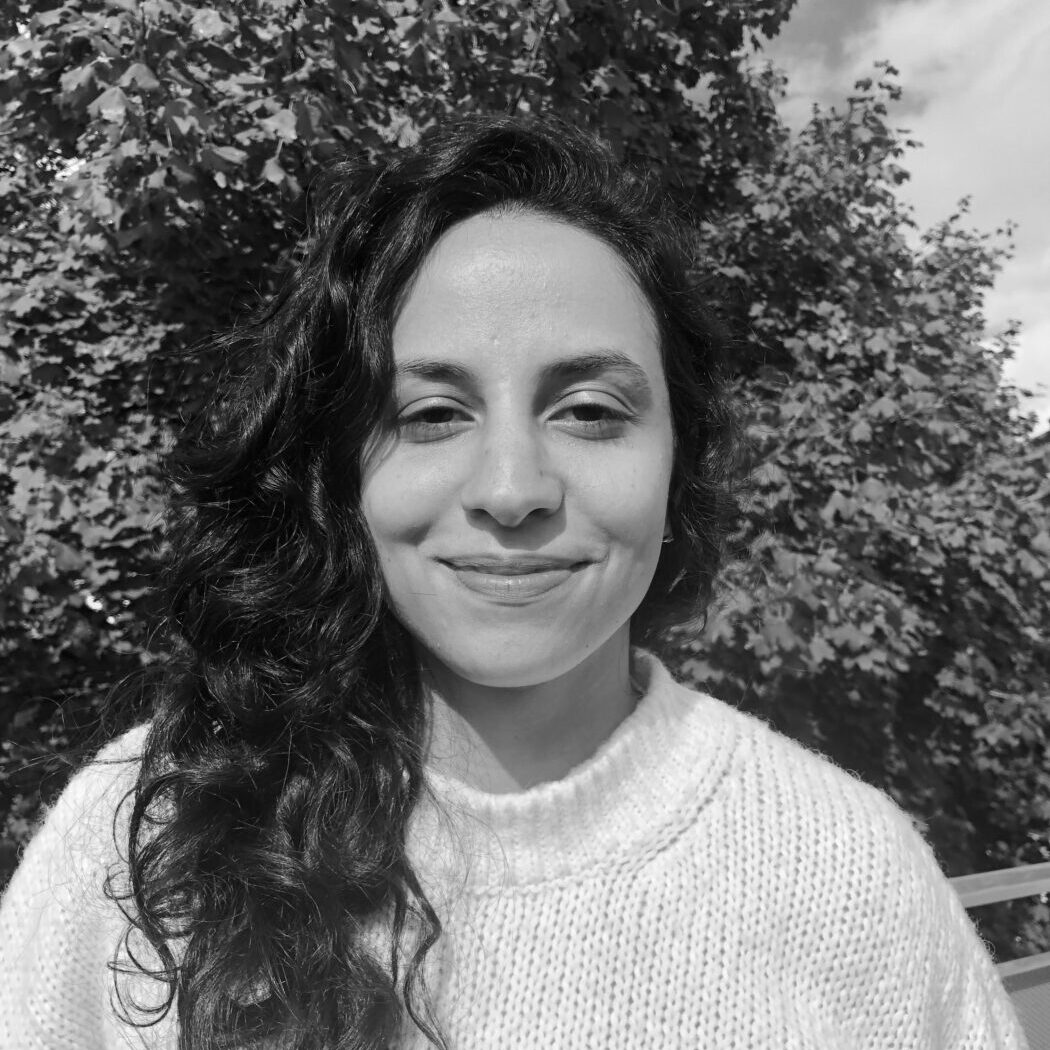
NORHAN HAROUN
Just another over-educated immigrant living in Toronto, chasing away political apathy with radical joy. Nightly dreams of kebabs and toumeya. Nothing beats cycling through the city on a warm, sunny day.
May 4, 2023
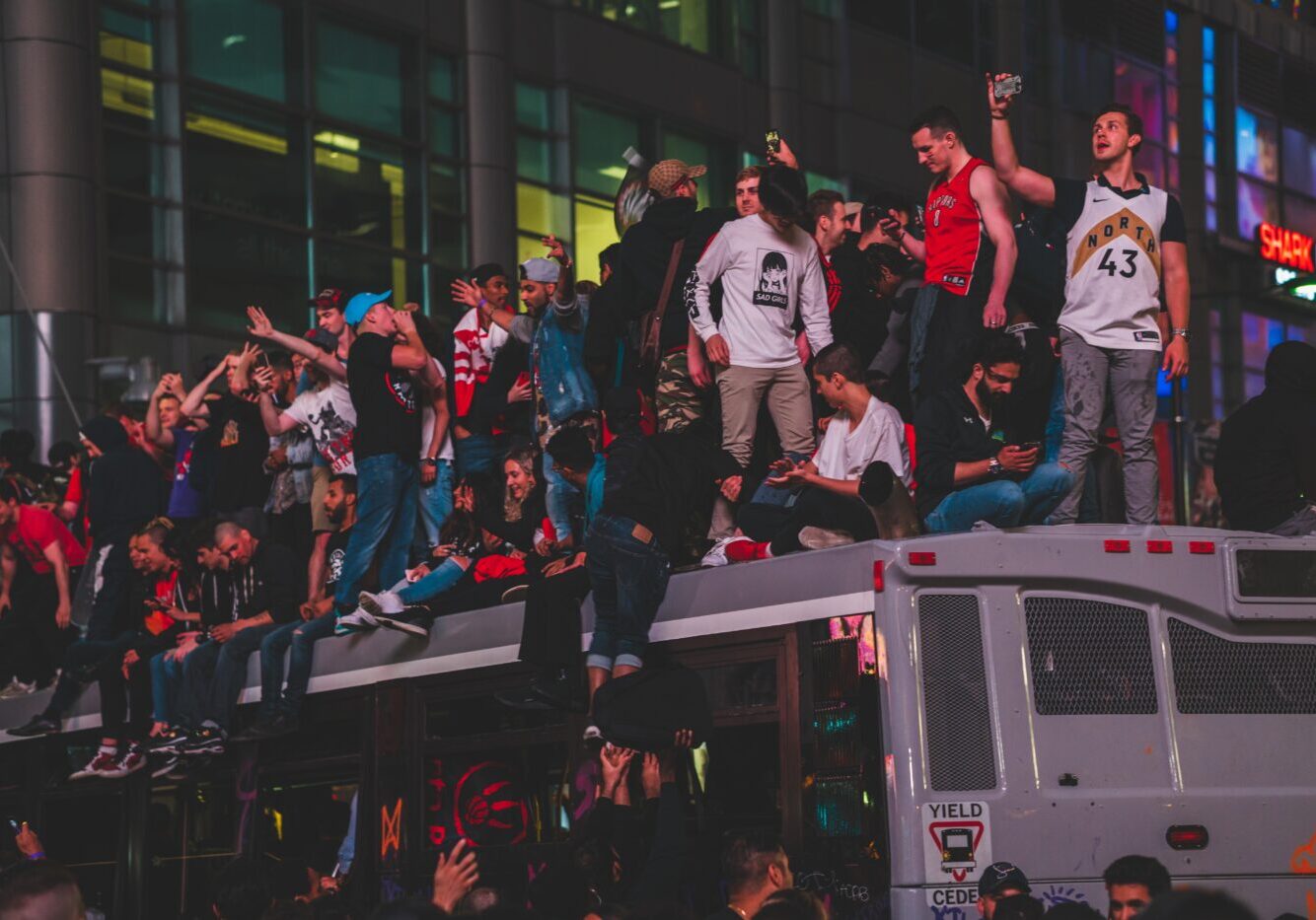
Toronto Raptors fans partying on top of a bus after the team won the 2019 NBA Championship.

Packed into the Horseshoe Tavern’s back room on a Monday night, the crowd sways in anticipation.
“I was here for a show in June 2019, and I was told that there was a [Raptors] game that night — that if you won, you’d have won it all,” Femi Koleoso, bandleader for the British jazz quintet Ezra Collective, declares to the crowd. “I saw you that night, Toronto, so I know what you are capable of.”
Koleoso walks across the stage to sit behind his drum set. A note from a sax fills the room, and the crowd erupts as if reliving that moment when the Raptors secured an NBA championship for Toronto for the first time.
Joy is hard to describe, but you know it when you feel it.
Cell phone video (we know, we know, it's vertical) of Ezra Collective performing at the Horseshoe Tavern on April 3, 2023.
🎥: Alex Woolaver.
If you’ve lived in Toronto for long enough, you’ve seen joy in this city, but you have to look for it. And if you’re still here, you know that joy is harder and harder to find these days. As stories of crumbling infrastructure, vanishing greenspace, and violence on both public transit and our roadways overwhelm local news, it can easily feel like we’re a city in decline — so much so, that as we enter this surprise election season, jokey comparisons to Gotham City fill our feeds.
This negativity can be felt everywhere, so let’s change the frame. How do we build a joyful city? As it turns out, if you just ask, Torontonians will give you some incredible ideas.
Reject Scarcity
Over the past few municipal election cycles, we’ve seen one call get louder and louder from all corners of the city: Find new revenue tools.
Organizations that’ve fought for strong city plans have watched them erode due to funding scarcity. For instance, accessibility advocate Luke Anderson has seen the impacts of poor infrastructure maintenance and lack of City capacity first-hand, so he calls for a rethinking of our priorities. “A joyful Toronto would give everyone the opportunity to come together, be seen and have all our needs met,” he says.
This erosion has become so pervasive that community groups across all sectors have come together to push back. The Toronto Environmental Alliance (TEA) is part of A City For All, a platform that incorporates actions from many in-depth, issue-specific municipal election campaigns from Toronto-based organizations. “We need a collective call to mobilize and invest the significant resources in our society based on values such as kindness and respect,” explains TEA executive director Emmay Mah, who believes that a united front is key to building a joyful city.
It’s impossible to look at Toronto’s growing skyline and not be struck by our wealth. Our city is not a poor city — it is an unequal one. A 2022 Statistics Canada infographic reveals that Toronto leads Canada in income inequality, and inequality is the enemy of joy, but not just for those with less. Indeed, multiple studies have shown that societies where people have more equal access to resources are happier and have better overall well-being. To build a joyful Toronto and truly reimagine a different city, then, we must reject the mindset that there isn’t enough to go around.
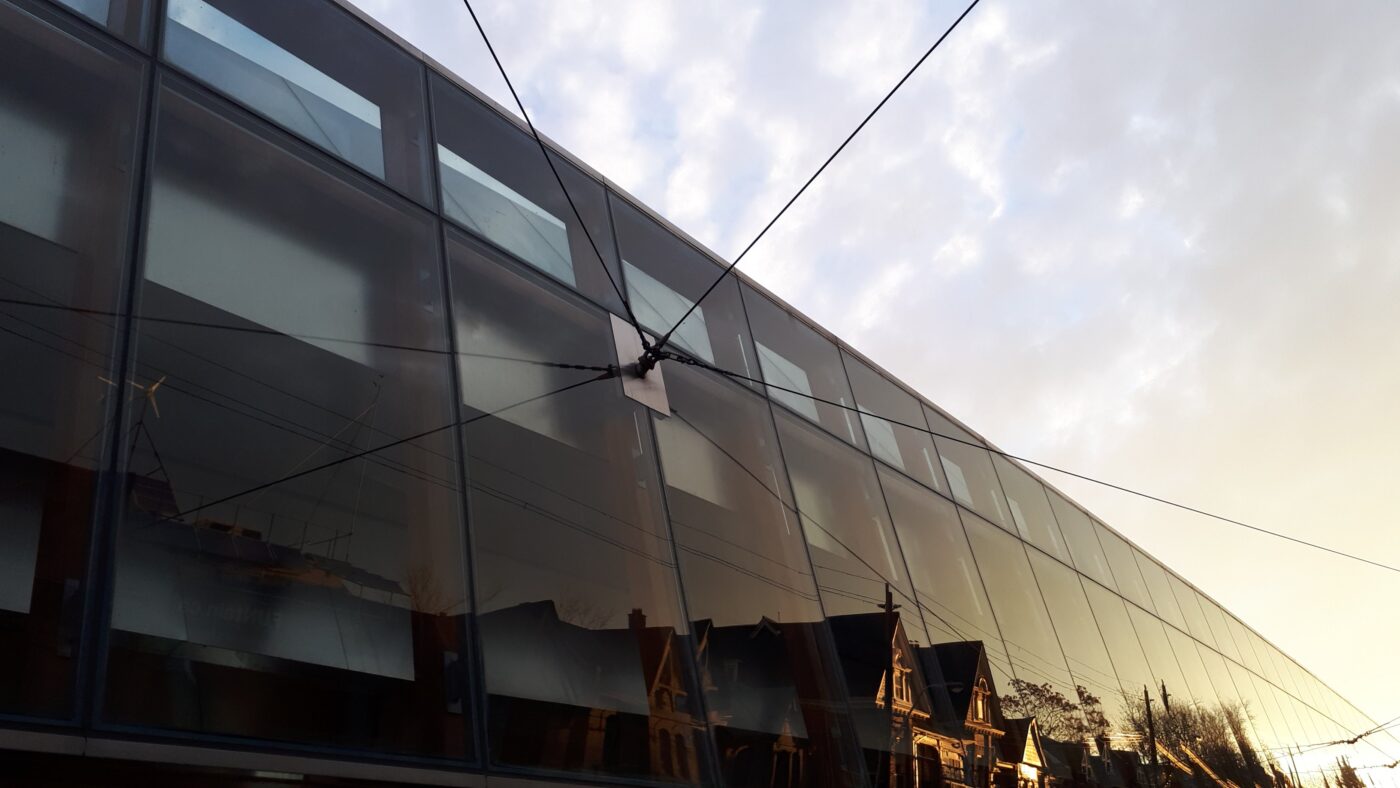
Infrastructure in downtown Toronto.

Build the Right Form
Make no mistake: Joy must be built into cities.
The Toronto Public Space Committee (TPSC) believes a good way of doing this is to provide spaces where people can gather. “Diverse [and accessible] public spaces like parks, plazas and community gardens can promote social interaction, well-being and a sense of pride,” says TPSC member Igor Samardzic. Meanwhile, Amy Castator, president and co-founder of Carbon Conversations, highlights the “need to reconnect with the joy that the natural world can provide us.”
Public luxuries are one critical component of a broader set of ideas that are laid out in Charles Montgomery’s book, Happy City: Transforming Our Lives Through Urban Design. The book recommends medium-density “streetcar neighbourhoods” with mid-rise apartments, decreased sprawl, and significant improvements to walking and cycling infrastructure. Each component is meant to provide people with more options to live their lives, more space to do it in and most crucially, connect them with other community members.
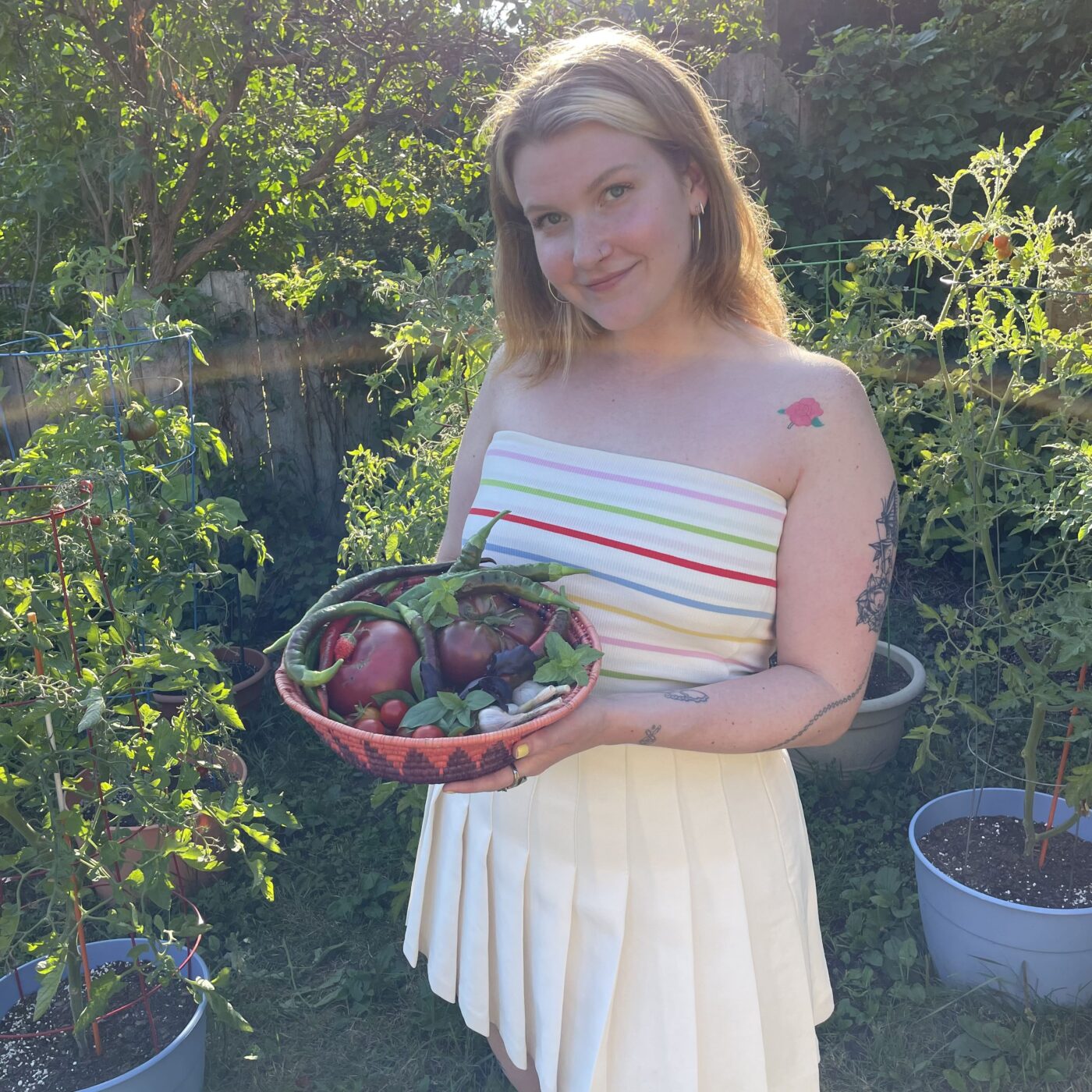
Briana Armson carrying a basket of fresh vegetables in a local garden in Toronto.

The character and quality of a city’s communities is shaped by the form of its spaces. It follows that diverse and inclusive communities require diverse and accessible spaces. These kinds of communities suffer when a city trades public land for luxury development or when, as local artist Briana Armson says, “Affordable housing options wither in the shadow of construction cranes.”
Activist and musician Owen Norquay believes Toronto can also benefit from an increased “culture of experimentation” at City Hall. The 2017 King Street pedestrian, cyclist and transit-priority pilot project was introduced to put “people and transit first,” as the City of Toronto described at the time. CaféTO emerged in 2020 as a temporary project to support local eateries by providing “access to public space to expand their outdoor dining space,” alongside access to City grants to cover the costs of expansion. Although both are instances of the City’s capacity to experiment, threats to the affordability of CaféTO fees demonstrate the need to commit to what made these projects necessary in the first place.
Norquay says a city that invests in its communities is based on the understanding that innovation and creativity require “hours of unpaid labour to learn, practice and produce art.”
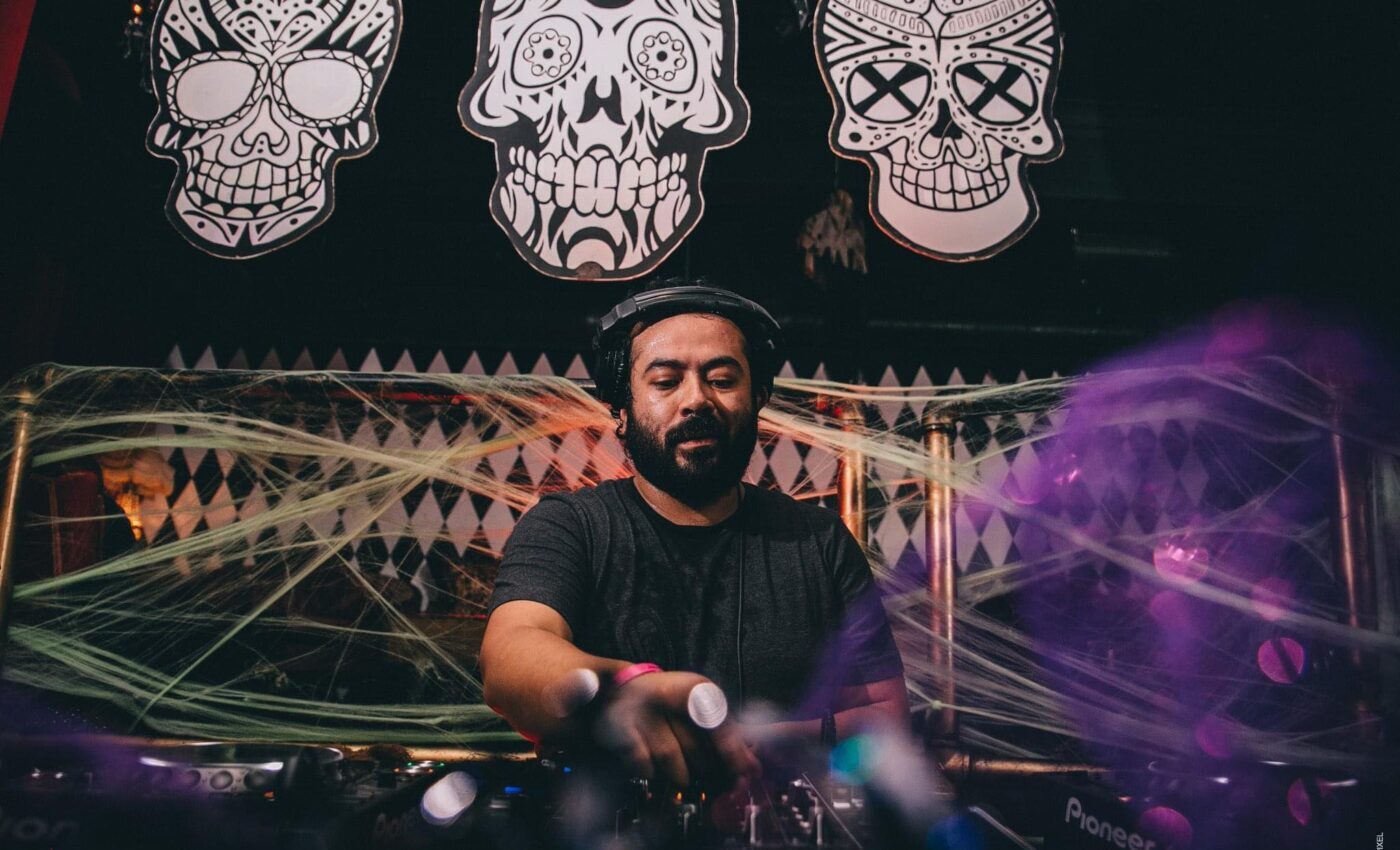
Luis Figueroa DJing at an event in Toronto.

INVEST IN ARTISTS
Give people what they need to live and the space to exist, and they will create art — art that will provoke deeper thought, help build connections with those around us and fill us with joy.
Toronto’s vibrant music and arts scene seems accidental — more a product of its historical diversity and density than of conscious design. Montreal, for example, spends upwards of two to three times more per capita on support for its artists than Toronto does. While the City of Toronto has earmarked $36 million for arts and culture funding and grants this year, the City of Montreal is planning to spend twice that: approximately $70 million.
Luis Figueroa, a multi-instrumentalist and deep house DJ responded to Toronto’s siren call in 2004, beckoning him to its diverse music scene. But Figueroa’s city pride began to waver as he watched the impact of cutbacks to our arts funding and the disappearance of iconic local venues. “As humans, [we] need music for therapy and a sense of community,” he explains.

Allie Gregory attending Shania Twink at the El Mocambo on Jan. 25, 2023.

This sentiment is one that many of us can relate to. Whether it’s the concert we look forward to all week, the show we binge that’s shot in familiar Toronto streets, or the murals we point out with pride to visiting friends, investing in our arts scene doesn’t only benefit artists — it benefits us all.
Joy is often connected to a particular space. As writer and artist Allie Gregory explains, “When I think of what makes a joyful Toronto, I remember places like Honest Ed's, the Kathedral/Big Bop, the Beaver, the Silver Dollar, the Island. We can't turn back time to save what we've lost, but we can try to facilitate a better future.”
Toronto is a city that knows what it is capable of — that it could be, should be better. The negative Gotham-esque vibes don’t come from a feeling of helplessness. Instead, it comes from the feeling that we’re choosing this path.
So, let’s choose joy instead.
AUDIENCE SURVEY RESULTS:
WHO IS YOUR IDEAL MAYOR?

AMIT NEHRU
A Scarborough native and graduate of McMaster University's Bachelor of Health Sciences program. His preferred destination is the nearest library or hiking trail.
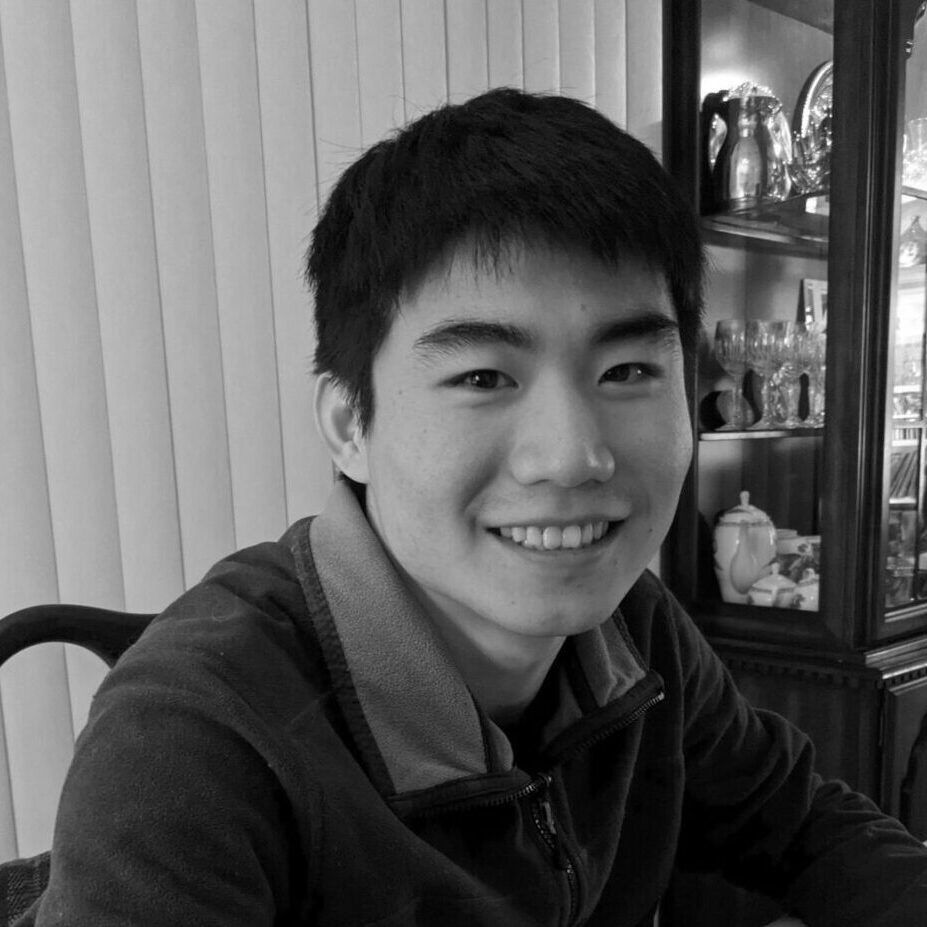
HANS XU
Full-stack developer passionate about making accessible, easy-to-use software. Staunchly anti-bloat, but learns React out of necessity. Interested in cybersecurity and best practices for online privacy.
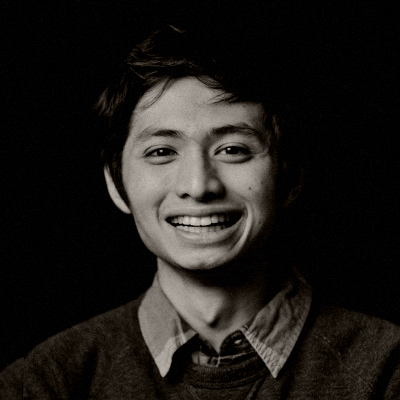
ALOYSIUS WONG
Master of Journalism graduate of Toronto Metropolitan University. Lives in North York where he prays that the Eglinton Crosstown will eventually be completed.
June 1, 2023
Which municipal issues matter most to you? What do you want our next mayor to prioritize? The Green Line wants to hear from you.
As the race to become Toronto's next mayor heats up, we want to know your vision for the city as people who live, work and play in it every day.
To help us keep you informed before Toronto's mayoral by-election on June 26, 2023, we'd like to hear your thoughts our city's future under new leadership.
Please fill in our survey here, or in the form below. It'll take less than 10 minutes to complete.
The Green Line asked our readers and every mayoral candidate running in the by-election on June 26 to complete a survey.
We asked them to explain what they think Toronto’s biggest issues are, as well as what they’d do to address them as mayor.
Fifty-one of our community members filled out the survey, as well as 32 out of the 102 candidates. Frontrunners Olivia Chow, Mark Saunders, Ana Bailão, Brad Bradford, Mitzie Hunter, Chloe Brown, Josh Matlow and Anthony Furey all responded. Here are our takeaways:
Demographics
Who's reflected in our survey?
While the majority of community respondents fell into the 25-to-39 age range, all age groups except for those under 18 years old were well-represented. As a result, we were able to collect the perspectives of Torontonians from a variety of different generational backgrounds.
However, the vast majority of respondents live in areas with subway access, so we may be missing data from segments of Toronto’s population that don’t have the subway as an accessible transit option.
Scroll down for more takeaways, or go back to the results menu.
Strong Mayor Powers
Should Toronto's next mayor use them?
An overwhelming 86 per cent of community respondents expressed their disagreement with granting the mayor extensive powers. But a nuanced perspective emerged, as only 69 per cent of participants believed that the next mayor should refrain from using such powers under any circumstances.
This reflects a delicate balance between acknowledging the need for a robust executive position, while ensuring accountability and preventing potential misuse of power.
Scroll down for more takeaways, or go back to the results menu.
Voter Engagement and Civic Responsibility
How likely is our audience to vote? What issues matter most to them?
Our community respondents showed commendable levels of civic engagement, as an impressive 88 per cent expressed a high likelihood of voting in the upcoming mayoral by-election. This strong commitment to participating in the democratic process highlights the emphasis these respondents place on electing representatives whose views align with their interests and concerns.
When asked to rank a list of key issues that The Green Line provided, a distinct majority of respondents identified housing as their foremost concern. Food insecurity and homelessness tied for second place. Public transit also ranked prominently, reflecting respondents’ desire for reliable and accessible transit options. Healthcare and Indigenous reconciliation rounded out the top five. These results were consistent across respondents of both the print and digital surveys.
Interestingly, in our print survey, policing and crime emerged as the least significant issue. Similarly, in our digital survey, it ranked second to last.
Traffic and roads ranked last in the digital survey. Due to an error on The Green Line’s part, this issue wasn’t listed as an option in the print survey. It may be that this result is due to the unrepresentativeness of our sample. As mentioned above, pretty much all of our respondents live on either the yellow or green subway lines. But people residing in North Etobicoke or Scarborough, for example — who are not represented in our sample — may prioritize this issue due to their limited access to the subway and consequent increased reliance on cars.
Scroll down for more takeaways, or go back to the results menu.
Confidence in Issue Ranking
What issues did people agree on the most? Where did people disagree?
While our community respondents largely agreed on the top five and bottom two issues, the survey highlighted decreased uniformity among participants when ranking issues such as employment, parks and conservation, local businesses, sidewalks and bike lanes, arts and culture, and public libraries.
Scroll down for more takeaways, or go back to the results menu.
Alignment with Mayoral Candidates
Do Toronto's mayoral candidates and its voters agree on what's most important?
The candidates’ survey responses somewhat aligned with the preferences of The Green Line’s community respondents. Interestingly, policing and crime ranked as the third-most important issue for the candidates. This disparity suggests that they, and perhaps other Torontonians we didn't survey in the city, may prioritize public safety concerns differently than the community respondents we polled. Conversely, Indigenous reconciliation, which ranked sixth for our community respondents, placed 11th among mayoral candidates.
Scroll up for more takeaways, or go back to the results menu.
MAYORAL CANDIDATE SURVEY RESULTS: WHO'S RUNNING AND WHAT DO THEY STAND FOR?

AMIT NEHRU
A Scarborough native and graduate of McMaster University's Bachelor of Health Sciences program. His preferred destination is the nearest library or hiking trail.

HANS XU
Full-stack developer passionate about making accessible, easy-to-use software. Staunchly anti-bloat, but learns React out of necessity. Interested in cybersecurity and best practices for online privacy.
June 12, 2023
As part of our ongoing coverage of the 2023 Toronto mayoral by-election, The Green Line asked all 102 candidates (yes, including the dog) to complete a survey.
We wanted to learn more about their respective platforms, and why they believe they’re the best person for the job. Featuring responses from the leading candidates and more, our team compiled the survey results in an easily digestible format, so you can learn which candidate’s views are most in line with your values.
To date, around 30 per cent of candidates — including all the leading candidates — completed our survey, so we'll be adding more profiles as we receive their answers.
Navigate through all the profiles by clicking the candidate names, below.
- Bahira Abdulsalam
- Emmanuel Acquaye
- Blake Acton
- Ana Bailão
- Brad Bradford
- Chloe Brown
- Celina Caesar-Chavannes
- Sarah Climenhaga
- Matti Charlton
- Olivia Chow
- Gord Cohen
- Frank D'Angelo
- Cory Deville
- Anthony Furey
- Isabella Gamk
- Feng Gao
- Brian Graff
- Mitzie Hunter
- Syed Jaffery
- Mark LeLiever
- Giorgio Mammoliti
- Josh Matlow
- Walter Rubino
- Mark Saunders
- Robert Shusterman
- Erwin E. Sniedzins
- Meir Straus
- Mitchell "Mickey" Austin Toye
- Reginald Tull
- Jeffery Tunney
- Kiri Vadivelu
Bahira Abdulsalam
Toronto mayoral candidate Bahira Abdulsalam took the time to fill out our mayoral candidates survey. Here's what she had to say.
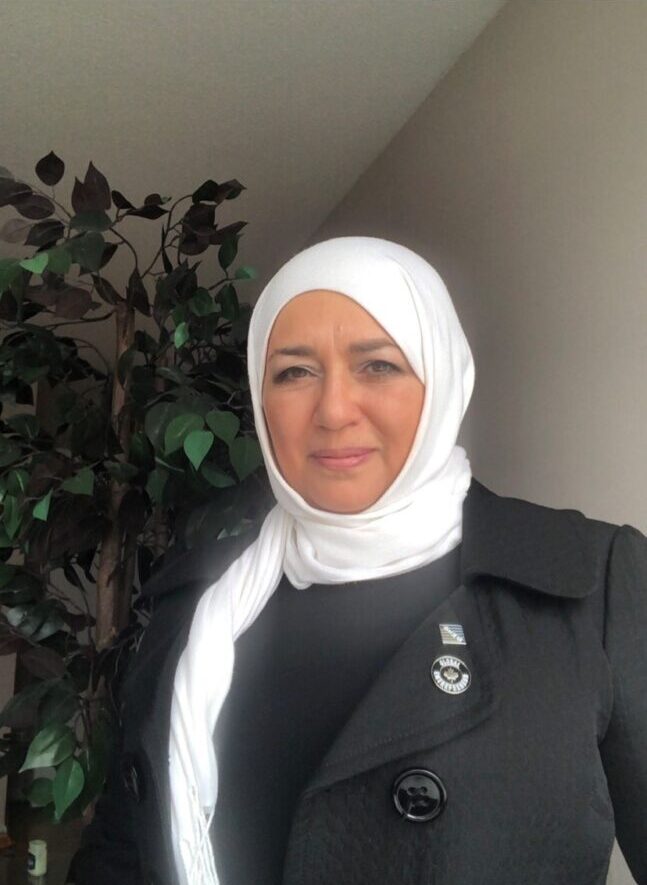

In 100 words or less, what is your vision for the future of Toronto?
I am deeply dissatisfied with the current state of our city and the divisiveness within our society. I am committed to working collaboratively with all levels of government, organizations, and individuals to create a more socially just, diverse, and inclusive city that upholds the values of democracy and freedoms. My leadership style is based on humility, grace, and service to the people, and I aim to ensure that the voices and needs of our community are heard and met. I believe in utilizing technology, data analytics, and partnerships to improve city services, attract foreign investment, and promote tourism. By implementing smart cities strategies, advanced technologies, and NetZero strategies, we can transform Toronto into a model city that attracts global investments and businesses while maintaining ethical corporate strategies.
Why do you qualify to be Mayor of Toronto?
I am a certified professional engineer in Ontario a PhD holder with over 30 years of experience in building and fixing structures in cost-effective ways, an educator, an entrepreneur, a mother and an immigrant who understands the challenges of underrepresented people in Toronto and capable of providing solutions based on educated professional judgment to the best interest of people.
What is Toronto’s greatest strength right now?
Diversity.
What is the most pressing issue in Toronto right now?
Affordability and racism.
Do you agree with the “Strong Mayor Powers” and would you use them?
No, that’s against my principals and policies. I am a strong advocate for human rights democracy and freedoms.
Rank the following issues from 1 to 14, with 1 being the most important and 14 being the least important.
Editor’s note: No further rankings provided beyond these four.
- Housing
- Policing and crime
- Public transit
- Healthcare (Toronto Public Health)
Outline the three most important issues currently facing Toronto, and describe how you plan to address each of them as Toronto’s next mayor.
Empowering Racial Minorities and Social Justice
U.S. Economy Lost $16 Trillion because of discrimination. Let's save our economy, implement real solutions to our problems. Toronto is home to a significant percentage of racial minorities, with over 50% of the population identifying as a visible minority. This diversity presents both opportunities and challenges, as it requires the city to address issues of racism, discrimination, inequality, and social exclusion. As strong advocate for diversity and inclusion, I am running to empower every person who is not given a fair opportunity in Toronto. I strongly believe that everyone deserves a fair chance at success and that the government should work for the people. I will strive to create a Toronto that is inclusive and welcoming to all, where everyone has access to the same opportunities regardless of their race, income, gender or any ground of discrimination. I will work to create policies that will uplift the marginalized and vulnerable communities in our city and ensure that their voices are being heard. By ensuring that we get rid of racial discrimination which is rooted in our organizations. We will calculate the savings that will result from real Justice to be used to boost the economy of our city and help every individual in our city.
My goal is achieving social Justice and improving the basic services using solutions that will make this city thrive. I will stand up for our most vulnerable people. I will work on reconciliation with our first nations. I will be the voice of the young black boy who was unjustly locked in closet room in a Toronto elementary school because of the colour of his skin. I am running to represent the little girl that her hijab was stripped of and her family was attacked for speaking up. I will stand up for the child who was injured at school due to a lack of care. I will stand up for every woman who suffered from violence and was denied access to justice. I will be the voice of the underpaid teacher, the elderly person struggling to afford rent. Those are real individuals who are seeking justice, the qualified immigrant who is unable to find meaningful employment, the disabled person who is unable to move independently, the hard-working parent who is unable to put food on the table for his family. I will support the small business owner who has been forced to close their doors due to lack of resources. I am also determined to support renters who are facing poor services and are indirectly pressured by major corporations to leave their homes, as well as our successful nurses who felt humiliated and professionals who are barely able to make ends meet due to inflation. I will be a voice for the older generations suffering from neglect. And for the youth who have no free time to enjoy their lives to be able to pay their elevated telecommunication, insurance and home bills. I will stand up for those who are living in poverty, food insecurity and everyone who is left behind without shelter in this extreme weather conditions.
Affordable Housing and Infrastructure
Investing in affordable housing is crucial to addressing the current housing crisis and providing long-term solutions for affordable, sustainable, and healthy housing for all Torontonians. Affordable housing is a basic human right, and all Torontonians should have access to safe, affordable homes where they can live with dignity and security. We will build on the city's efforts to solve the housing challenges and we will work together to provide creative ways for building affordable homes, proposing solutions for the most critical city problems, we will allow building more homes and creating revenue for the city of Toronto while ensuring that this will not negatively affect the communities, transportation, or the environment. Ending homelessness will be my goal. I will use advanced technologies to accelerate the approval process for issuing the licence and allocate funds to building more affordable homes using more advanced technologies, we will work with the provincial government to reconstruct abandoned schools for affordable homes while insuring space availability for education activities in our new plan. I will fix our crumbling homes and infrastructure using advanced technologies to protect our assets and invest in our infrastructures.
Furthermore, I recognize that education is the foundation of any successful society. We are living a huge challenge in Toronto with the province underfunding the education system. Access to quality education is essential for the growth and development of our community. Therefore, I will prioritize the improvement and advancement of our educational system. I believe that every child deserves a high-quality education, and I will work tirelessly to ensure that our schools provide the resources and support necessary for every student to thrive. Working with the provincial government and school boards to insure a strong base for our society.
What guiding principles or philosophy do you try to live by?
As a leader, I believe in prioritizing the well-being and interests of my community over my personal interests. It is important to create an environment that fosters growth, development, and provides access to the resources and support necessary for community members to thrive. Furthermore, I am committed to upholding the rights of all individuals within my community, regardless of their background or status. This includes treating everyone with respect, empathy, and kindness. To ensure that my leadership is effective and ethical, I always strive to lead with humility, sincerity, and honesty. I am committed to being transparent in my actions and decisions and to seek the guidance and support of my team to foster collaboration and build trust.
Emmanuel Acquaye
Toronto mayoral candidate Emmanuel Acquaye took the time to fill out our mayoral candidates survey. Here's what he had to say.
HE/HIM
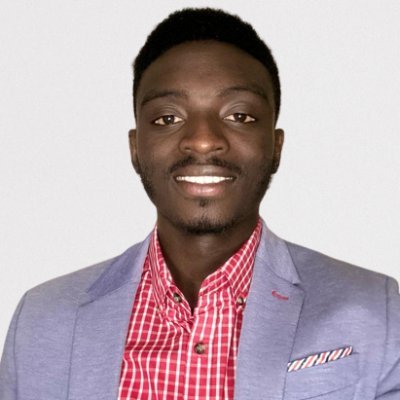

In 100 words or less, what is your vision for the future of Toronto?
I would like to see the homelessness population be reduced to 60% during my administration. I would like to balance out luxurious Toronto and the workers of Toronto out by preventing extreme gentrification. Workers deserve luxury too. Why does gentrification always have to drive lower income earners away from their neighbourhoods? The street car project has taken too long. Let's resolve the issue
Why do you qualify to be Mayor of Toronto?
I am the only major candidate with well-thought-out solutions. I have no political relationships so I am unaverted in calling out any politician or company.
What is Toronto’s greatest strength right now?
None. The city especially, after the pandemic, has been on the decline.
What is the most pressing issue in Toronto right now?
Homelessness, housing, the TTC service and road closures.
Do you agree with the “Strong Mayor Powers” and would you use them?
Not entirely. I believe that as a Mayor, you should be able to prove beyond reasonable doubt why the house should support your decision. I do however believe that there situations where solutions are faster and better implemented via the strong mayor power.
Rank the following issues from 1 to 14, with 1 being the most important and 14 being the least important.
- Homelessness
- Housing
- Employment
- Traffic and Roads
- Housing
- Healthcare (Toronto Public Health)
- Food Insecurity
- Policing and Crime
- Local Businesses
- Indigenous Reconciliation
- Parks and Conservation
- Public Libraries
- Sidewalks and Bike Lanes
- Arts and Culture
Outline the three most important issues currently facing Toronto, and describe how you plan to address each of them as Toronto’s next mayor.
Please refer to any of my social media platform for answers.
What guiding principles or philosophy do you try to live by?
Life is in black and white. Think every through. Business first, then pleasure.
Blake Acton
Toronto mayoral candidate Blake Acton took the time to fill out our mayoral candidates survey. Here's what he had to say.
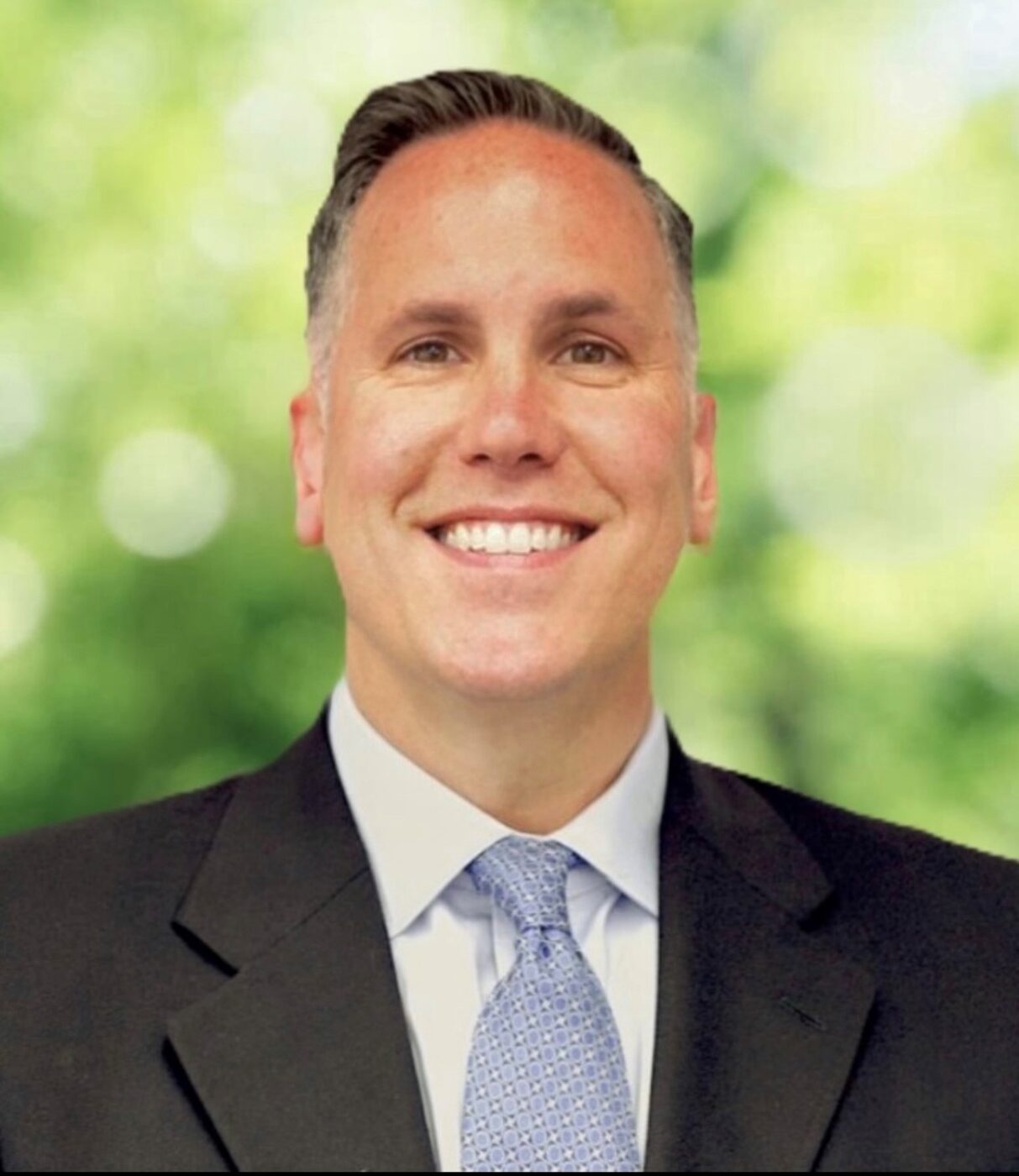

In 100 words or less, what is your vision for the future of Toronto?
The opposite of the previous administration, the wasteful city spending will stop under my watch. Finally the taxpayers will come first and the city will be safe & clean, there will be a safe, clean, reliable, free TTC.
Why do you qualify to be Mayor of Toronto?
I’m extremely intelligent, lived in Toronto all my life, served the citizens of Toronto in the capacity of a Toronto police officer for years. Anything the previous mayors have done I’ll do better.
What is Toronto’s greatest strength right now?
The people of Toronto want positive change; they are fed up with previous administrations lying to them.
What is the most pressing issue in Toronto right now?
Safety, cleanliness and wasteful City spending.
Do you agree with the “Strong Mayor Powers” and would you use them?
With the right mayor they are excellent.
Rank the following issues from 1 to 14, with 1 being the most important and 14 being the least important.
Editor’s note: No further rankings provided beyond these four.
- Policing and crime
- Public transit
- Healthcare (Toronto Public Health)
- Housing
Outline the three most important issues currently facing Toronto, and describe how you plan to address each of them as Toronto’s next mayor.
Crime, cleanliness, wasteful spending, crime is out of control, more police are required to protect citizens, the city is filthy, pole holes are destroying vehicles and bicycles. This will end, the wasteful spending will end, I will order a 90-day review of City spending.
What guiding principles or philosophy do you try to live by?
Honestly, reliability and transparency.
Ana Bailão
Toronto mayoral candidate Ana Bailão took the time to fill out our mayoral candidates survey. Here's what she had to say.
SHE/HER
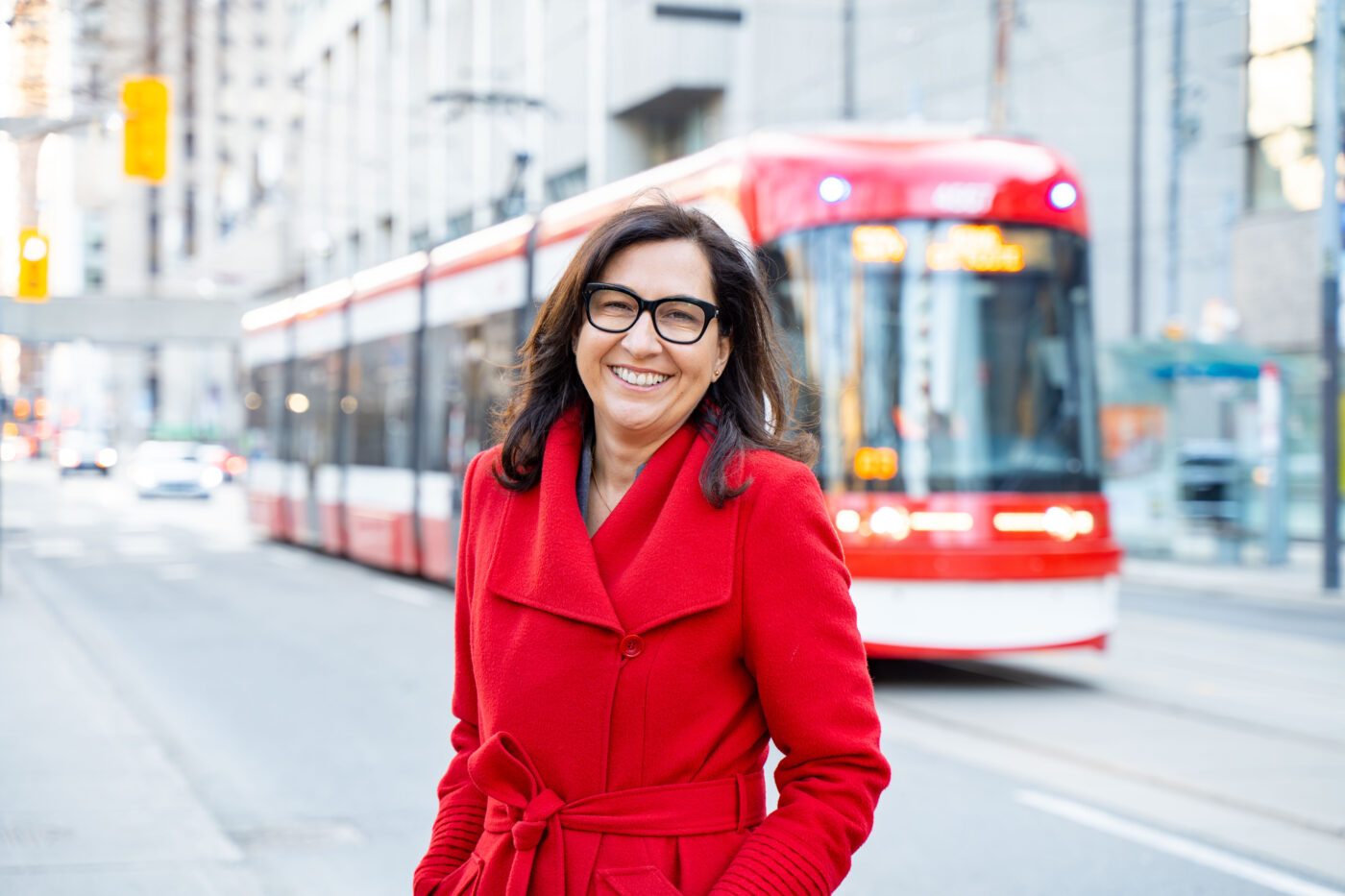

In 100 words or less, what is your vision for the future of Toronto?
I believe that leadership is about creating opportunity. About making sure that every time you walk through a door, you leave it open wider behind you for others to walk through. As your Mayor, I want to give people the same sense of opportunity that my family felt when I arrived. Opportunity that allowed me and my parents to get jobs and buy a family home. We all see that the city isn’t working as it should. That’s why I say: It's time for Toronto to return to its promise. To be a place that rewards hard work. And for people to feel like they can realize their potential. It's time to fix city services. It's time to make life more affordable and keep taxes low. That's why it's time for me, Ana Bailao, to be your next mayor. I look forward to working with elected officials of all political stripes, at every level, to deliver for Toronto residents. I am so proud to have 7 councillors endorsing me, 11 members of parliament, a member of provincial parliament, 6 labour organizations, and workers and residents across Toronto. I am the only candidate who has broad support in this election, and a track record of working with council and other governments to deliver billions of dollars our city needs to fix services, build housing and make life more affordable for residents of Toronto.
Why do you qualify to be Mayor of Toronto?
I am an experienced leader with a plan to fix city services and build more housing to make life better and more affordable for Toronto residents. My family moved from Portugal and chose to call Toronto home when I was 15 years old because it's a city of opportunity. After graduating from the University of Toronto, I built a strong career in the private sector for more than a decade. When I wanted to give back through public service, I ran for office in 2010 and in three elections residents elected me because she listens to their concerns and delivers results. Over twelve years I served Toronto residents on Council and as Deputy Mayor, on the Planning and Housing Committee and with Toronto Community Housing I championed housing, getting more housing built and securing more money for housing from other governments than in any other decade in Toronto’s history. I know Toronto residents expect, deserve, and can have better from their city--better services, better transit, and more affordable housing--and I am ready to roll up my sleeves and deliver for Toronto.
What is Toronto’s greatest strength right now?
Toronto's greatest strength is its people.
What is the most pressing issue in Toronto right now?
The affordability and housing crisis. As Mayor, I will roll up my sleeves on day one to fix services, build housing and make life more affordable.
Do you agree with the “Strong Mayor Powers” and would you use them?
If we are going to make record progress on housing, transit and affordability, Toronto needs a Mayor who knows what they’re doing - and can work with others to get things done. I will not use the majority rule. I am someone who works to bring pragmatic solutions to the table. I know how to build consensus to deliver for Toronto. With endorsements from 7 Councillors and 11 MPs I have proven I can bring people together and get things done for our City. I do support the Mayor presenting the budget every year and having the ability to hold City staff accountable. These are powers that I believe many Torontonians already think the Mayor has.
Rank the following issues from 1 to 14, with 1 being the most important and 14 being the least important.
Editor’s note: No answer provided.
Outline the three most important issues currently facing Toronto, and describe how you plan to address each of them as Toronto’s next mayor.
Fixing services, building housing and making life more affordable. For more information please visit my website, www.anabailao.ca.
What guiding principles or philosophy do you try to live by?
I believe that leadership is about creating opportunity. About making sure that every time you walk through a door, you leave it open wider behind you for others to walk through.
Brad Bradford
Toronto mayoral candidate Brad Bradford took the time to fill out our mayoral candidates survey. Here's what he had to say.
he/him
info@votebradford.ca
Votebradford.ca
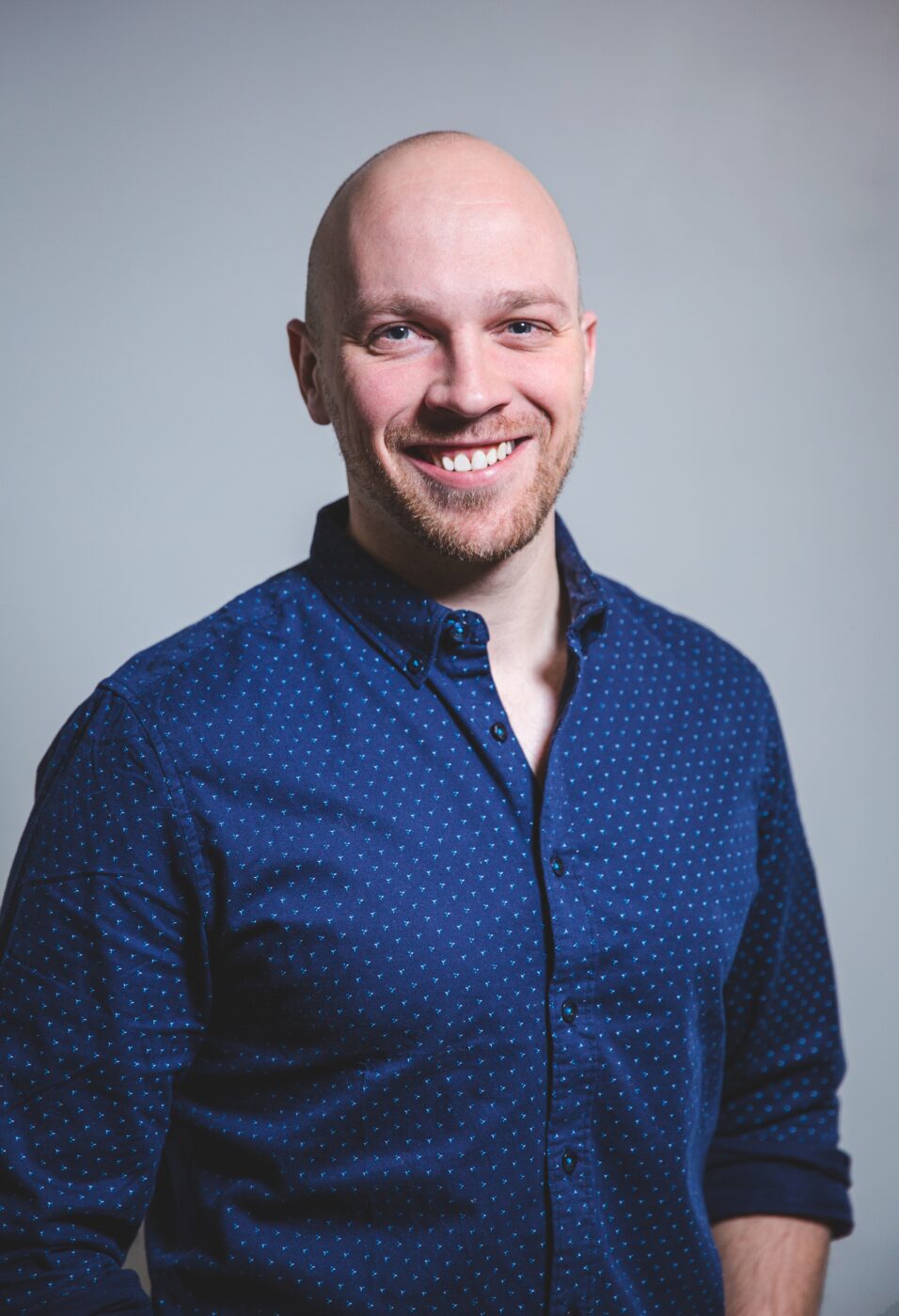

In 100 words or less, what is your vision for the future of Toronto?
We need a new type of mayor, a mayor of action, that delivers for the people of this city. I’m here to step up for Toronto. As a dad raising a young family, as an urban planner, and from my time spent on City Council, I know we need strong leadership at City Hall. It’s time for less talk, and more action. We need to get people moving, add more housing, and build safe communities to unlock Toronto’s potential for everyone. As Mayor, I’ll use every tool to deliver results for the city. The people of Toronto deserve no less.
Why do you qualify to be Mayor of Toronto?
With my strong background in urban planning for the City of Toronto and my experience on city council, I will be the strong mayor of action Toronto needs. I understand the challenges the city is facing because my young family lives them every day. I have the energy and drive to get things done for the City of Toronto.
What is Toronto’s greatest strength right now?
Our strength is undoubtedly the people who make up this city. Whether you’re born here or choose to make Toronto your home, we are strong, resilient, and the reason why I believe the city has an even brighter future ahead.
What is the most pressing issue in Toronto right now?
Right now the biggest issues facing the people living in Toronto are the housing crisis, the rising costs of living and affordability and TTC and community safety.
Do you agree with the “Strong Mayor Powers” and would you use them?
Yes, I have committed to being a strong mayor of action. Toronto needs less talk and more action at City Hall to deliver results for the people of Toronto. As Mayor I will work collaboratively with council, city staff and community. The Mayor is elected by the entire city to lead, and I will use every tool of the Mayor’s office to deliver results.
Rank the following issues from 1 to 14, with 1 being the most important and 14 being the least important.
Editor's note: No answer provided.
Outline the three most important issues currently facing Toronto, and describe how you plan to address each of them as Toronto’s next mayor.
To solve the challenges Toronto faces today, we must end Toronto’s housing crisis, unclog gridlock to get our transit and roads moving, and restore safety across the city.
Under my leadership as the current Chair of Planning & Housing, we have legalized multi-tenant housing and multiplexes in the last six months. As Mayor, I will unlock government-owned lands to build more affordable housing, including fixing and moving forward with the “Housing Now” program that has spent the past 5 years spinning its wheels. And I will streamline the bureaucratic approvals process and build a culture of saying "yes" so that more homes can get built faster.
To unlock the gridlock that is grinding Toronto to a halt, as Mayor I will implement real, common-sense solutions to speed up your commute all across the city. I will appoint a Congestion Relief Commissioner, whose job will be to end the traffic chaos and coordinate all construction work to save you time. I will make sure that we not only finish the Gardiner East rebuild, but we’ll do it up to two years faster with 24/7 construction - which helps you get home to your family and allows businesses to get their products to market. And I will create the King Streetcar Express Zone: Right now, the City is planning to put the Queen Streetcar on Richmond and Adelaide, causing more traffic chaos and transit frustration for the next 5 years. I’ll redirect the Queen car to King Street, making it faster for transit riders, drivers and cyclists to get into and out of the downtown core.
As Mayor, I'll focus on restoring safety on the TTC to encourage riders to come back. I take the TTC nearly every day and I see it in their body language - people with their backs jammed against the wall. My SafeTTC Now action plan will: (1) install platform edge doors; (2) boost security and safety patrols on the system; (3) get mental health resources to people in distress; and (4) finally bring cell reception to subways.
Delivering results on these three priorities will enable Toronto to do so much more.
What guiding principles or philosophy do you try to live by?
Less Talk, More Action.
Chloe Brown
Toronto mayoral candidate Chloe Brown took the time to fill out our mayoral candidates survey. Here's what she had to say.
she/her
cb4tomayor@gmail.com
Chloebrown.ca
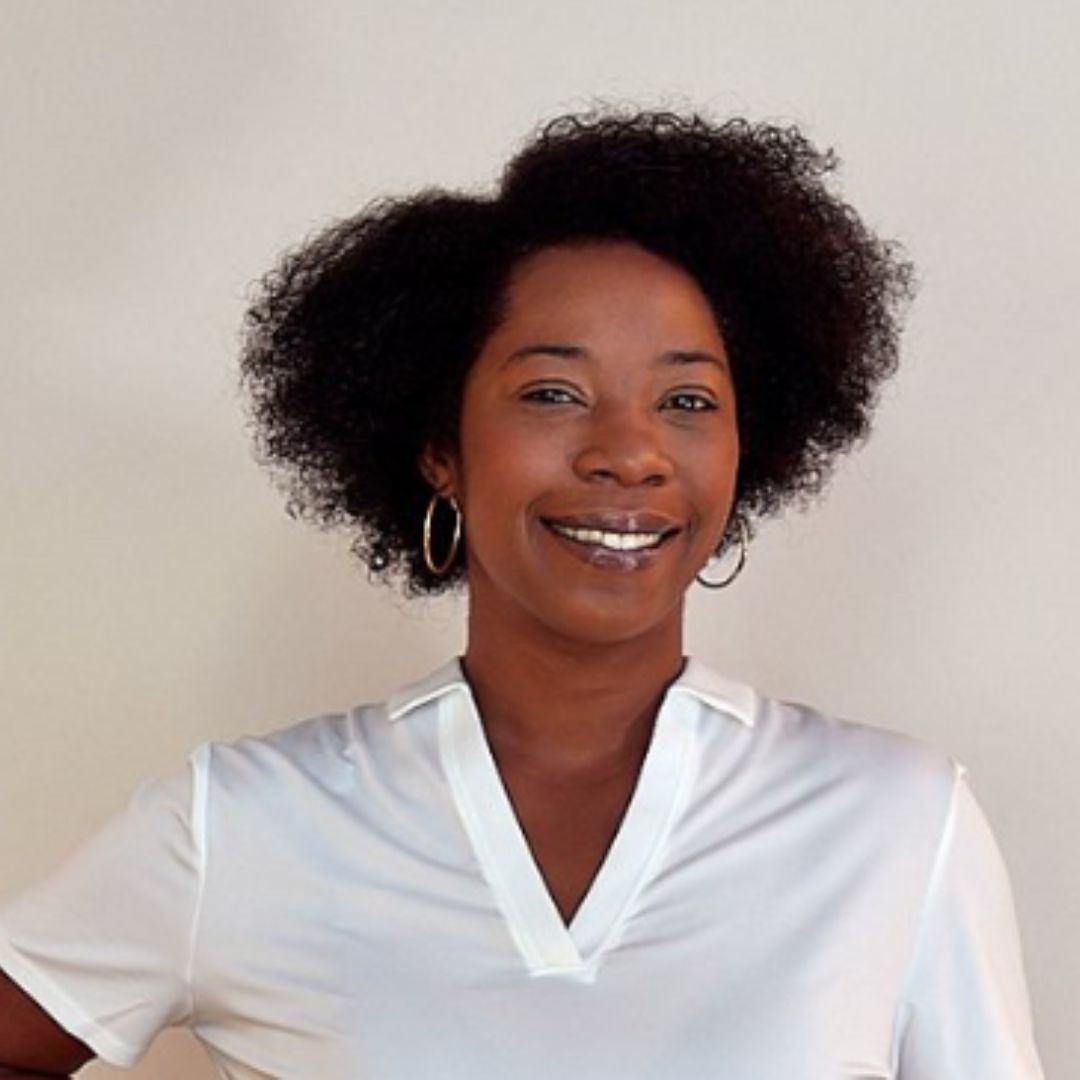

In 100 words or less, what is your vision for the future of Toronto?
Toronto has the potential to become a trailblazer in participatory governance, prioritizing occupational health and safety, and modernizing public services for the well-being of its citizens. However, achieving this requires valuing diverse solutions and adopting a bottom-up approach to decision-making. By involving citizens in making decisions that consider the triple bottom line of people, planet, and public wealth, Toronto can create a model city that fosters prosperity, inclusivity, and sustainability. This outcome can only be achieved by collectively believing in democratic processes and prioritizing the ABCs of any good democracy: dignity, equality, and freedom. By prioritizing these principles, Toronto can become a leader in creating a prosperous, thriving, equitable, and inclusive city for all.
Why do you qualify to be Mayor of Toronto?
My work experience as a policy analyst puts me in the best position to objectively analyze complex problems, comprehend the intricacies of public policy, and collaborate effectively with visionary, capable, and empathetic stakeholders.
What is Toronto’s greatest strength right now?
Our workforce has the potential to bring supply chains back to the country, develop easy-to-use solutions for public services, and update how cities tackle poverty if given more participation, independence, and resources.
What is the most pressing issue in Toronto right now?
When people feel collectively hopeless, it can lead to uncontrollable nihilism, which highlights the need for more opportunities and places to update agreements and processes that uphold Canada's core values of peace, order, and good governance.
Do you agree with the “Strong Mayor Powers” and would you use them?
I don't agree with Strong Mayor Powers in principle, and although I'm unsure whether I would use them to promote democracy, it's crucial for the public to hold their elected officials accountable to prevent the need for these powers to be used to uphold our values.
Rank the following issues from 1 to 14, with 1 being the most important and 14 being the least important.
- Housing
- Public transit
- Food insecurity
- Healthcare (Toronto Public Health)
- Homelessness
- Policing and Crime
- Traffic and Roads
- Local Businesses
- Employment
- Arts and Culture
- Public Libraries
- Parks and Conservation
- Traffic and Roads
- Sidewalks and Bike Lanes
Outline the three most important issues currently facing Toronto, and describe how you plan to address each of them as Toronto’s next mayor.
Community land trusts establish legal protection for public development of buildings and products, resulting in increased affordability, and use public resources like land and intellectual property to create non-profit alternatives to private monopolies through community supply chains, long-term stewardship, cooperative ownership, and expanded product variety.
What guiding principles or philosophy do you try to live by?
The principle "you can improve what you don't measure" serves as a governance tool for achieving mastery. It sets a foundation and a destination, recognizes the need for checkpoints, and emphasizes evidence-based decision-making focused on measurable results. By measuring progress, one can identify areas for improvement, make informed decisions, and ultimately achieve greater success. Without measurement, growth is limited, and decision-making becomes less effective. Therefore, embracing this principle is essential for achieving mastery and success in any endeavor.
Celina Caesar-Chavannes
Toronto mayoral candidate Celina Caesar-Chavannes took the time to fill out our mayoral candidates survey. Here's what she had to say.
SHE/HER
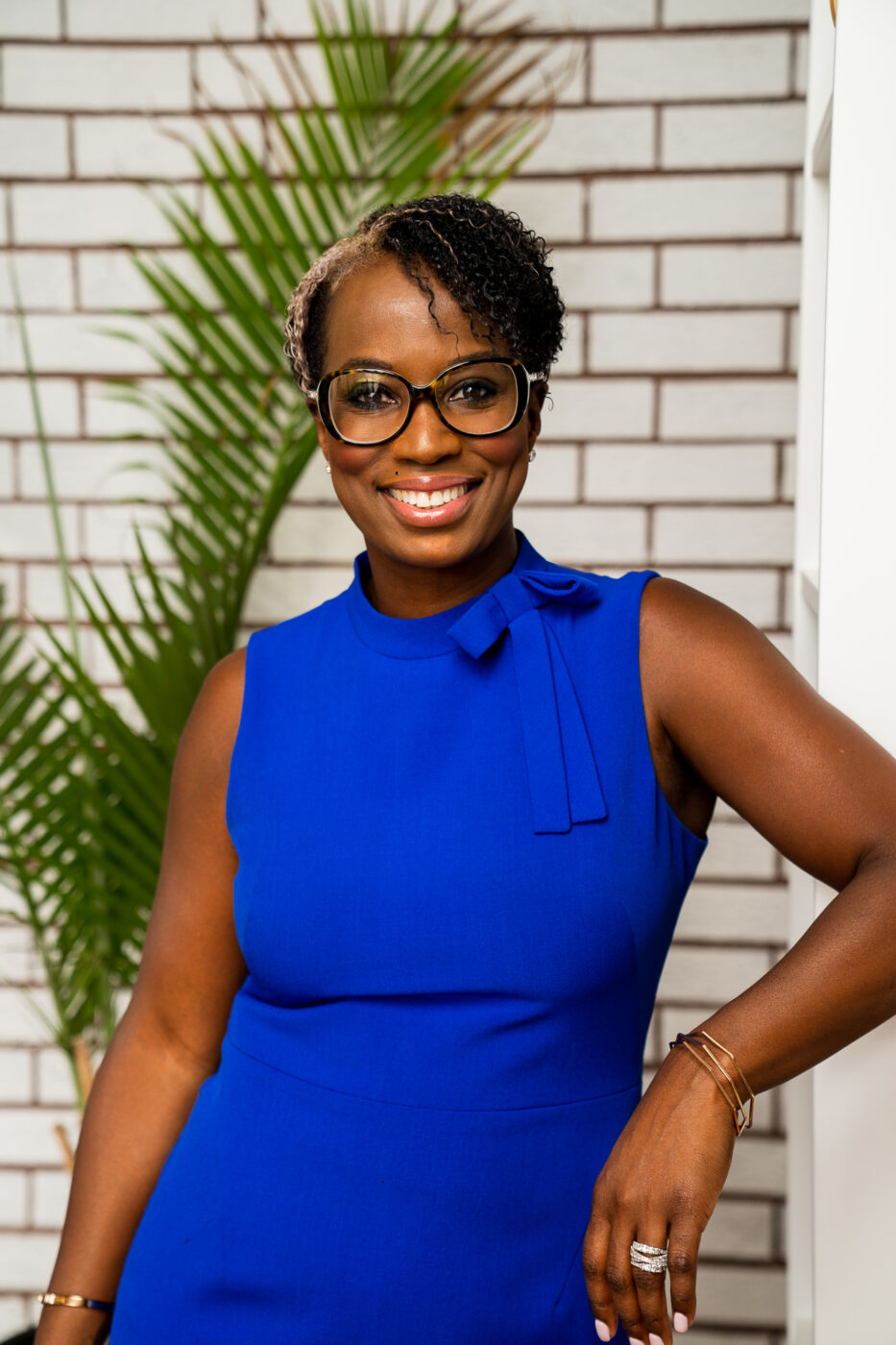

In 100 words or less, what is your vision for the future of Toronto?
A city where everyone thrives and no one is left behind.
Why do you qualify to be Mayor of Toronto?
I'm running for mayor of Toronto because I believe that bold and compassionate leadership is needed to address the complex challenges facing our city. As a dedicated leader with a diverse background in business, research, and community work, I bring a unique perspective to the challenges facing Toronto. I am not afraid to challenge the status quo and work collaboratively with residents, organizations, and governments. But what truly sets me apart is my unwavering commitment to compassion, which I believe is crucial in overcoming the divisive politics that have plagued our city. This approach will be utilized to diversify the revenue streams in Toronto, to ensure we have a self-sustaining and resilient city.
What is Toronto’s greatest strength right now?
I know that I do not have all the answers, but I am committed to fostering the relationships and collaborations necessary to create strong solutions for Toronto. This said, I will leverage my relationships as a Member of Parliament to help build a resilient Toronto.
What is the most pressing issue in Toronto right now?
Toronto is facing unprecedented financial challenges. Requests for funding from federal and provincial partners, while necessary and essential in times of crisis (i.e. the pandemic, emergencies), is not a sustainable way to run the city. Funding from both sources are not stable or predictable and usually come with strings attached. We need to diversify our revenue streams to build the foundation for a city in which everyone thrives.
Do you agree with the “Strong Mayor Powers” and would you use them?
I neither agree or disagree. They are there. It should be noted that strong mayor powers is not the same as minority rule. In fact, “critical counterpart to the strong mayor is a strengthened city council, which must have the power to act as an effective legislative branch of municipal government”. The powers should be part of a system that puts the needs to Torontonians first. So, I will will 1) have a mechanism to reach Torontoians on contentious issues - i.e. There must be an app for that. 2. Prioritize collaboration with the council. Noting that for 50 years, on major issues, council has easily generated majorities of over 85 percent of votes. They have been in favour of proposals by the mayor of the day. 3. Work with city officials, experts, and data analysis to ensure the best outcome for Toronto.
Rank the following issues from 1 to 14, with 1 being the most important and 14 being the least important.
- Housing
- Homelessness
- Healthcare (Toronto Public Health)
- Indigenous reconciliation
- Public transit
- Local businesses
- Food insecurity
- Parks and conservation
- Healthcare (Toronto Public Health)
- Employment
- Policing and crime
- Arts and culture
- Traffic and roads
- Sidewalks and bike lanes
Outline the three most important issues currently facing Toronto, and describe how you plan to address each of them as Toronto’s next mayor.
Finances, leaving no one behind, and climate action - how do we build a self-sustaining and resilient city?
1. I am not going to reinvent the wheel and propose new multi-million dollar initiatives. City staff, partners, and communities are working on a number of plans and strategies, including those to tackle the housing crisis, and bolster community safety and wellbeing. These plans have been funded and communities were consulted. They are rooted in social justice and human rights. Stopping that work and shifting gears will come with costs. I will have the leadership demanded of the times, as well as the political will to support what is working, build capacity where it is needed, and cut what is lagging.
2. Toronto is experiencing unprecedented fiscal challenges, but so are many of you. As such, I will:
- Not increase property taxes above the rate of inflation over the next two years.
- Explore other revenue tools including parking levies which can generate between $171 million to $535 million annually.
3. I will work with mayors across Ontario to create a sustainable revenue generation model for our cities. This will involve negotiation with the federal government to:
Allocate 1% of the GST to Toronto, and other municipalities across Ontario. We are all struggling, and Toronto can help lead the charge for transformational change. This percentage can generate revenues close to $550 million for Toronto and it will grow with the economy. It will ensure that Toronto has the capacity to not only appropriately handle this COVID recovery period, but also be self-sustainable moving forward. This plan will take a couple of years to implement, but it is a novel approach that is worth consideration. Revenue generated from this model will be directed toward social assistance and social housing, transit, and cultural and creative programs.
4. Doing all this work will achieve nothing if we are leaving people behind. As such, I will build on the TransformTO Net Zero Strategy and integrate current and future strategies and plans within the broader objectives of the Sustainable Development Goals. As Canada’s largest city, we must take a leadership role in tackling some of the world’s biggest problems – right here at home. At the nexus of global pandemics, calls for racial and social justice, climate change, and geopolitical issues that heighten the refugee crisis, lies the poorest and most vulnerable among us. We all have a role to play in building back better than we ever were before.
What guiding principles or philosophy do you try to live by?
Love is the foundation of everything. We cannot have safe streets if we fear each other. We cannot address housing if we continue to build bigger fences to keep people out. We cannot see addiction, mental health, and other conditions with compassion if we deem "those people" unworthy of our care. Love is the foundation of everything this campaign is about. Without it, any policy, relationship, or program we put forward is doomed to fail, because it is predicated on fear. I trust in love as the antidote.
Sarah Climenhaga
Toronto mayoral candidate Sarah Climenhaga took the time to fill out our mayoral candidates survey. Here's what she had to say.
SHE/HER
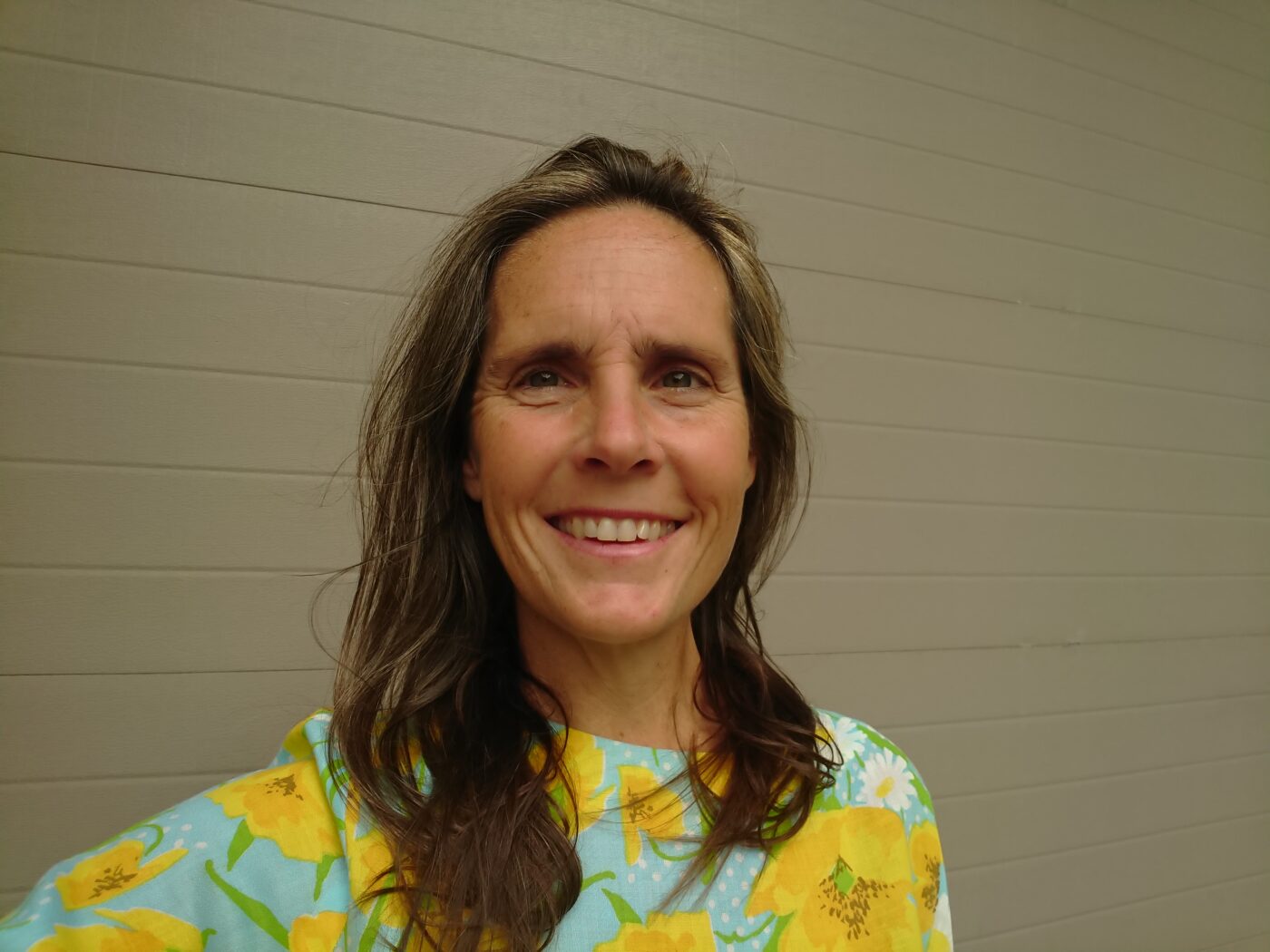

In 100 words or less, what is your vision for the future of Toronto?
I have a vision of a Toronto that is joyful and filled with people doing what they love. A Toronto with complete freedom of movement, beautiful and accessible public spaces everywhere, and freedom for individuals to create the life they want. A Toronto with a vibrant natural environment that supports life and health for people and a thriving array of plant and animal species.That strong foundation of health and freedom will give us strong local businesses providing purposeful jobs, a robust artistic community, and a wide array of housing of every shape and size.
Why do you qualify to be Mayor of Toronto?
I have a passion for this city, a vision of something better, and I have lived, worked and volunteered here my entire life.
What is Toronto’s greatest strength right now?
Toronto's greatest strength is its people. Our environment is are greatest asset - our streams, rivers and lake, along with our parks and ravines, are incredible foundations for a healthy city.
What is the most pressing issue in Toronto right now?
Many of the important issues facing Toronto, like housing shortages, gridlock, affordability and mental health, are interlinked with two main problems. One of these is the unequal distribution of wealth and power in this city, that leaves most residents powerless over most of the decisions made in their communities. The second is the degradation of our environment due to poor transportation, land use and water policies.
Do you agree with the “Strong Mayor Powers” and would you use them?
I would not use the strong mayor powers. I believe in a different style of government that does not rely on top down imposition of power upon residents. I advocate of style of government that engages closely with residents and ensures their participation in decision making around this city.
Rank the following issues from 1 to 14, with 1 being the most important and 14 being the least important.
- Parks and conservation
- Housing
- Sidewalks and bike lanes
- Public transit
- Employment
- Local businesses
- Public libraries
- Homelessness
- Food insecurity
- Arts and culture
- Indigenous reconciliation
- Policing and crime
- Healthcare (Toronto Public Health)
- Traffic and roads
Outline the three most important issues currently facing Toronto, and describe how you plan to address each of them as Toronto’s next mayor.
I am interested in a more holistic approach to government. Rather than ranking issues as more or less important than others, we need to take approaches that benefit as many people in our city as possible. Freedom of movement is one of my key priorities, which I would work to accomplish through barrier free transit so that the TTC was no longer funded at the turnstiles, transit priority so that more people can be moved quickly, easily and safely, and redesign of major streets to ensure they are safe and accessile. Freedom to innovate is another. I would aim to remove city bylaws, permits and fees that are a constraint to employment, housing, arts and culture. I believe our residents can work together with their communities to find solutions to problems in each of those areas if the city simply gets out of their way. A third would be to make Toronto as environmentally self-sufficient as possible, by making clean water a priority, dramatically expanding our parks system, encouraging local food production and urban agriculture, and transforming the way we treat all of our waste so that we create a circular economy that reduces and reuses everything rather than exporting waste elsewhere or dumping it in our parks, ravines and waters.
What principles or guiding philosophy do you try to live by?
I aim to live in integrity with my own ideals and vision, and respect the need for others to live according to theirs, even when they differ from mine. My aim as mayor would be to try to find solutions that communities want, and to encourage Torontonians to help find and create solutions with the support of government.
Matti Charlton
Toronto mayoral candidate Matti Charlton took the time to fill out our mayoral candidates survey. Here's what they had to say.
THEY/THEM
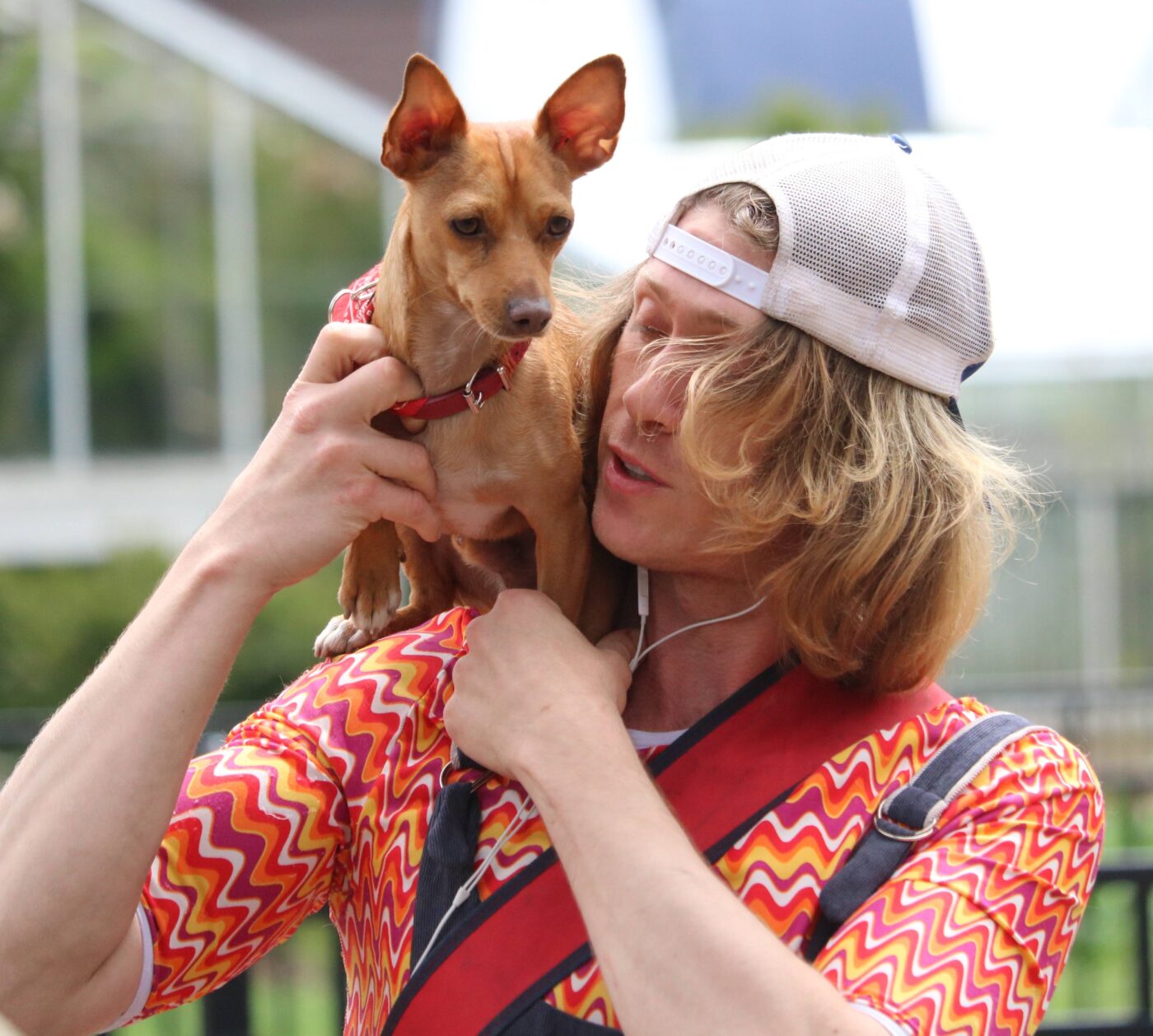

In 100 words or less, what is your vision for the future of Toronto?
A city of incredibly talented people leading the way towards a better future for the world.
Why do you qualify to be Mayor of Toronto?
A diverse mayor for a diverse city that loves its citizens. I bring all the experience — firsthand — of homelessness, struggling with mental health issues, being part of a marginalized and vulnerable community (queer and trans), and I have survived. I am autistic and an eternal optimist. I listen to people who advise me and know better than I do. I speak my mind. I am woke and respect everyone. I have proposed a comprehensive solution to the problem of homelessness in the city, found at https://homelessness.matticharlton.com/ I have proposed a radical, new peace officer organization to replace eroding trust (and continued problems) with the Toronto Police, called the City Peace Corps at https://citypeacecorps.matticharlton.com/ I have provided modern and intelligent proposals with what to do about the $1 billion dollar city deficit at https://deficit.matticharlton.com/ I have proposed 10,000 gigs be created for the city's independent musicians that will keep every park stage playing music all summer for a cost of $10 million with huge tourism and economic benefits at https://indiecity.matticharlton.com/ I have created a framework for drug policy reform in Toronto at https://drugpolicy.matticharlton.com/ More white papers are being released on my site. I care about this city, I think we can be excellent, I'm someone very different to run it, I would be the first openly trans and queer mayor of Toronto, I always have my service dog Quentin with me, I would beautifully represent this city and work with city council on outside-the-box thinking to solving our problems here. You'd have a mayor with incredible imagination and optimism with a commitment to including everyone.
What is Toronto’s greatest strength right now?
Our diversity and our capacity for compassion — which we need to better leverage!
What is the most pressing issue in Toronto right now?
Housing. And I have suggested a way that the City of Toronto can affect condo developers to enforce a minimum of subsidized units in every development — and that's by pricing building permits. No subsidized units? Then your building permits become REALLY expensive.
Do you agree with the “Strong Mayor Powers” and would you use them?
I think it's better to work together.
Rank the following issues from 1 to 14, with 1 being the most important and 14 being the least important.
- Homelessness
- Food insecurity
- Housing
- Policing and crime
- Employment
- Indigenous reconciliation
- Healthcare (Toronto Public Health)
- Arts and culture
- Public transit
- Local businesses
- Traffic and roads
- Public libraries
- Sidewalks and bike lanes
- Parks and conservation
Outline the three most important issues currently facing Toronto, and describe how you plan to address each of them as Toronto’s next mayor.
Please read my white paper on solving the homelessness problem in Toronto. It's comprehensive and more than 150 pages long. https://homelessness.matticharlton.com/ Please also read my white paper on creating a framework for changing drug policy in Toronto. It lays the groundwork for a necessary shift from criminalization and working to save lives, there are 100 references in the document. https://drugpolicy.matticharlton.com/ Finally, please read my outline of directions to take to address the budget deficit. This is a huge problem that needs immediate strategies to address the issues and I have come up with an extensive array of modern solutions at https://deficit.matticharlton.com/
What principles or guiding philosophy do you try to live by?
Make the world a better place with love and wonder in your heart.
Olivia Chow
Toronto mayoral candidate Olivia Chow took the time to fill out our mayoral candidates survey. Here's what she had to say.
she/her
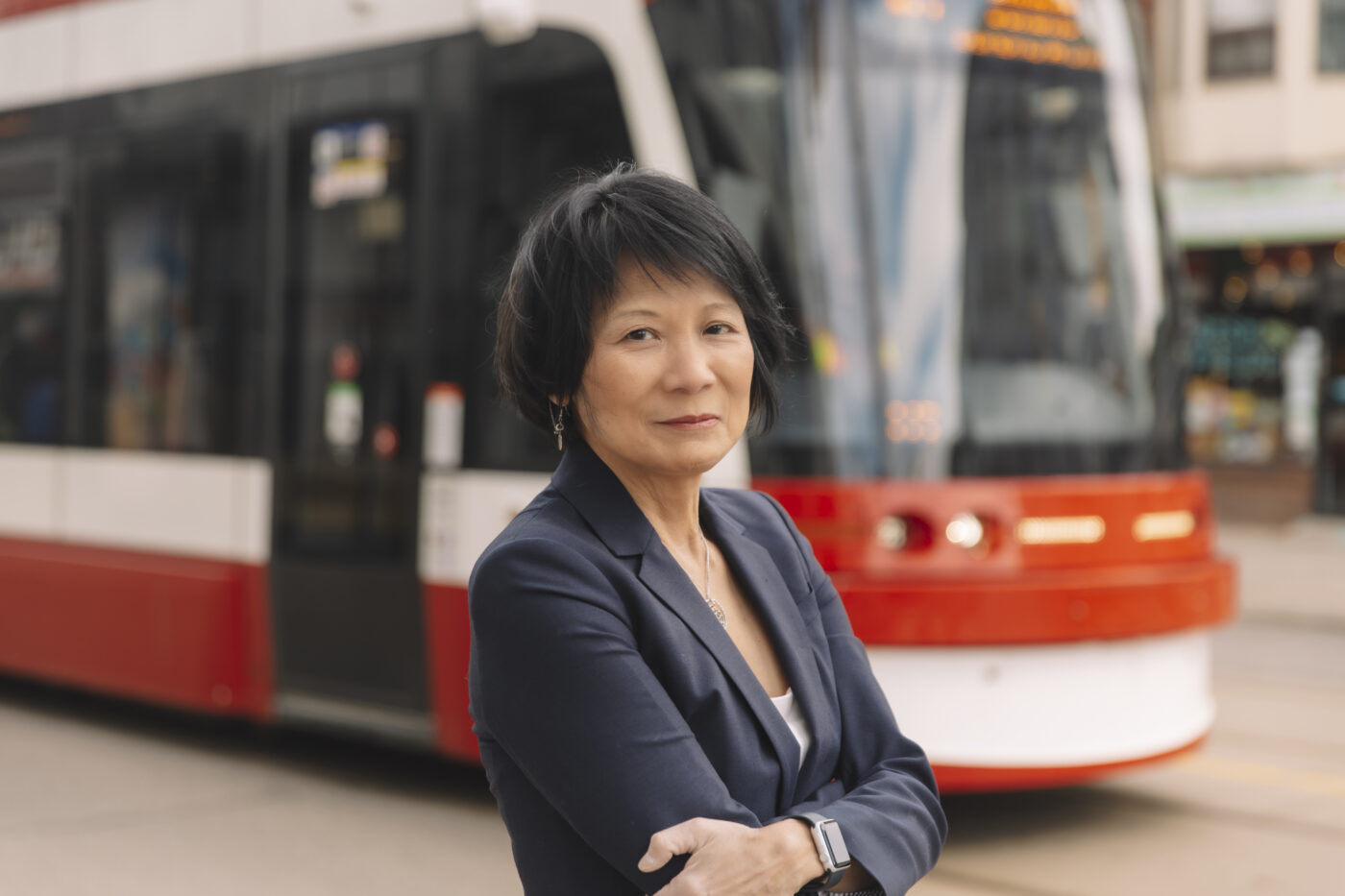

In 100 words or less, what is your vision for the future of Toronto?
Imagine a Toronto where homes are affordable, where it’s easy and safe to get around however you commute, and where programs and services are high quality and easy to access. Imagine a Toronto where everyone belongs, where our city is a great place to live no matter who you are or which neighbourhood you live in. That’s my vision for the future of our city. As Mayor of Toronto, I’ll be working hard to build a city that is more affordable, caring and safer for everyone.
Why do you qualify to be Mayor of Toronto?
People in Toronto are feeling stuck: stuck waiting for the bus, stuck in traffic, stuck on waiting lists for housing, childcare, kids recreation programs or other basic services. I can’t stand by as our city becomes a harder place to live in. As mayor, I’ll focus on building housing that people can afford, restoring and improving our public transit system, and investing in communities to make them more safe for everyone. I’ve been fighting for better for our city for years, and as councillor and MP I’ve won more for Toronto families. As a councillor I created programs like the student nutrition program which now feeds 200,000 kids daily, and ensured 911 services are offered in hundreds of languages. I know we can make Toronto a better place to live. I’m running to make Toronto a more affordable, safe and caring city, where everyone belongs.
What is Toronto’s greatest strength right now?
Diversity. There are so many perspectives and experiences. It makes us all stronger.
What is the most pressing issue in Toronto right now?
Affordability is one of the biggest issues I’m hearing about from voters. Our city has become more expensive and less livable, and the skyrocketing cost of housing is squeezing people’s budgets past the breaking point. Look at the people stuck waiting on years-long lists for affordable housing. Look at the people stuck waiting in hours-long lineups for the food bank. My plan will get the city back to building housing people of all incomes levels can afford.
Do you agree with the “Strong Mayor Powers” and would you use them?
No. I would respect local democracy, not overrule the councillors Torontonians sent to city hall to represent them. A mayor that is actually strong will bring people together to get things done, not resort to these undemocratic powers.
Rank the following issues from 1 to 14, with 1 being the most important and 14 being the least important.
My priorities are best reflected in my written responses. These issues are too complex and too important to be reduced to a numerical ranking.
Outline the three most important issues currently facing Toronto, and describe how you plan to address each of them as Toronto’s next mayor.
The housing crisis is one of the biggest issues facing our city. I have a comprehensive housing plan that would protect the affordable units we have now, and have the city directly build 25,000 new units with thousands of below-market and rent-geared-to-income units. My plan includes stopping renovictions by enabling the city to help buy units at risk and transfer them to non-profit ownership, like land trusts. I will also boost programs that support renters, like the Rent Bank, the Tenant Support Fund and Eviction Prevention in Community. Further, I will make sure the city gets back into building housing, as a public developer that builds on land the city already owns.
We also need to make sure people have safe, reliable and convenient transit. I am committed to reversing the recent cuts to transit and bringing service back to pre-pandemic levels. Further, we should have more staff on the system to be the eyes and ears, bring cell service and expand crisis response teams to make sure the system is safer. Once we improve service, more people will come back to the TTC, fare revenues will increase, and the system will become more sustainable again.
Safety is important as well. I’ll expand the Toronto Community Crisis Service city-wide so we can have trained crisis workers to help people in distress. I will also work to improve 911 response times so no one is put on hold in an emergency. I’ve had that experience recently and it was agonizing. As mayor, I’ll fix it.
What guiding principles or philosophy do you try to live by?
We are stronger together. That’s why I’m committed to giving people a voice at city hall, helping people implement good ideas, and working with people of all political stripes to accomplish more for Toronto families.
Gord Cohen
Toronto mayoral candidate Gord Cohen took the time to fill out our mayoral candidates survey. Here's what he had to say.
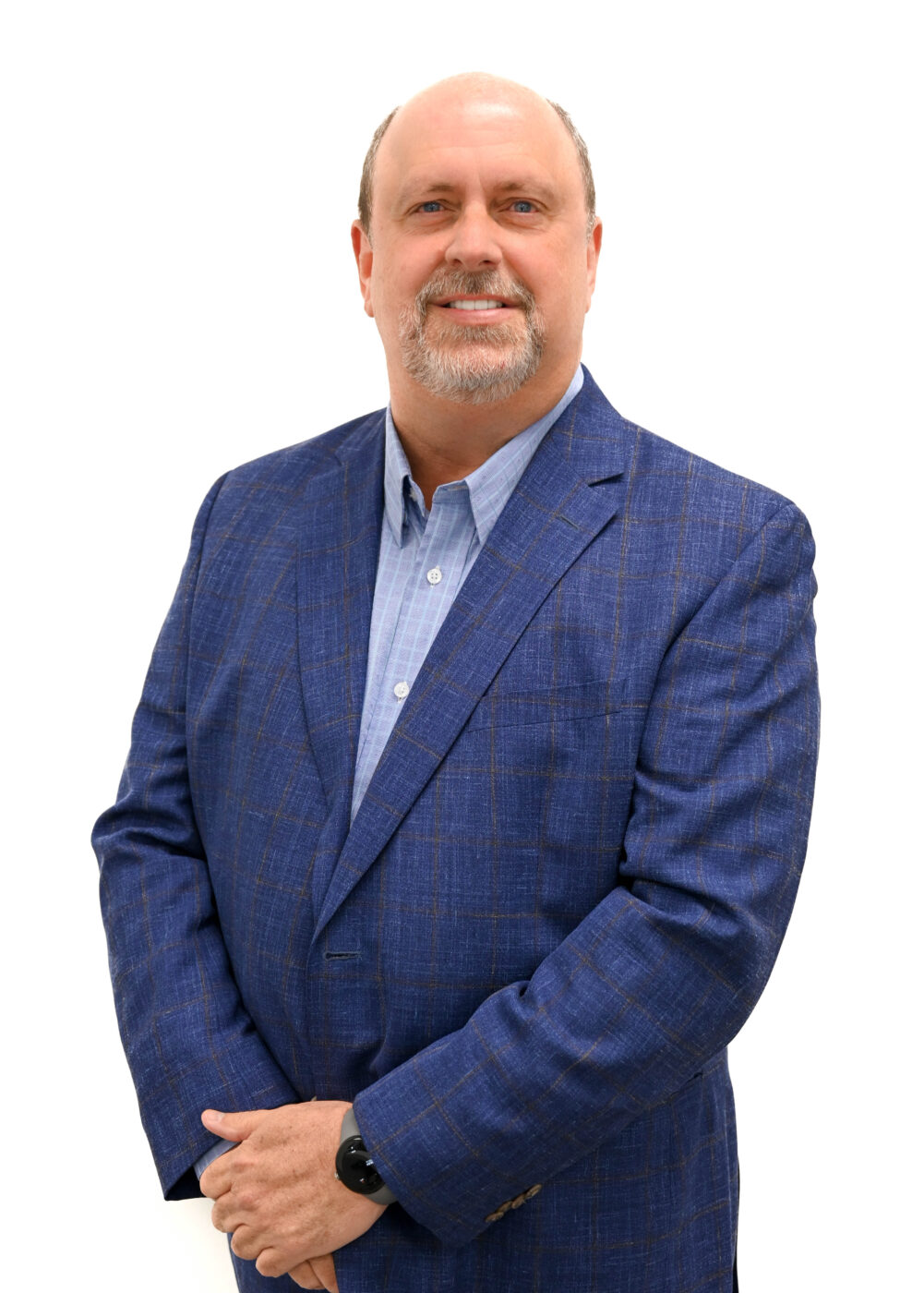

In 100 words or less, what is your vision for the future of Toronto?
Our Toronto is a place for all people to make their home and feel secure. I believe that the past has happened we can't change it, the future is not here lets work on it but today is the time to change, learn, and create, it only works when everybody wants to work together.
Why do you qualify to be Mayor of Toronto?
35 years of Business experience.
What is Toronto’s greatest strength right now?
Our people.
What is the most pressing issue in Toronto right now?
Safety and healthcare.
Do you agree with the “Strong Mayor Powers” and would you use them?
Yes, each situation has to be analyzed before decisions are made.
Rank the following issues from 1 to 14, with 1 being the most important and 14 being the least important.
Editor’s note: No further rankings provided beyond these five.
- Policing and crime
- Healthcare (Toronto Public Health)
- Employment
- Public transit
- Food insecurity
Outline the three most important issues currently facing Toronto, and describe how you plan to address each of them as Toronto’s next mayor.
Healthcare, time to listen to the workers and understand their needs. Policing, work in establishing the priorities that the police need to get back the respect they deserve. Housing, it's important to work with the housing we have now like Toronto Housing authority to upgrade all existing buildings.
What guiding principles or philosophy do you try to live by?
if you're going to make anything in life make a difference.
Frank D'Angelo
Toronto mayoral candidate Frank D'Angelo took the time to fill out our mayoral candidates survey. Here's what he had to say.
HE/HIM
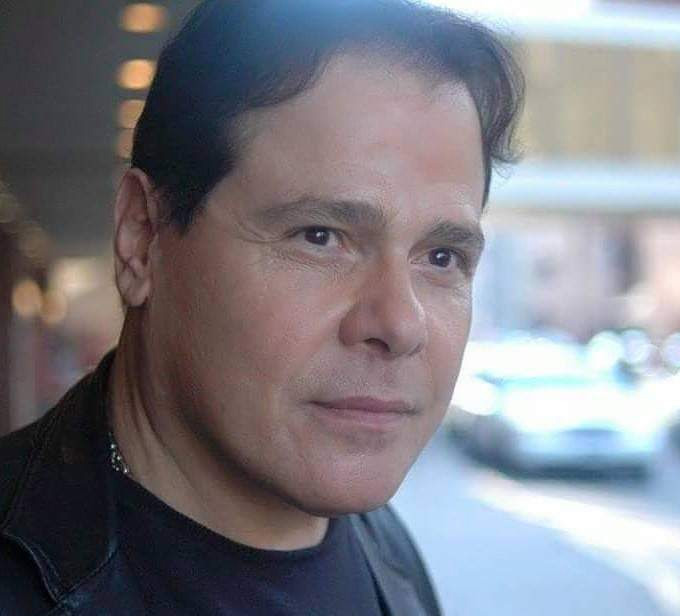

In 100 words or less, what is your vision for the future of Toronto?
Toronto was once the beacon of Canada, it was an innovative city with promising futures for its citizens. But for so many years now politicians have let the city slide. Infrastructure is crumbling, public transit needs a complete overhaul, cost of housing is through the roof and homelessness is at an all time high. My goal is to ensure that Toronto is set on the right path for the future of all our citizens, with fresh creative ideas, as well as a new perspective to take the city to newer and greater heights.
Why do you qualify to be Mayor of Toronto?
Toronto is in crises with a series of issues, and our politicians have been providing bandage solutions instead of addressing the underlying cause of the problems. Our politicians are process people, not results people. They waste money on hiring consultants, commissioning reports, organizing summits and in the end, little gets done. I am a results person, and I am running for Mayor to solve Toronto’s crisis issues.
What is Toronto’s greatest strength right now?
Toronto, Ontario has several strengths that differentiate it from other Canadian cities:
Economic Hub: Toronto is the economic hub of Canada, with a highly diversified economy that includes strong industries such as finance, technology, healthcare, and professional services. This makes it a major contributor to the Canadian economy and an attractive destination for businesses and entrepreneurs.
Cultural Diversity: Toronto is one of the most culturally diverse cities in the world, with over 50% of its population born outside of Canada. This diversity creates a rich cultural tapestry that contributes to the city's vibrancy and cosmopolitan atmosphere.
Education: Toronto is home to some of the best educational institutions in Canada, including the University of Toronto, which is consistently ranked as one of the top universities in the world. This creates a highly skilled workforce and attracts students from around the world. Infrastructure: Toronto has a well-developed transportation infrastructure, including a major international airport, a network of highways and public transit systems, and a bustling port. This makes it a key transportation hub for Canada and North America.
Quality of Life: Toronto consistently ranks as one of the top cities in the world for quality of life, due to its excellent healthcare system, low crime rates, and abundance of parks and green spaces. This makes it an attractive destination for both residents and visitors alike.
What is the most pressing issue in Toronto right now?
Affordable housing. It’s crucial that Toronto becomes an affordable city once again. I am committed to ensuring that all Toronto citizens have access to affordable housing, so that families don’t have to move far away from their roots due to unaffordable living costs. To achieve this, I plan to facilitate the construction of more purpose-built affordable housing developments throughout the city.
Do you agree with the “Strong Mayor Powers” and would you use them?
Yes, I agree with the Strong Mayors Powers. I would use them only when necessary to get policies past that are essential to the growth and safety of the city.
Rank the following issues from 1 to 14, with 1 being the most important and 14 being the least important.
Editor’s note: No further rankings provided beyond these 13.
- Housing
- Public transit
- Homelessness
- Policing and crime
- Healthcare (Toronto Public Health)
- Employment
- Food insecurity
- Sidewalks and bike lanes
- Local businesses
- Parks and conservation
- Public libraries
- Arts and culture
- Indigenous reconciliation
Outline the three most important issues currently facing Toronto, and describe how you plan to address each of them as Toronto’s next mayor.
1. It’s crucial that Toronto becomes an affordable city once again. I am committed to ensuring that all Toronto citizens have access to affordable housing, so that families don’t have to move far away from their roots due to unaffordable living costs. To achieve this, I plan to facilitate the construction of more purpose-built affordable housing developments throughout the city.
2. It’s essential that we give our transit system a much-needed upgrade to encourage people to use it once more. We must increase ridership and make it self-sustaining, as it has been operating at a loss for far too long. Furthermore, the safety of our citizens while using the TTC must be a top priority. I pledge to tackle these concerns head on.
3. I‘ll address the issue of homelessness directly and implement sustainable solutions. It’s unacceptable to ignore the plight of less fortunate individuals, they deserve the same care and support as any other citizen. This problem has persisted for far too long, and I am personally committed to getting it to a much better place. I aim to start a Toronto lottery called “HOPE” with lotto receipts to be used to fund programs to help the homeless.
What guiding principles or philosophy do you try to live by?
Treat people like you want to be treated. Be honest, live life with integrity and work hard to achieve any goal that I put my mind to.
Cory Deville
Toronto mayoral candidate Cory Deville took the time to fill out our mayoral candidates survey. Here's what he had to say.
HE/HIM
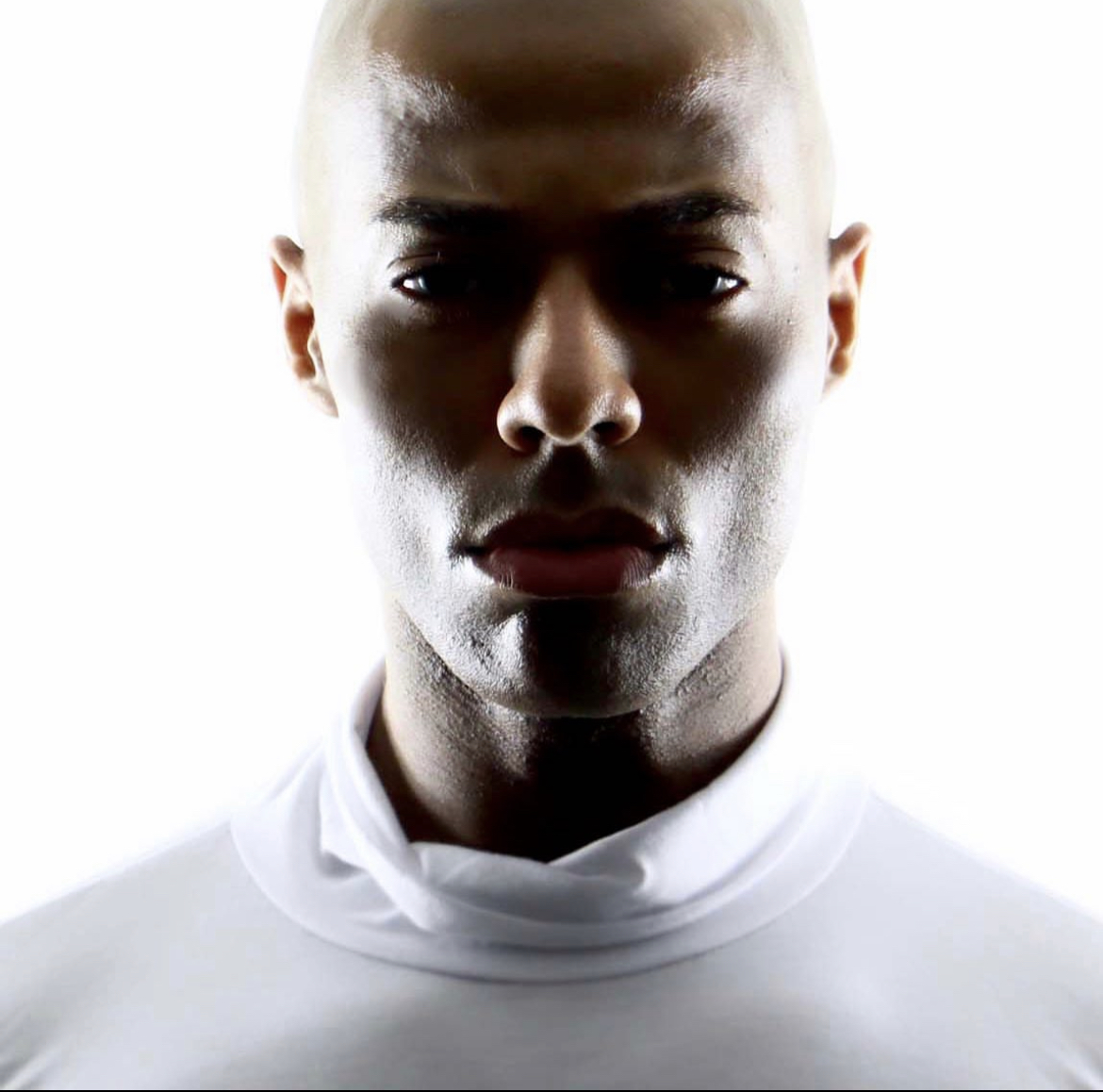

In 100 words or less, what is your vision for the future of Toronto?
Toronto was once the beacon of Canada, it was an innovative city with promising futures for its citizens. But for so many years now politicians have let the city slide. Infrastructure is crumbling, public transit needs a complete overhaul, cost of housing is through the roof and homelessness is at an all time high. My goal is to ensure that Toronto is set on the right path for the future of all our citizens, with fresh creative ideas, as well as a new perspective to take the city to newer and greater heights.
Why do you qualify to be Mayor of Toronto?
I have an emotional intelligence that is both the product of my environment, and the result of a lifetime of refinement in senior leadership positions in sales, consulting and non-profit spaces.
Toronto needs more than a policy creator and analyst in its Mayor, because being Mayor is to be a Leader of People. This requires a conscious and constant empathy for others, because every policy, bylaw and strategic pivot ultimately has to be in the interests of the people as understood by the people.
However, adjacent to my conscious empathy, is a business mind trained to be systematic in its approach to solution implementation with a priority focus on: a) return on investment, b) future value and c) mid-stride adaptability.
These skills are the product of a core desire, and perhaps fear, that happiness for me is found in being worthy of my ambition. This mentality is what I credit for the success of my Company, Non-Profit and broader conscious optimism.
What is Toronto’s greatest strength right now?
Toronto has a tremendous untapped potential. It's born from the richness of our diversity, but has been squandered in the past by leadership that failed to mirror and embody the experiential reality that the majority of residents possess. That experiential reality is found in being a visible minority, under-represented group and or person who traditional society seeks to suppress into the submission of culture norms. The future of Toronto belongs to the free spirit, the conscious optimist and results driven change maker. However, in as much as our potential is untapped - this reserve of possibility is also the greatest strength of the city we know and love. Toronto becomes the City of Tomorrow by electing leadership that is defined by nothing more, and nothing less, than Defiant Hope. Effective leadership executes on this mantra through incremental implementation of change and data driven strategy that is understood and managed through a human lens.
What is the most pressing issue in Toronto right now?
Affordable housing through the lens of mental health is the most pressing issue in the city right now. Housing insecurity breeds mental dread which exhausts our emotional bandwidth. This in turn reduces our effectiveness in all other areas of life, and a "momentum of distress" is what propels us into crisis situations (ex., bills in arrears, emergency relocations, etc). We need a Rental Relief Rebate program to help mitigate rent for renters, and it needs to be funded through residential and commercial property owners (ex., property taxes, commercial parking lots, and 20% of the $1.2B dollar police budget).
Do you agree with the “Strong Mayor Powers” and would you use them?
I believe that a core component of effective leadership in Toronto will require a Mayor who has the capacity to make decisions driven by the people; and sometimes this means moving in opposition to interfering governmental agency, like Doug Ford's Ontario government, and or City Councillors that do not mirror the will, interests and perspective of citizens. I agree with the responsible usage of "Strong Mayor Powers" so long as they are used to give a greater platform to the voice of the people.
Rank the following issues from 1 to 14, with 1 being the most important and 14 being the least important.
- Housing
- Food insecurity
- Employment
- Policing and crime
- Public transit
- Healthcare (Toronto Public Health)
- Homelessness
- Local businesses
- Parks and conservation
- Sidewalks and bike lanes
- Arts and culture
- Indigenous reconciliation
- Traffic and roads
- Public libraries
Outline the three most important issues currently facing Toronto, and describe how you plan to address each of them as Toronto’s next mayor.
The three most pressing issues in Toronto are Affordable Housing, Food Insecurity and Mental Health fuelled crisis. The city cannot thrive when it is worried about survival. The Next Mayor of Toronto needs to prioritize the needs of its residents as a foundational step in all policy and governance.
I propose a multi-faceted bill called The Universal Life Bill. This bill is built on the premise that residents of Toronto should not have to endure life trauma in order to exist, and that existence is insufficient. Life is for the living, and the Universal Life Bill will help to facilitate a better quality of Living for all Toronto residents.
This bill involves six core programs:
- Renter’s Relief Rebate (R3)
- Food is Life (FIL)
- Zero Fare TTC (ZF TTC)
- Non-Violent Deescalation Unit (NVDU)
- TO Flex
- Lights Camera Action creative enablement (LCA)
This bill would be funded through a combination of surplus from:
-
- Increasing Property Taxes by a sliding scale of 5-15% based on land value and usage status; the current percentage to ratio of property tax is 1% is equal to approximately $35M. This would generate an additional $175M to $525M.
- Re-allocating 30% of the $1.2 Billion Dollar Police Budget. This would generate an additional $360M.
- 10% increase on Commercial Parking Lot Levies currently generating $191-575M. That would generate an additional $19-57M.
The sum total in net new funding and repurposed funding: $554M to $1.5B. This does not include the existing $175-525M in commercial parking levy tax pending reallocation.
This would result in a $729 Million to $2.02 Billion in accessible funds at the highest threshold.
The Universal Life Bill is built on the Lowest Threshold of $754M to $1.5B for the sake of planning with caution while executing with conviction.
-
- Renter's Relief Rebate (R3) DividendThe Renter's Relief Rebate program is the first step we take toward combating the Affordable Housing Crisis in Toronto. It would function like a monthly dividend or payment made to those who rent in the city. The amount a person receives would be a percentage of their monthly rent. This program would be paired with a rental cap and residential rezoning updates to prevent exploitive rent hikes by property owners, and better purpose city real estate development to serve the people.
- Food Accessibility Rebate DividendThe Food Accessibility Rebate program would adopt a similar model to the R3 Dividend. It too would be a monthly Dividend payment made to residents of Toronto for their household food needs. The amount of money received by residents would operate on a sliding scale. The City would agree to a minimum payment amount per resident, and then increase it by a percentage relative to a sliding scale for residents based on their income, number of dependents and monthly rent payment bracket.
- Zero TTC FareZero Fare TTC means fewer cars on the road. Environmental Sustainability has now entered the chat.Fewer people driving means a massively reduced carbon footprint. A Zero Cost TTC program means city patrons, and more lucratively, city tourists would have greater access to city vendors. This increased access to the city promotes greater commerce, because we remove the barrier to entry, or access, in the form of transportation.A program like this would need to be tiered as a pilot study for the sake of gathering enough analytics to demonstrate a quantifiable Return On Investment (ROI); however, once this is accomplished, say in a 90 Trial phase, it would give the city a sufficient sample size data set to leverage in a case study.We could then use this case study as proof of concept for municipal funding, and or create a co-funded program with the Provincial and or Federal government.The former would be preferred for the sake of reducing implementation time, but the latter would ultimately be more cost effective. I think self funding the program to demonstrate continued ROI makes sense as a first step, and then expanding the Zero Cost TTC system via Provincial and Federal funding once ROI is incontrovertible for municipal, provincial and federal interests.Complete details on the Zero Cost TTC Program are available at www.devilleparty.ca
- Non-Violent Deescalation Unit (NVDU)The Non-Violent Deescalation Unit (NVDU) would be made up of mental health certified and conflict resolution experts. It would be funded by 10% ($36M) of the total 30% ($360M) of reallocated Police Funds. That would allow us to spend approximately $120k for 300 individual agents in (NVDU).300 NVDU agents could be added to make Toronto a healthier and happier city by making it one that solves the root source of the crisis and not its symptoms.Mental Health focused Non-Lethal Conflict Resolution is the answer.That's inclusive of agency management, training, salary and overhead fees. Dismantling the "Special Constable TTC Police" (ex., the TTC faux-cops) would be the next layered step. This adds an approximately $6.6 Million in additional funding if you presume each one of them is paid $50k per year with an added 20% buffer for unaccounted for expenses.What happens to the Toronto Police? They have $840 Million Dollars to do their jobs; and that job is to protect and serve the people of Toronto - not throw guns-and-badges-at-problems and hope for the best.
- Lights Camera Action (LCA) Creative Enablement ProgramCreatives give a City its Soul. Creative Enablement Programs are an investment both in the city and its creative talent pool. The latter is the driving force behind "entertainment commerce" in a tourism economy. I propose we do this through a bylaw or program entitled “Lights Camera Action” (LCA)”. Both entertainment commerce and the tourism economy help to finance the city, and offer an ROI that will slowly begin to position Toronto as a destination for talent like NYC and LA, for example.People go to NYC and LA because of their creatives. These creatives add substantial value to the city in the form of entertainment. This entertainment [commerce] inspires significant tourism. Tourism brings in hundreds of millions of dollars into prime time cities.Toronto has all the raw elements to be The City of Tomorrow.Tourism, as we all know come the summer months in Toronto, is a huge revenue producing season for the city. We need to lean into this uptick in cash inflow, and capitalize by increasing our value offering.This begins by creating and expanding the infrastructure that supports artists, actors, designers, writers, performers and entertainers.Creatives are the ones that increase our value offering in the form of their artistry. The last policy focus of my campaign orbits all things personal wellness. It’s a called TO Flex.
- TO FLEXTO Flex is built around the idea that a healthier city is one that spends less on medical resources, and reduces the strain on its medical infrastructure. Through prevention by means of wellness we save money and fund future value initiatives like fitness and wellness.It’s designed to promote physical wellness in residents of Toronto through a City co-pay for Wellness Services beyond the scope of ordinary coverage for those that have limited private benefits or no benefits at all.
What guiding principles or philosophy do you try to live by?
I live by three guiding principles in life:
- Let your personhood be your platform
- The effort must be total in order for the results to be meaningful
- Be worthy of your ambition by honouring your potential.
Anthony Furey
Toronto mayoral candidate Anthony Furey took the time to fill out our mayoral candidates survey. Here's what he had to say.
he/him
anthony@furey.ca
Furey.ca
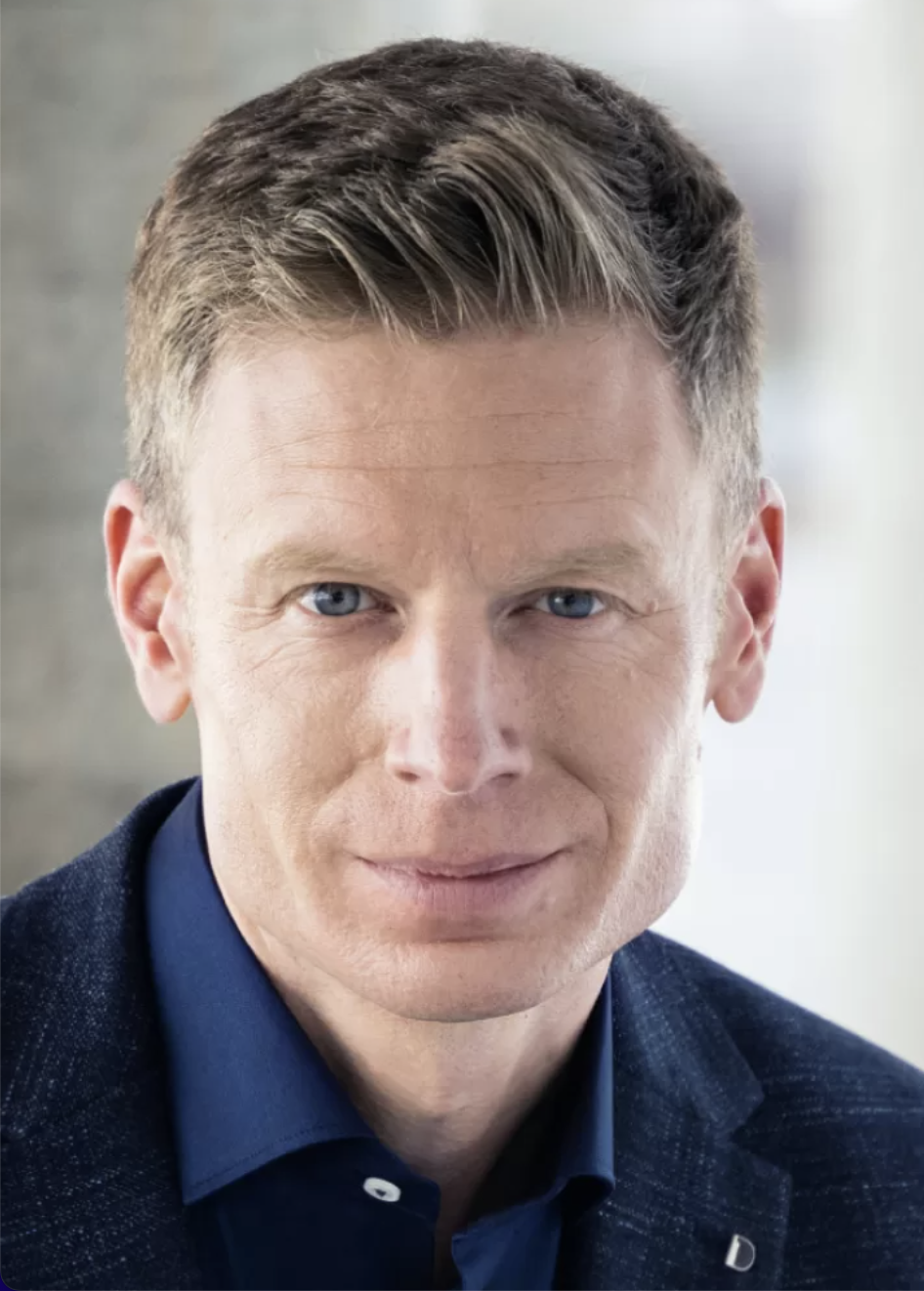

In 100 words or less, what is your vision for the future of Toronto?
I love Toronto but it feels like a city in decline and as I am committed to raising my family here, that is simply not acceptable. I want a city where parents feel safe letting their kids use public transit, where families can go to a museum or baseball game without being stuck in traffic for hours and I want a city where people can grow their business, provide jobs and contribute to their community.
Why do you qualify to be Mayor of Toronto?
I’ve been a newspaper columnist and broadcaster in this city for over ten years. During that time I’ve met people from all walks of life and all neighbourhoods. I loved reading the reports, writing and talking about the issues and feel well prepared to turn this Toronto around.
What is Toronto’s greatest strength right now?
Toronto’s greatest strength is the diversity of small and medium sized businesses that provide jobs, keep our local economy humming and provide vibrancy on our streets and in our neighbourhood.
What is the most pressing issue in Toronto right now?
The most pressing issue in our city is the crime and disorder on our streets, driven in part by the drug crisis.
Do you agree with the “Strong Mayor Powers” and would you use them?
I view the strong mayor powers as a tool of last resort. I prefer to work with council colleagues and convince them of the right way forward through rigorous discussion.
Rank the following issues from 1 to 14, with 1 being the most important and 14 being the least important.
Editor’s note: No further rankings provided beyond these 13.
- Policing and crime
- Local businesses
- Housing
- Public transit
- Traffic and roads
- Employment
- Sidewalks and bike lanes
- Parks and conservation
- Arts and culture
- Indigenous reconciliation
- Public libraries
- Food insecurity
- Healthcare (Toronto Public Health)
Outline the three most important issues currently facing Toronto, and describe how you plan to address each of them as Toronto’s next mayor.
1) Crime and disorder on our streets and on public transit: I will hire 500 more police officers so they can quickly respond to emergencies and have a more visible presence on our streets and subways. I will phase out drug injection sites in order to fund more treatment centres. I will clear park encampments and boost homeless shelter spaces.
2) Affordability: I will focus on respecting tax payers and will commit to not introducing any new taxes. We should not even begin to think about increasing property taxes before doing a thorough review of all program spending with an eye to prioritizing core services. I will also implement a non core services hiring freeze. In order to help first time home buyers I will eliminate the municipal land transfer tax.
3) Helping small businesses: I will eliminate CafeTO fees and speed up the patio approval process by automatically approving all applications not dealt with within 6 weeks. I will implement a “Buy Toronto” policy to favour local business.
What guiding principles or philosophy do you try to live by?
I believe in the importance of family and I try to cultivate in my kids the values I believe in: integrity, honesty, and respect.
Isabella Gamk
Toronto mayoral candidate Isabella Gamk took the time to fill out our mayoral candidates survey. Here's what she had to say.
she/her
isabella.gamk@gmail.com
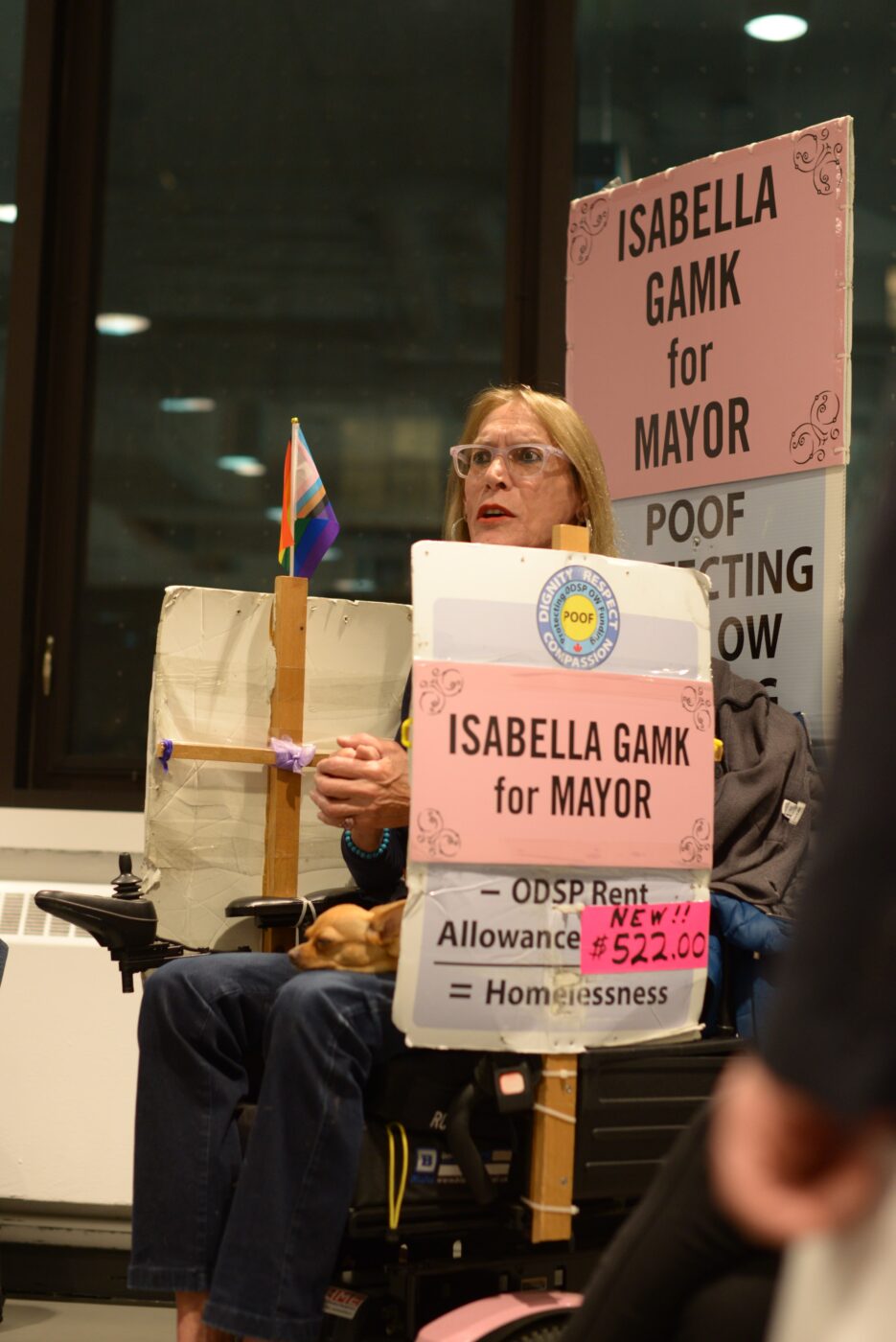
Toronto mayoral candidate Isabella Gamk speaks at the University of Toronto Students Union debate on Oct. 13, 2022.

In 100 words or less, what is your vision for the future of Toronto?
I want to see a cleaner, friendlier, more viable, city that's accessible to all Torontonians including Disabled Torontonians and visitors. I want to see Torontonians educated with facts and not beliefs or superstitions. I want to see the unsubstantiated,unnecessary hatred going on currently against many groups of people in Canada ended and Canada's Hate Laws enacted.
Why do you qualify to be Mayor of Toronto?
I am the Founder of POOF Protecting ODSP OW Funding and I have actively been fighting in the streets to try to get disabled and poor people more money for themselves. I also think Seniors and Minimum Wages earners should receive more money for themselves as well. Studies show when you reduce poverty and homelessness crime goes down. I want to eradicate homelessness in the city of Toronto and end long term Shelter stays. I have much lived experience and am in touch with today's current events.
What is Toronto’s greatest strength right now?
Toronto’s greatest strength is its youth and their future ability to shape the future of Toronto. We need passionate and compassionate youth to become tomorrow's leaders to stop the current political narrative of capitalism over earth life.
What is the most pressing issue in Toronto right now?
Toronto’s most pressing issue is poverty and homelessness many Torontonians are living in, with, or facing.
Do you agree with the “Strong Mayor Powers” and would you use them?
If they benefit Torontonians and not corporate or developer interests, yes.
Rank the following issues from 1 to 14, with 1 being the most important and 14 being the least important.
Editor’s note: No further rankings provided beyond these 13.
- Homelessness
- Housing
- Indigenous reconciliation
- Healthcare (Toronto Public Health)
- Policing and crime
- Traffic and roads
- Food insecurity
- Employment
- Local businesses
- Parks and conservation
- Public libraries
- Sidewalks and bike lanes
- Arts and culture
Outline the three most important issues currently facing Toronto, and describe how you plan to address each of them as Toronto’s next mayor.
The first issue is homelessness and since 91% of ODSP clients and 95% of OW clients I would demand the Provincial Government increase the current inadequate benefits amounts significantly so that ODSP or OW clients can rent a place to live and still have money for food, transportation, communication/phone/internet, laundry, laundry and cleaning supplies, clothes, etc, so that they won't be homeless anymore or end up Homeless due to renoviction or demoviction. Seniors and Minimum wage earners need more money for the same reasons listed above, this means both the Federal and Provincial Government need to fix their programs. Refugees and immigrants need more money to rent and live as well so that we can start closing some Shelters instead of opening more. Opening more Shelters does not mean more people are getting homes, Shelters and not homes.
Housing is a complicated issue and what they classify as ""Affordable is not affordable to any of the groups of people listed above and should therefore be called ""Middle Class Housing"". I don't think people should be segregated into apartment buildings by wealth as this does not make for an a inclusive society. We need to curb the Urban Sprawl to save farmland and densify suburbs somewhat.
Public transportation needs to be better funded but the TTC also has to make sure it is working itself on raising money through advertising and promotions. Too many advertising spots on Subway Station platforms, Subway trains, Streetcars and Buses are vacant and have been vacant the last few years. We need more designated streetcar lanes and more subways built.
The Federal Government and Provincial Government have underfunded many things in the last few decades on purpose to bring about privatization of things everyday Canadians need or want and I promise that I will use my Toronto Mayor voice when elected to demand better from both."
What guiding principles or philosophy do you try to live by?
I believe in fairness, equality, and transparency. I believe in compassion, dignity and respect.
Feng Gao
Toronto mayoral candidate Feng Gao took the time to fill out our mayoral candidates survey. Here's what Gao had to say.

In 100 words or less, what is your vision for the future of Toronto?
P2Pgarden Vatican liked city or county.
Why do you qualify to be Mayor of Toronto?
I need to be mayor of Toronto for changing human system from plutocracy government into BLOCKCLERK governance.
What is Toronto’s greatest strength right now?
Multicultural.
What is the most pressing issue in Toronto right now?
System change.
Do you agree with the “Strong Mayor Powers” and would you use them?
Yes, I agree. I'll use them.
Rank the following issues from 1 to 14, with 1 being the most important and 14 being the least important.
Editor’s note: No further rankings provided beyond these five.
- Housing
- Healthcare (Toronto Public Health)
- Public transit
- Policing and crime
- Food insecurity
Outline the three most important issues currently facing Toronto, and describe how you plan to address each of them as Toronto’s next mayor.
Housing. Health. Public Transit.
What guiding principles or philosophy do you try to live by?
Return power to the people stigmergically.
Brian Graff
Toronto mayoral candidate Brian Graff took the time to fill out our mayoral candidates survey. Here's what he had to say.
he/him
btgraff@gmail.com
Briangraff.net
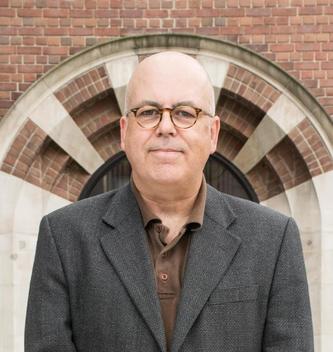

In 100 words or less, what is your vision for the future of Toronto?
I want Toronto to be the best city in the world. It already has the elements of diversity, multi-culturism and inclusion. We need to polish these virtues and capitalize on it. I want to bring strong stakeholders who can build this city to a dynamic example of modernization and technology through heavy investing and smart planning.
Why do you qualify to be Mayor of Toronto?
I am willing to stand up for Toronto against Ford and Trudeau!
What is Toronto’s greatest strength right now?
Most of our strengths come from being in Canada - Toronto has gone downhill since 1997 amalgamation. If we have a strength it is our people.
What is the most pressing issue in Toronto right now?
Too much population growth creating problems with housing markets, lack of infrastructure.
Do you agree with the “Strong Mayor Powers” and would you use them?
Gernally no, and I would avoid using them (except maybe th eright to appoint committee chairs)
Rank the following issues from 1 to 14, with 1 being the most important and 14 being the least important.
- Parks and conservation
- Traffic and roads
- Public transit
- Employment
- Homelessness
- Housing
- Policing and crime
- Healthcare (Toronto Public Health)
- Local businesses
- Public libraries
- Arts and culture
- Food insecurity
- Sidewalks and bike lanes
- Indigenous reconciliation
Outline the three most important issues currently facing Toronto, and describe how you plan to address each of them as Toronto’s next mayor.
The three most important issues are safety and security, housing and transit.
To solve our safety and security issue we can tighten our gun control laws. We have to implement stronger laws and crack down on arms smuggling from across the border.
For housing, we need smart urban planning and make the best use of our available land and encourage people to also look into neighbouring cities for cheaper homes.
Transit issues will be solved if a smart Artificial Intelligence system is implemented in controlling the traffic lights and other junctions of crossing and public traffic. It will synchronize the system and will eliminate the rush in real time.
What guiding principles or philosophy do you try to live by?
I live by the philosophy of leading by example.
Mitzie Hunter
Toronto mayoral candidate Mitzie Hunter took the time to fill out our mayoral candidates survey. Here's what she had to say.
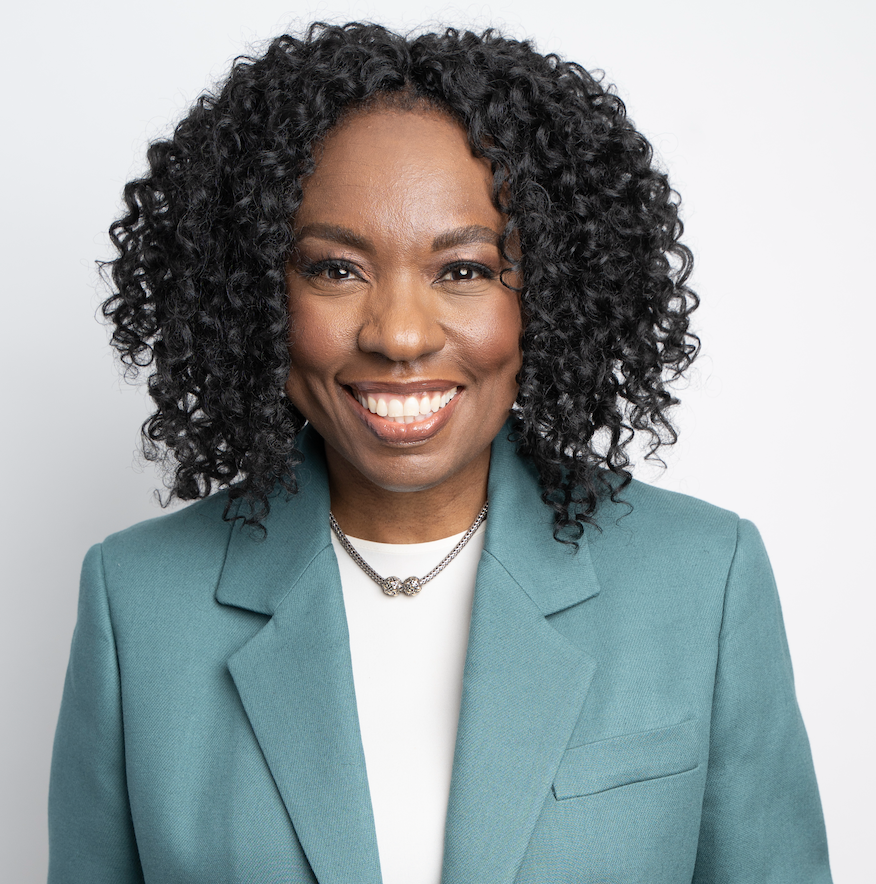

In 100 words or less, what is your vision for the future of Toronto?
As mayor of the city, Mitzie will be focused on dealing with the issues of today while preparing for tomorrow: Housing that is actually affordable so people can build lives here. A city where people feel safe. Transit that is accessible to more riders. And services that people can count on. It’s a plan for the future of our city that also helps people now. Toronto deserves better than the same old, same old. Let's make a difference together. Elect Mitzie Hunter for Mayor — move the city forward once and for all, by bringing new outside perspectives inside City Hall.
Why do you qualify to be Mayor of Toronto?
Mitzie Hunter is an accomplished leader with a proven track record of building and championing the city of Toronto. She has held several high-level leadership positions, including serving as Chief Administrative Officer of Toronto Housing and head of CivicAction. Hunter has also held positions in the provincial cabinet as Minister of Education, Minister of Advanced Education and Skills Development, and Associate Minister of Finance. As a proud immigrant to the city, Hunter has grown up, worked, and lived in every corner of Toronto. She understands how important it is to make sure that voices across each part of the city are heard. Mitzie Hunter’s Plan to Fix the Six provides the path to make sure Toronto is a city that works for everyone. Her passion for building a city that works for everyone comes from lived experience, and the skill to see it through.
What is Toronto’s greatest strength right now?
Toronto's greatest asset has always been its people. From every walk of life and place on Earth. They come with relentless drive and for the opportunity to build a better life. But Toronto is at a turning point, and it's time to work together to ensure that it's not a breaking point. Mitzie's main goal is to make certain that Toronto is a city that works for everyone - that means there are many things, large and small and everything in between, that must get fixed.
What is the most pressing issue in Toronto right now?
Our city is heading in the wrong direction and that must change. That this is an important moment for Toronto. A moment that brings an opportunity to do things differently with a fresh set of eyes. To stop the city from continuing to go downhill for all but a privileged few. The number one issue is we are in a housing crisis. Buying a home in Toronto is now out of reach for all but the wealthiest and rent is sky-rocketing. The only way out of this mess is to add more affordable housing to meet demand and lower price escalation for renters and buyers alike. Mitzie Hunter’s plan delivers more, new affordable housing, more quickly, for the people who need it most and delivers more affordable rental units than any other candidate’s plan. The centrepiece of the plan is a new Toronto Affordable Housing Corporation that will be responsible for the development on public land in buildings of between 10 and 20 storeys which are suitable for small and medium sized lots across the city.
Do you agree with the “Strong Mayor Powers” and would you use them?
Mitzie believes in strengthening democracy, not undermining it. Therefore, she would not use strong mayor powers that undermines councillors and the communities they represent.
Rank the following issues from 1 to 14, with 1 being the most important and 14 being the least important.
Editor’s note: No further rankings provided beyond these 13.
- Housing
- Public transit
- Traffic and roads
- Homelessness
- Policing and crime
- Food insecurity
- Parks and conservation
- Local businesses
- Employment
- Sidewalks and bike lanes
- Public libraries
- Healthcare (Toronto Public Health)
- Indigenous reconciliation
Outline the three most important issues currently facing Toronto, and describe how you plan to address each of them as Toronto’s next mayor.
1. We need to increase affordability. Mitzie Hunter would reverse the recent TTC fare hikes and eliminate all TTC fares for seniors and users of Wheel-Trans to help our most vulnerable and those living on fixed incomes. We also need to protect renters. Hunter will add $50 million to protect existing rental housing from demolition and triple the Rent Bank to provide short-term loans to households at risk of eviction. We’ll ensure all housing on City land is subject to annual rent control limits, advocate to the Province to bring rent control back to all units, and create a Tenant Advocate role to help tenants fight illegal rent increases and fraudulent evictions.
2. We need to increase safety. Police funding should remain stable to meet the needs of our City and that means it has to grow to meet inflationary costs. But as we fund our police service we also need to prioritize community services, outreach programs and mental health supports to tackle the roots of our safety challenges. Mitzie will add 400 new shelter beds to address a system permanently over-capacity, double the capacity of street outreach programs to support individuals who are experiencing homelessness by helping them move into permanent housing, create 2,000 new supportive homes with permanent funding for supportive services for residents, and open 24/7 warming and cooling centres for people experiencing homelessness year-round. Hunter will pair social workers with transit officers on the TTC and install platform screen doors starting with our busiest stations.
3. We need to get the basics right. Toronto relies on safe, clean streets. The number of potholes repaired in the City has declined over the last four years. Last year saw more complaints to 311 about snow clearing than ever before. It’s unacceptable and needs to be fixed. Mitzie Hunter will double the budget for pothole maintenance and increase the budget for snow clearance by more than 10%. She will also significantly increase the budget for the Vision Zero Road Safety Plan to focus on enhancing safety for our most dangerous intersections and roads. We'll winterize washrooms and increase funding for trash pickup.
What guiding principles or philosophy do you try to live by?
It's time for fresh eyes and new perspectives on how to move Toronto forward. Mitzie Hunter is not like your typical candidate for mayor. She's not a former city councillor, or the ex-chief of police. Mitzie Hunter brings a unique set of skills to this race. Her experience includes the role of CEO of CivicAction, CAO of Toronto Community Housing, and former Minister of Education in Ontario. Mitzie Hunter knows how to lead. She is not the status quo. She has a successful track record of championing her constituents at the table. For Toronto, that means everyone, everywhere.
Syed Jaffery
Toronto mayoral candidate Syed Jaffery took the time to fill out our mayoral candidates survey. Here's what he had to say.
HE/HIM
raza8@hotmail.com
Syedjaffery.co
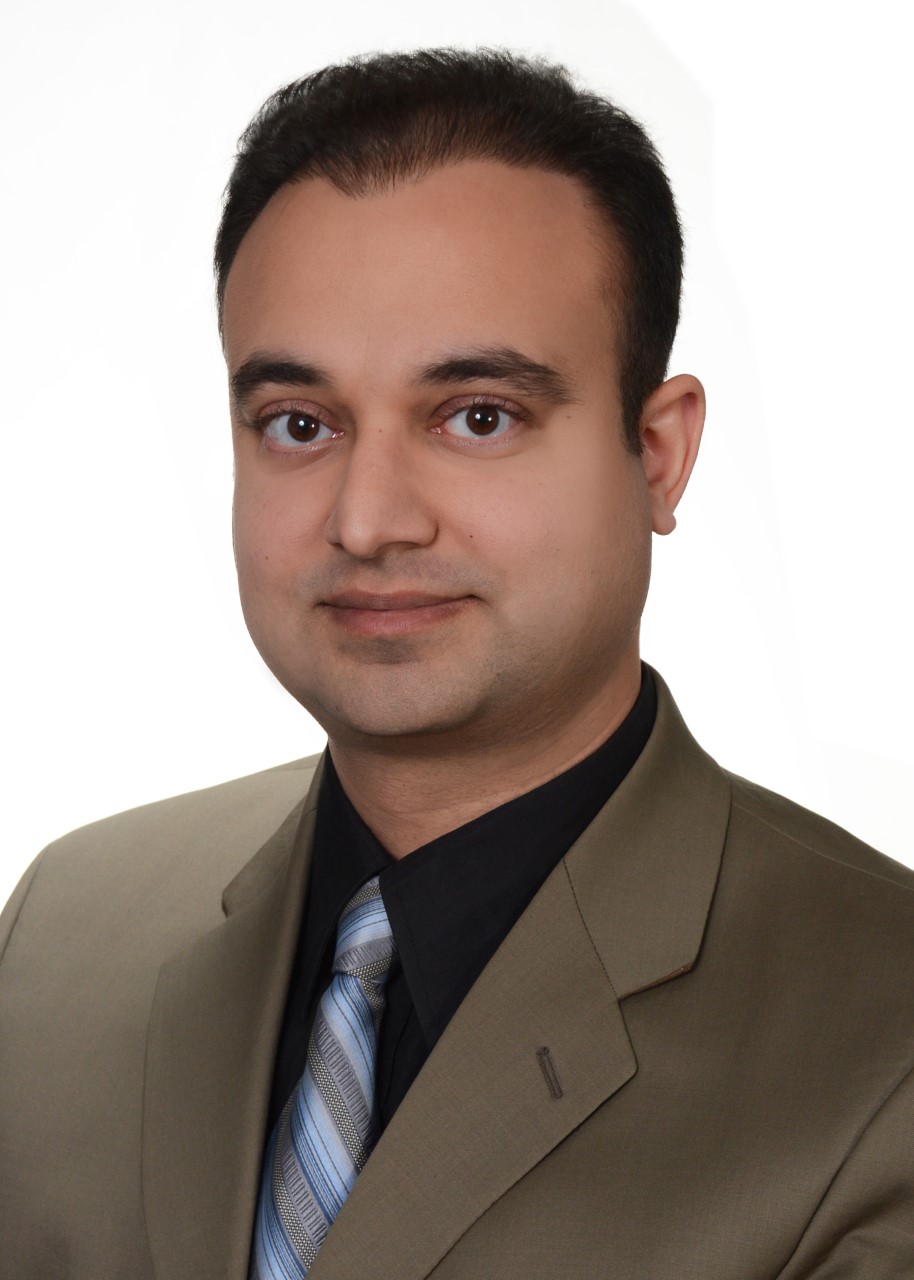

In 100 words or less, what is your vision for the future of Toronto?
I want Toronto to be the best city in the world. It already has the elements of diversity, multi-culturism and inclusion. We need to polish these virtues and capitalize on it. I want to bring strong stakeholders who can build this city to a dynamic example of modernization and technology through heavy investing and smart planning.
Why do you qualify to be Mayor of Toronto?
I qualify to be Mayor of Toronto because I have enough experience to understand the complex politics of a large city. I have been involved in the community for the past 20 years. I started my political career as a student leader. Acquiring experience through several campaigns and volunteering with party candidates during their run for the office has given me a vast experience of political arena. I am passionate about our policies for a stronger economy and indigenous rights. My volunteer work shows my involvement in the community. I am a well known personality throughout GTA and contribute my vast knowledge of science, medicine and politics to the public at large.
What is Toronto’s greatest strength right now?
It's diversity.
What is the most pressing issue in Toronto right now?
The most pressing issue right now is the safety and security of our constituents.
Do you agree with the “Strong Mayor Powers” and would you use them?
I do not agree with strong mayor powers and if given, I would stay away from them to prevent controversy.
Rank the following issues from 1 to 14, with 1 being the most important and 14 being the least important.
- Policing and crime
- Healthcare (Toronto Public Health)
- Public transit
- Housing
- Employment
- Food insecurity
- Homelessness
- Arts and culture
- Parks and conservation
- Local businesses
- Indigenous reconciliation
- Public libraries
- Sidewalks and bike lanes
- Traffic and roads
Outline the three most important issues currently facing Toronto, and describe how you plan to address each of them as Toronto’s next mayor.
The three most important issues are safety and security, housing and transit.
To solve our safety and security issue we can tighten our gun control laws. We have to implement stronger laws and crack down on arms smuggling from across the border.
For housing, we need smart urban planning and make the best use of our available land and encourage people to also look into neighboring cities for cheaper homes.
Transit issues will be solved if a smart Artificial Intelligence system is implemented in controlling the traffic lights and other junctions of crossing and public traffic. It will synchronize the system and will eliminate the rush in real time.
What guiding principles or philosophy do you try to live by?
I live by the philosophy of leading by example.
Mark LeLiever
Toronto mayoral candidate Mark LeLiever took the time to fill out our mayoral candidates survey. Here's what he had to say.
HE/HIM
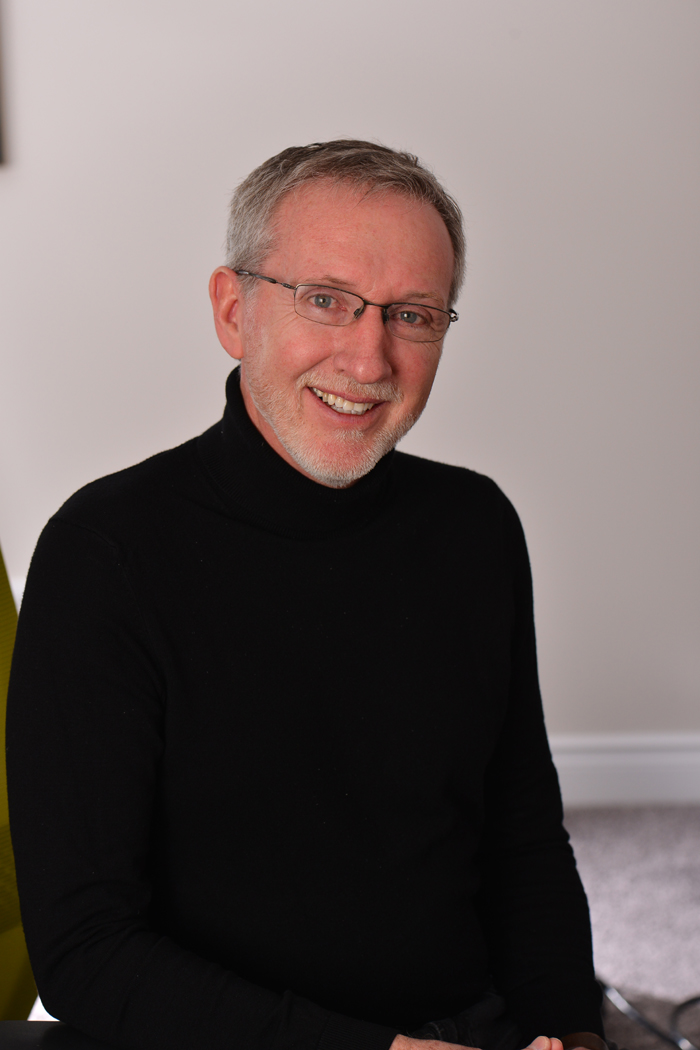

In 100 words or less, what is your vision for the future of Toronto?
My goal is to Get Toronto Moving both physically and economically. A city that moves is a city that thrives, and I intend to get us there.
Why do you qualify to be Mayor of Toronto?
I am a proven leader and have a history of success with thirty years of experience in the private sector building and running my businesses in the transportation and communications arenas, creating dozens of jobs during that time. I combine this leadership and business acumen with the fact I have no political affiliations and as a result I'm blind to "left" or "right" but instead believe fervently in fairness and doing what is best for the majority. I am a creative and critical thinker and will bring an honest, common-sense approach to the Mayor's Office. I am not and have no interest in being a "politician"; as mayor my goal is to make a positive difference in the lives of Torontonians. If someone is happy the way Toronto has been run up to now and the same-old, same-old works for them, I would encourage them NOT to vote for me.
What is Toronto’s greatest strength right now?
The people and their desire for a better life.
What is the most pressing issue in Toronto right now?
The crippling financial crisis we are facing with Toronto's finances. Unfortunately politicians don't truly understand the importance of the bottom line. When we get this City's finances in order, great things will happen for all Torontonians. Traffic congestion is a close second; this city is suffering right now and as a result our mental and physical health is suffering. Safety on the TTC is a close third.
Do you agree with the “Strong Mayor Powers” and would you use them?
Yes. And yes. I think candidates who say they wouldn't use it are either being dishonest or foolish. As mayor your head is on the line; if something goes wrong, the mayor is the person who takes the bulk of the blame. I believe strongly that if you are going to be responsible for decisions made, you need to have more control over those decisions. i would use the Strong Mayor Powers for critical decisions if necessary.
Rank the following issues from 1 to 14, with 1 being the most important and 14 being the least important.
Editor’s note: No further rankings provided beyond these 13.
- Traffic and roads
- Sidewalks and bike lanes
- Public transit
- Policing and crime
- Food insecurity
- Healthcare (Toronto Public Health)
- Public libraries
- Employment
- Housing
- Local businesses
- Arts and culture
- Parks and conservation
- Indigenous reconciliation
Outline the three most important issues currently facing Toronto, and describe how you plan to address each of them as Toronto’s next mayor.
1. Toronto facing a financial crisis. I will create an incentive-based system that will reduce highway traffic by as much as 25% while increasing City revenue by as much as $300 million. I will also call for a forensic audit of the City's books within my first week in office and I'm confident this will give me the insight to drive efficiencies and cut wasteful spending to the tune of 3% or $500 million. These measures will be the start to getting Toronto's financial house in order. When this happens, money can be spent in areas that will improve the lives of Torontonians.
2. I will quickly improve safety on the TTC with cell and Wi-Fi service in all of the 75 subway stations and tunnels within ONE YEAR, and not the much-talked about two years.
3. Toronto is paralyzed by unprecedented traffic congestion due in many ways to the fact some poor decisions were made in the past. Unfortunately we can't easily reverse many of them. To remedy this, I am committed to a) removing bike lanes on major corridors ONLY, RICHMOND STREET the first of those where more than 22,000 cars pour onto it daily off the Don Valley Parkway and Eastern Avenue; b) removing redundant, unnecessary traffic lights; c) improving light synchronization; d) reopening the Jarvis Street on-ramp to the eastbound Gardiner; e) posting 14 police officers at the 14 worst downtown Toronto intersections from 3pm to 6pm each weekday, their focus to enforce drivers who "block the box"; f) reduce highway traffic per my incentive-based system as noted in point 1. above; g) ensure a big-picture, coordinated approach to construction and its timing to minimize compound lane restrictions and road closures on geo-related corridors; in addition to many other changes to ease congestion and improve Torontonians mental and physical health.
What guiding principles or philosophy do you try to live by?
I don't believe in "Left" vs "Right"; I believe in right over wrong, wherever right falls on the political spectrum. It's a belief system that ensures unbiased decisions will ALWAYS be made to the benefit of Torontonians. I care deeply about what I am doing always, and the people I serve. It's the reason I still lead my staff by example and still work 60 to 70 hours each week. It's this tireless work ethic, and commitment to the people I serve, that will bode well for Toronto with me as mayor. I also have an extremely high moral and ethical character and do not believe anything good can come out of recreational drug use. I think I will be a strong mayor both as a respected decision-maker and role model.
Giorgio Mammoliti
Toronto mayoral candidate Giorgio Mammoliti took the time to fill out our mayoral candidates survey. Here's what he had to say.
HE/HIM
Info@giorgiointo.com
GiorgioInto.com
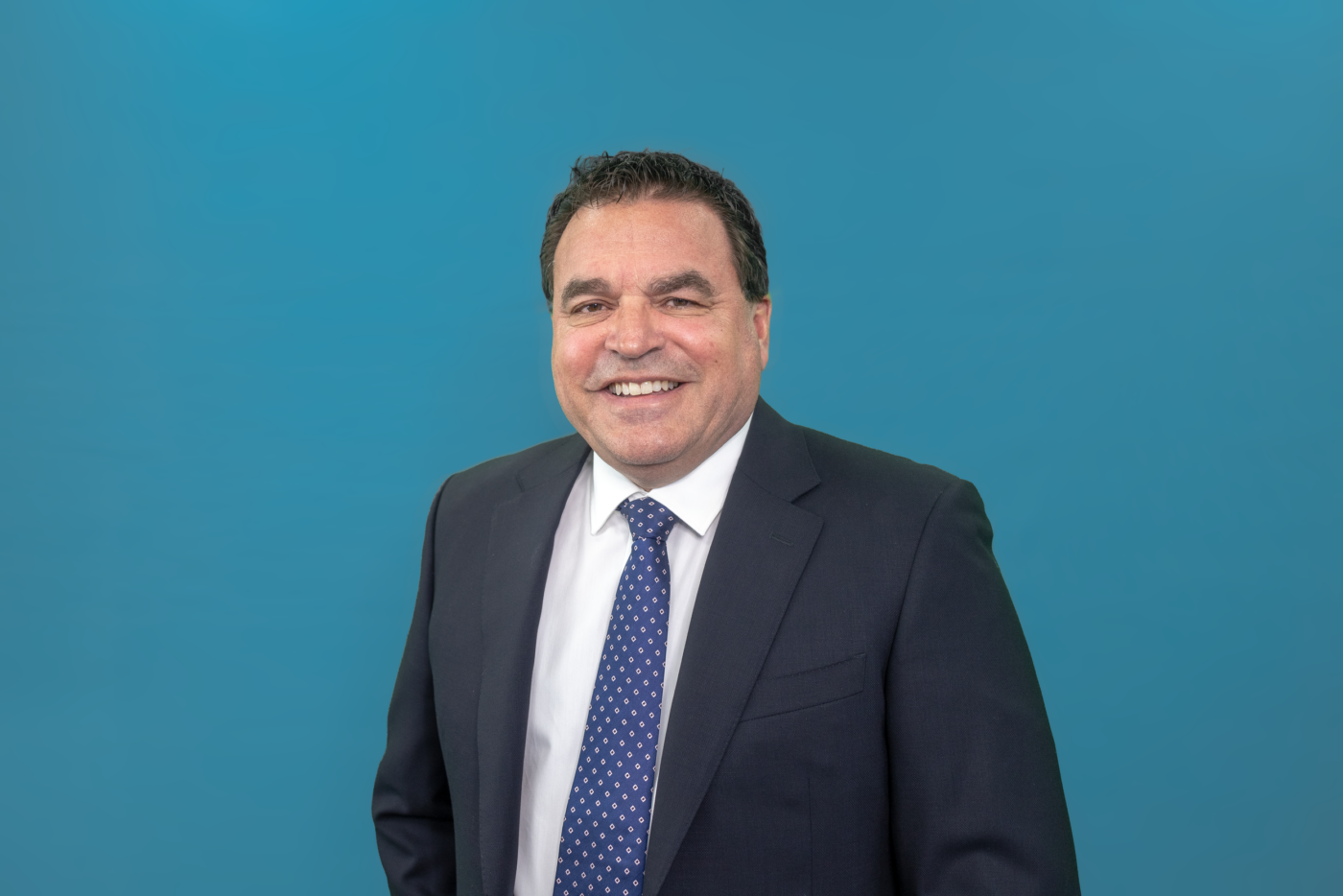

In 100 words or less, what is your vision for the future of Toronto?
Toronto has become a woke Gotham! I'm committed to canceling woke culture and safeguarding our children, seniors, and families by restoring the people's voice in our city. Empowering our police with the necessary tools and resources is vital; we'll revive community-based policing, enabling citizens to know their officers personally and be pleased to see them.
I pledge to transform our city's housing landscape, eliminating shelters and drug injection sites, and replacing them with 12-step programs and transitional housing featuring wrap-around support services. By promoting mixed-use housing partnerships with the private sector, we'll break free from marginalized ghettos and offer dignity and inclusivity for all Torontonians.
Regarding transit, my bold plan entails a dedicated TTC transit division that incorporates mental health support and training. By offering a TTC board seat to the Union, we'll ensure our staff's voices are heard. A comprehensive audit of the TTC will address post-pandemic changes and adapt to new work-life and commuting patterns.
As your unwavering advocate, I promise to create a safe and welcoming TTC environment by tackling staffing issues and fare evasion head-on. With me, Giorgio Mammoliti, at the helm, our TTC will truly be a reliable public transit system, not a makeshift housing solution.
Together, we will usher in a new era of hope and prosperity for Toronto, where every citizen feels secure, supported, and empowered. We will build a city that celebrates our diversity and fosters a spirit of unity, where the well-being of all Torontonians is prioritized. By working collaboratively, we can overcome challenges and seize opportunities, turning our city into a world-class example of resilience, innovation, and progress. Together, we'll shape the future of Toronto and create a legacy of which we can all be proud. Stand with me, Giorgio Mammoliti, and let's make Toronto the vibrant, safe, and thriving city we all know it can be.
Why do you qualify to be Mayor of Toronto?
30 years experience in public service, including 4 consecutive terms at Toronto City Hall. Have served with every Mayor since the Mega City passed.
What is Toronto’s greatest strength right now?
The truth.
What is the most pressing issue in Toronto right now?
Safety, affordability, and the challenges of woke of our children and families.
Do you agree with the “Strong Mayor Powers” and would you use them?
Don’t believe the Mayor needs strong mayor powers to push his/her will around. My administration is about every decision is based on the constituents and businesses feedback. If the councillors are doing their job properly and consulting with tax payers properly then no strong arm tactics are needed. An example I can give is bike lanes. I personal believe that the bike lanes need to go on all arterial roads. But there may be a certain neighborhood which want them. If they approve them to stay they stay. Our job as opticians is to do the will of the people.
Rank the following issues from 1 to 14, with 1 being the most important and 14 being the least important.
Editor’s note: No further rankings provided beyond these four.
- Policing and crime
- Housing
- Public transit
- Healthcare (Toronto Public Health)
Outline the three most important issues currently facing Toronto, and describe how you plan to address each of them as Toronto’s next mayor.
Policing and crime
Very simply the Police need the tools to properly do their job.
If you read the police act you will see prevention is their main task and role. If we tie their hands and don’t let them properly investigate and do their job then this problem will continue.
In my years at city hall I have continually proposed and voted to make sure our police had the budget and resources they needed.
Comm Policing is vital. we need to return ti the days that we knew our police officers by their first name. And be happy to see them. Under my administration even if your fishing rod gets stolen the police will come to help.
This includes a dedicated police devision for the TTC.
We have lost respect for the people that put their lives in the line everyday.
Housing
Shelters and drug injection site gone and replaced with 12 step programs and transitional housing with wrap around supports.
Look at what I did with Regent park.
End the segregated housing which only creates marginalized ghettos and build mix use housing in cooperation with the private sector. Cut the red tape and start building communities and housing to give all people the dignity they deserve.
In 2009 I wrote the first 10 year affordable housing plan in North America. The same principals apply today.
Transit
As I mentioned first off a dedicated TTC transit devision. Which will include mental health supports and training. Working with the TTC hand in hand.
I have also offered a seat in the TTC board to the Union. It is logical and important to have the voice of our TTC staff at the table.
A full audit of the TTC. Everyone is talking to return to pre pandemic funding but after the pandemic. Work life and commute requirements have changed and thus need to be addressed
Time to create a safe and welcoming environment in the TTC. Currently short staffing issues and budget restraints are pulling back staff. Causing ghost towns in our transit system.
This allows rampant fair evasion and and unsafe frightening situations.
Our TTC is our public transit system. Not our public housing system.
What guiding principles or philosophy do you try to live by?
Family, faith, on full public consultation.
Walter Rubino
Toronto mayoral candidate Walter Rubino took the time to fill out our mayoral candidates survey. Here's what he had to say.
HE/HIM
walter@gorubino.com
Gorubino.com
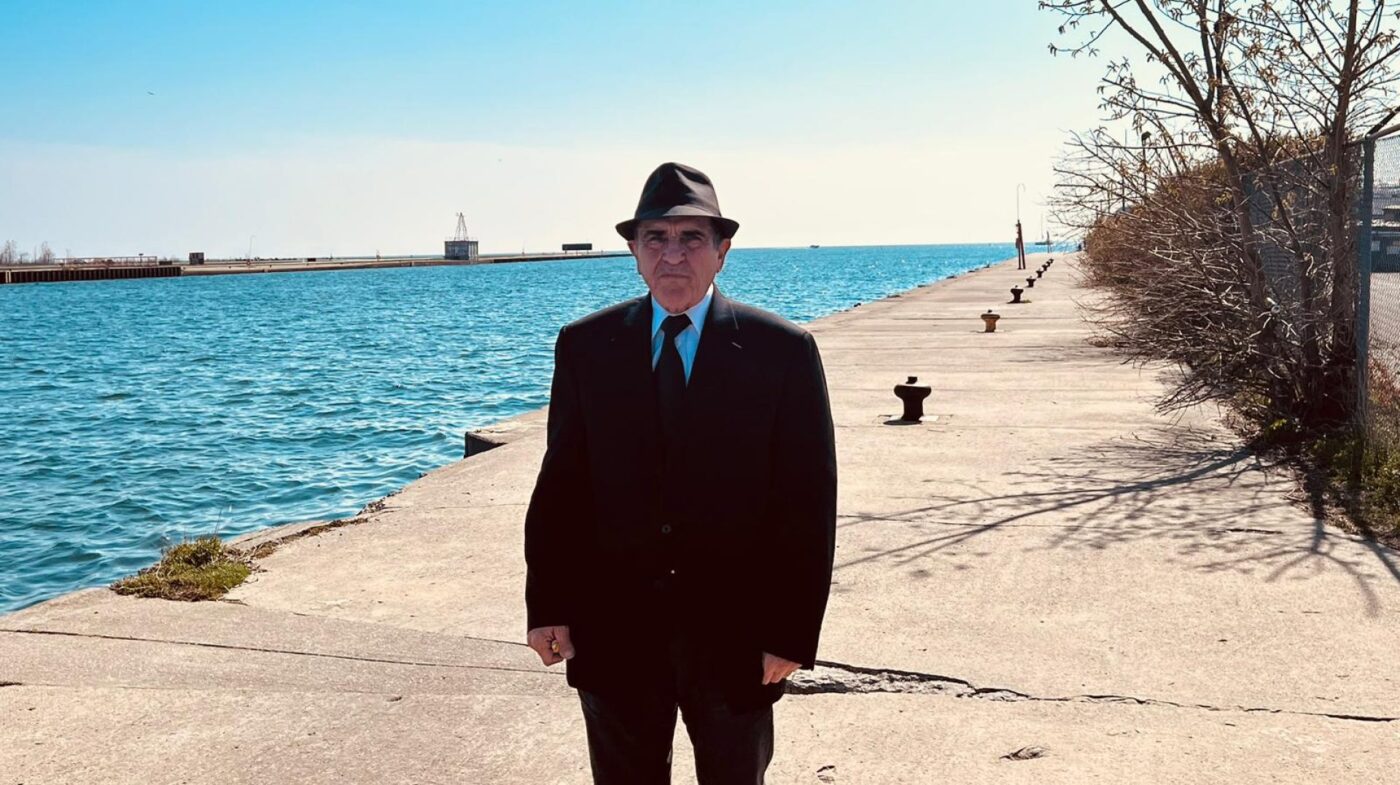

In 100 words or less, what is your vision for the future of Toronto?
Toronto can become a world leader in transit innovation and the resulting reduction of harmful pollutants and traffic congestion.
Why do you qualify to be Mayor of Toronto?
I am ultra progressive and a visionary.
What is Toronto’s greatest strength right now?
Lots of money.
What is the most pressing issue in Toronto right now?
Unequal distribution of money.
Do you agree with the “Strong Mayor Powers” and would you use them?
Yes.
Rank the following issues from 1 to 14, with 1 being the most important and 14 being the least important.
Editor’s note: No further rankings provided beyond these eight.
- Public transit
- Housing
- Arts and culture
- Homelessness
- Traffic and roads
- Policing and crime
- Housing
- Food insecurity
Outline the three most important issues currently facing Toronto, and describe how you plan to address each of them as Toronto’s next mayor.
Free transit will get people out of their cars there by relieving congestion, pollution and road wear and tear.
What guiding principles or philosophy do you try to live by?
Justice, equality and honesty.
Josh Matlow
Toronto mayoral candidate Josh Matlow took the time to fill out our mayoral candidates survey. Here's what he had to say.
he/him
info@votematlow.ca
Votematlow.ca
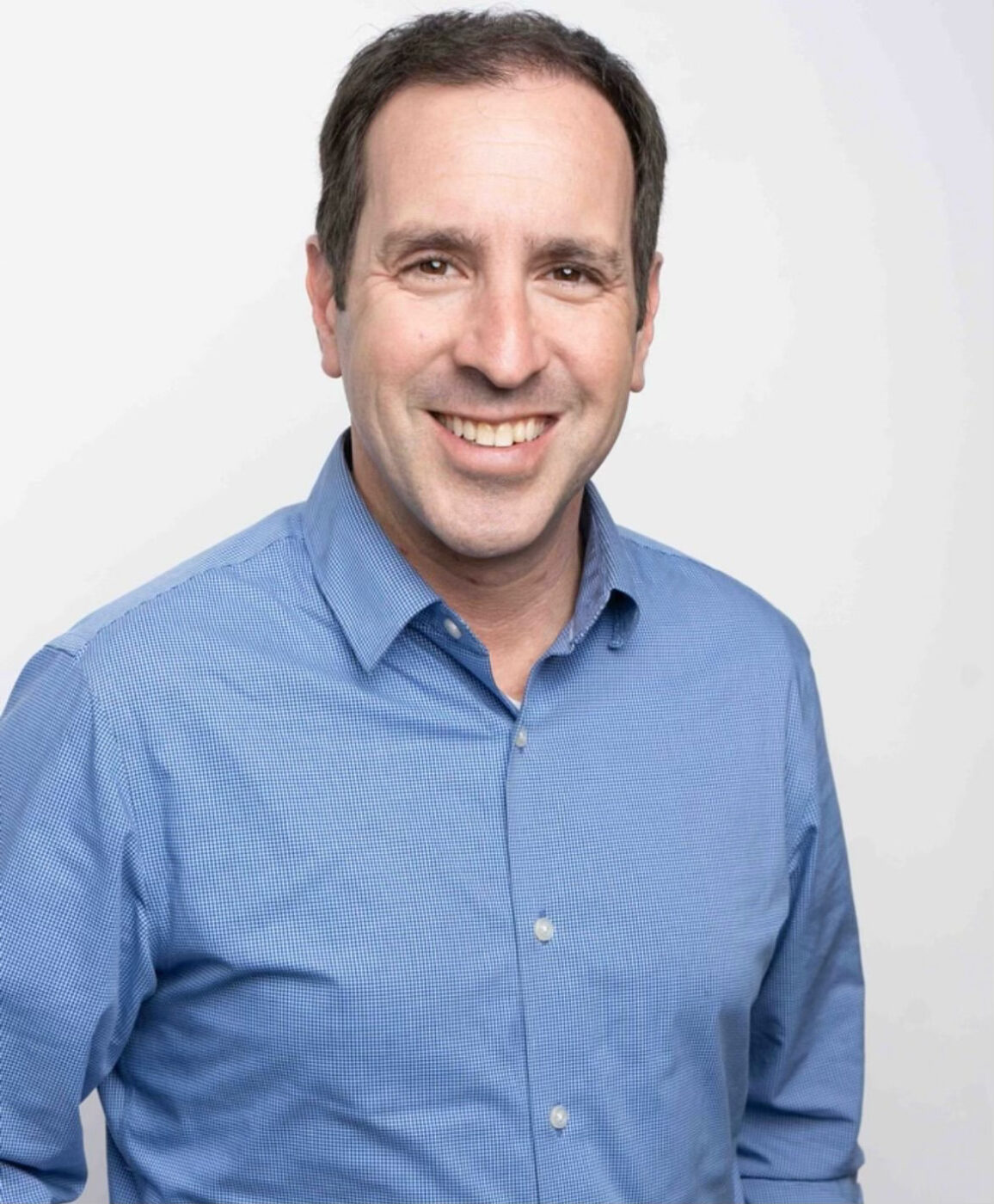

In 100 words or less, what is your vision for the future of Toronto?
My vision of Toronto is one of a city that works in the interests of all Torontonians. This is the time for us to stand up and stand together to choose a better future. I have a real plan to fix our city. One that ensures transit runs on time to ensure that our city can be accessed by all Torontonians. That our young people have the programs they need. That Toronto is safe, affordable and filled with energy and opportunity for everyone. It’s a plan that the City can afford and that is actually doable. My platform includes realistic plans and explained costing.
Why do you qualify to be Mayor of Toronto?
Toronto is my hometown. I love this diverse and vibrant city and I’m inspired daily by the people who fill it with creativity, energy and passion. It’s been my life’s mission to make this city as great as it can be. Through my work with environmental groups, the Toronto District School Board and City Council, I have fought hard to create safe spaces for youth, ensure renters have protections, support seniors who want to age in place and protect Toronto’s green spaces.
As St. Paul’s School Trustee (2003-2010), I initiated a “Green Grid” project for renewable energy generators (such as solar panels) on school rooftops, homework policy reform, campaigned to keep Toronto’s school pools open, advocated for governance and accountability reform, demanded genuine consultation processes for his community, initiated a “Financial Literacy” curriculum to teach students about matters including credit cards, budgets and the stock market, worked with his community to rebuild North Toronto Collegiate Institute and championed initiatives to curb youth violence.
As a community advocate and city councillor, I fought for the improvement and expansion of local parks and public space, high quality and affordable housing and childcare, tenants who need a strong voice, new aquatic and community centres, evidence-based transit including relief for the overcrowded subway system, support for local business areas, farmers markets and arts and cultural events, revitalization of neighbourhoods, improve the Official Plan to put a focus on residents’ quality of life, a strategic plan for Toronto’s seniors to create an Age-Friendly city, the Youth Equity Strategy to address youth violence at its roots, championed efforts to bring a proactive approach to community safety. Campaigned for solutions to gridlock and has been a leader on governance reform at every level of government. As Mayor, I will bring a strong, independent and facts-based perspective to ensure that Torontonians across every neighbourhood feel represented in the work I do. Torontonians work hard, and I promise to rebuild a City that works for you.
What is Toronto’s greatest strength right now?
This City is one of the most multicultural cities in the world, with over 200 ethnic groups. This diversity is reflected in the incredibly vibrant arts and culture scene. The arts and culture sector delivers billions in GDP to our economy every year, employs thousands of Torontonians, and brings communities together, connecting us through artistic experiences. Over 100,000 Torontonians are employed in the arts and culture sector. The film and television sector in Toronto employs 35,000 Torontonians and production spend amounts to over $2B. In 2021, the screen industry brought 1468 productions and over 7,800 production days across the city. As mayor I plan to champion Toronto’s arts and culture community, taking immediate measures to address affordability and help the sector recover. I will ensure the City is taking an active role in creating a more vibrant city after COVID.
What is the most pressing issue in Toronto right now?
The City is facing a deficit of $1 billion or more and has an outstanding shortfall of $454 million from last year. Toronto has a small commitment from Ontario to cover a portion of the gap and Council hopes Ottawa will also step up, but I have a Plan B in case that does not happen. At this stage, given the choice between cuts and keeping services we rely on, we can’t afford to turn our back on any funding source. There are existing and new revenue tools that I would employ to help us make Toronto the safe, affordable, livable city we all know it can be. To raise much-needed funds, I've proposed: a new Community Safety Fund, which would generate $115 million annually by the end of my term through a three-year police budget stabilization; a new City Works Fund, which would generate $395 million annually by year five and cost the average homeowner $67 per year - or $5.55 per month - dedicated to reinvesting in city services like reversing TTC cuts, improving snow removal and recreation services; a climate-action commercial parking lot levy that will raise roughly $200 million per year to fund environmental priorities. Plus, we can free up vital funds by choosing to rebuild the elevated east portion of the Gardiner at grade instead, which could potentially save $1 billion. Toronto’s next mayor must have a detailed, credible budget for their campaign platforms to even be considered for the job.
Do you agree with the “Strong Mayor Powers” and would you use them?
I have been clear since the start that I will not use Premier Ford’s undemocratic strong mayor powers to overturn the will of City Council. In fact, in 2022, working collaboratively alongside 14 other councillors, I called on the Ontario Government to scrap Bill 39, the Better Municipal Governance Act. Toronto is a city with a vibrant democracy, and democratically elected local governments and government representatives have the responsibility to make decisions that are in the best interests of residents. Given our fiscal situation as a cCity, the next Mayor of Toronto will have a strong mandate to work collaboratively with all councillors to get our city out of its financial hole and restore services and quality of life. In my 13 years on Council, I know that more than 80 per cent of the time, council votes in line with the mayor’s wishes. My approach will be to present evidence-based and fully costed commitments to improve safety, affordability and livability for all Torontonians. I believe that the City Council will listen to the will of the people by joining me in following the facts and investing where they lead us. My track record demonstrates my work with colleagues and other levels of government on issues that are important to Toronto residents, including working with former mayor John Tory and Toronto’s Shelter, Support and Housing department on the issue of community safety in midtown Toronto in 2020 and joining with 14 City Councillors to issue a letter to Premier Doug Ford and Minister Steve Clark on Bill 39.
Rank the following issues from 1 to 14, with 1 being the most important and 14 being the least important.
Ranking issues is not the best approach our campaign will be using to tackle issues faced in our City. In an effort to not overlook or neglect the issues faced by Torontonians we have decided to skip this question, but not entirely. The issues are all interconnected and have complex intersections. With that being said, prioritizing some over others without actively considering how they are related will lead to inadequate solutions to the root causes. Ranking these issues may also perpetuate existing power dynamics and inequities. For example, addressing the issue of food insecurity in isolation without addressing the underlying issues of deeply affordable housing, rising costs of public transportation and lack of employment opportunities for many Torontonians will only result in short-term solutions. In my work, I am intentional about taking an intersectional approach to problem solving the issues our city is facing and I believe every candidate must do the same.
Outline the three most important issues currently facing Toronto, and describe how you plan to address each of them as Toronto’s next mayor.
AFFORDABILITY. Toronto residents have been priced out of the housing market and need access to truly affordable housing. Currently, most development on public lands is outsourced to private developers that build housing with high profit margins. With $300 million saved by rebuilding the portion of the Gardiner Expressway east of Jarvis at ground level instead of as an elevated expressway I will establish Public Build Toronto, a City agency that will develop housing on City-owned lands. With this agency, we will be able to remove developer margins and build housing at cost on 25 million square feet of public land. The agency will support city staff in directly hiring construction companies and partner with non-profit or co-op builders. It will provide a mix of 6,750 affordable apartments, including 750 affordable units for Torontonians on very low or fixed incomes and 8,250 rent-controlled market apartments. With this mix, the units would not require ongoing government subsidy. Through rents, this self-sustaining model would also provide the City with funds to reinvest in the construction of new housing. To control housing costs I will also crack down on illegal “renovictions,” implement rent control on all City-owned properties and make getting around more affordable by restoring reliable service to the TTC.
SAFETY. The approach our city has been using to address violent crime is not working, and too many people are killed or seriously injured on our roads. To improve safety on the TTC and in our neighbourhoods, I will stabilize the police budget to establish a $115-million Community Health & Safety Fund. Violence doesn’t begin on a subway platform. It begins in our communities – especially when people are grappling with poverty, racism, trauma, addiction and economic disadvantage. The Community Health & Safety Fund will provide services that address well-known risk factors for criminal behaviour and fund vital supports that include: expanding mental health crisis teams that specialize in de-escalation on the TTC and across the city; additional and improved shelter beds to ensure vulnerable people have places to go; mental health and addiction counselling; safe spaces for at-risk youth; job training; recreation programming; expanded library access; shelter improvements; childcare; services for unhoused residents and eviction prevention. Through our Tenant Support Program, I will also ensure we stop illegal evictions that result in people becoming unhoused in the first place. To make our roads safer, I have proposed we double capital investments in Vision Zero to redesign dangerous intersections and stretches of road. This $33 million increase in funding over two years will save the lives of cyclists, pedestrians and drivers. Ensuring residents leave their homes and travel around our world-class city feeling protected and ultimately arriving home back safely is what will be at the forefront of Council should I be elected Mayor.
LIVABILITY. Our city is in visible decline due to a decade of poor leadership, which starved City services with artificially low taxes. By cutting services to keep taxes low, many Torontonians find themselves paying a lot more to supplement the services that have been cut. With a modest tax increase that will cost the average homeowner $5.55 a month, I will raise $390 million annually within five years to improve the services we rely on. The City Works Fund will help reverse cuts to the TTC made earlier this year, fix crumbling roads and potholes, make warming centres available for unhoused people to go when it’s cold outside, clear snow from streets and sidewalks in a timely manner and ensure park amenities are open when people need them. In addition to restoring our basic infrastructure, I will open all 100 libraries on Sundays, all year-round and open local schools on evenings and weekends, to increase community access to social connection, recreation and educational programming in neighbourhoods. It’s time to invest in a city that works for everyone.
What guiding principles or philosophy do you try to live by?
I’m a community advocate, a city builder and a proud City Councillor. And I believe in the promise Toronto holds for so many – but for too long, it has been held back from its true potential.
Transparency: Toronto’s next mayor must have a detailed, credible budget for their campaign platforms to even be considered for the job. The City is facing a deficit of $1 billion or more and has an outstanding shortfall of $454 million from last year. Toronto has a small commitment from Ontario to cover a portion of the gap and Council hopes Ottawa will also step up, but I have a Plan B in case that does not happen. At this stage, given the choice between cuts and keeping services we rely on, we can’t afford to turn our back on any funding source. There are existing and new revenue tools that I would employ to help us make Toronto the safe, affordable, livable city we all know it can be. To raise much-needed funds, I've proposed: a new Community Safety Fund, which would generate $115 million annually by the end of my term through a three-year police budget stabilization; a new City Works Fund, which would generate $395 million annually by year five and cost the average homeowner $67 per year - or $5.55 per month - dedicated to reinvesting in city services like reversing TTC cuts, improving snow removal and recreation services; a climate-action commercial parking lot levy that will raise roughly $200 million per year to fund environmental priorities. Plus, we can free up vital funds by choosing to rebuild the elevated east portion of the Gardiner at grade instead, which could potentially save $1 billion. The only way any candidate running for mayor can earn Torontonians' trust is by laying out realistic plans and explaining exactly how to pay for them.
Advocacy: We know that low-income, racialized communities, urban Indigenous residents, people with disabilities and those who are in precarious work conditions are disproportionately impacted by homelessness. A housing-first approach to policy decisions proves that we can address systemic inequalities by increasing and safeguarding equitable access to affordable housing and tenants’ rights. I was proud to put forward our Tenant Support Program to make sure landlords who try to evict tenants illegally are stopped and bad landlords are held accountable. This program will establish rent control in all units that receive any City funding, advocate relentlessly to the province to reinstate rent control, increase funding for paralegals to fight unfair above-guideline rent increases, enforce the Residential Tenancies Act at the City level, enact a maximum temperature by-law of 26 celsius, increase fines on landlords for property standards violations (such as lack of pest control, appliance repair or adequate temperature) and implement standards for how much time can pass before landlords comply with work orders before fines are levied. Plus, it will increase funding for the Toronto Tenant Support Program fund to support outreach workers. Tenant associations have been doing extremely important work on the front lines on behalf of Toronto’s tenants but they need the resources and support to continue doing it. I am committed to work with them to ensure tenants have stronger protections and an affordable place to call home. I am proud to have served Toronto as City Councillor and TDSB Trustee over the years and the fight for equality has been at the heart of my work. This includes, as mentioned above, the Toronto Youth Equity Strategy, adopted by City Council in February 2014, the creation of 20 new youth hubs across the city, which provide young people with safe spaces to gain employment skills, get help with homework and engage in local issues and initiatives at the grassroots community level, the City’s Seniors Strategy, focused on creating age-friendly communities and bringing emotion-focused care into seniors’ long-term care home across Toronto, and my ongoing work with community members in Toronto’s Little Jamaica community.
Mark Saunders
Toronto mayoral candidate Mark Saunders took the time to fill out our mayoral candidates survey. Here's what he had to say.
he/him
campaign@marksaundersfortoronto.ca
Marksaundersfortoronto.ca
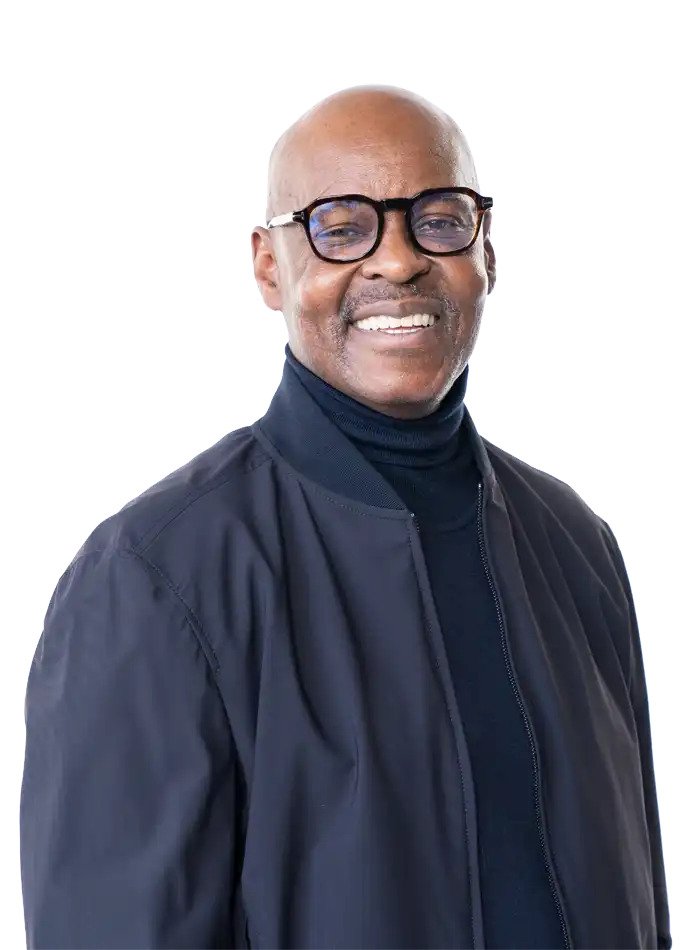

In 100 words or less, what is your vision for the future of Toronto?
Toronto should be a place where everyone is treated equally and with respect, no matter their race, ethnicity, gender or identity, where they live, or how much money they make. People should be able to walk the streets without fear, and everyone should have the dignity of a safe and secure home they afford. Our green spaces should be protected, businesses should thrive and provide employment for anyone who wants it, and people should be able to travel freely through the city either by transit or vehicle to enjoy all the riches that Toronto has to offer.
Why do you qualify to be Mayor of Toronto?
As a police officer for 38 years, I have seen the good and bad of every street and neighbourhood in Toronto and understand the personal and financial struggles that Torontonians face every day. As Chief Police for five years of Canada's largest municipal police force and one of the largest in North America, I personally managed multi-billion-dollar budgets - including two consecutive years with zero increase while still delivering core services - and was responsible for a team of 7,400 people. As many Torontonians are, I am concerned about the rising rates of crime and disorder on our streets and on the TTC and am uniquely qualified to improve safety in our city. I have a realistic plan to build the hundreds of thousands of new homes that we need by partnering with builders, instead of saddling taxpayers with $12 billion in construction loans, and many more billions in the future to maintain and manage the buildings as Olivia Chow proposes.
What is Toronto’s greatest strength right now?
It's the people, one hundred percent.
What is the most pressing issue in Toronto right now?
Housing that we can afford, and crime and disorder on our streets and on the TTC.
Do you agree with the “Strong Mayor Powers” and would you use them?
There are extraordinary times when using Strong Mayor Powers may be necessary, such as implementing a realistic plan to build the housing we desperately need instead of the failed plan that Council passed. At the current rate of construction, it will take Council another 45 years to reach their target of 40,000 affordable homes.
Rank the following issues from 1 to 14, with 1 being the most important and 14 being the least important.
Editor’s note: No further rankings provided beyond these six.
- Policing and crime
- Housing
- Public transit
- Homelessness
- Local business
- Traffic and roads
Outline the three most important issues currently facing Toronto, and describe how you plan to address each of them as Toronto’s next mayor.
Crime and disorder across Toronto are rising and cannot be normalized. I will hire the 400 police officers that Toronto is currently short, which has led to 20 minute response times to 911 calls. I will immediately put 200 Special Constables on the TTC and take other measures to protect riders and staff including live cameras on subway platforms and bus and streetcar tracks, and improve lighting. City Council's housing plans have been an epic fail. At the current rate of construction, it will take 45 years to meet their ten-year goal of 40,000 new affordable homes - and we need 285,000 of them. Rather than the City building itself and saddling taxpayers with billions of dollars in construction loans, hiring hundreds of new City employees to operate and clean the buildings, and endlessly paying for repairs and maintenance, I will provide incentives for builders to add the maximum number of affordable, deeply affordable and supportive units in their projects - at no long-term cost to the City. I will cut the approval time for a new project to one year from three, and press the federal and provincial governments to unblock billions of dollars already set aside to help build new housing but which can't be accessed because the lending criteria are out of date. We are not doing enough to help those struggling with mental health and addiction, which affects people from all backgrounds and incomes, and too often contributes to homelessness. My plan focuses on treatment and rehabilitation including offering free City space to non-profits for this purpose, and expanding services and supports and making them available 24/7, not just 9 to 5.
What guiding principles or philosophy do you try to live by?
My parents taught me that no matter how little you have, you always have something to give to someone else.
Robert Shusterman
Toronto mayoral candidate Robert Shusterman took the time to fill out our mayoral candidates survey. Here's what he had to say.
he/him
rob.shusterman@gmail.com
facebook.com/profile.php?id=100007267669223
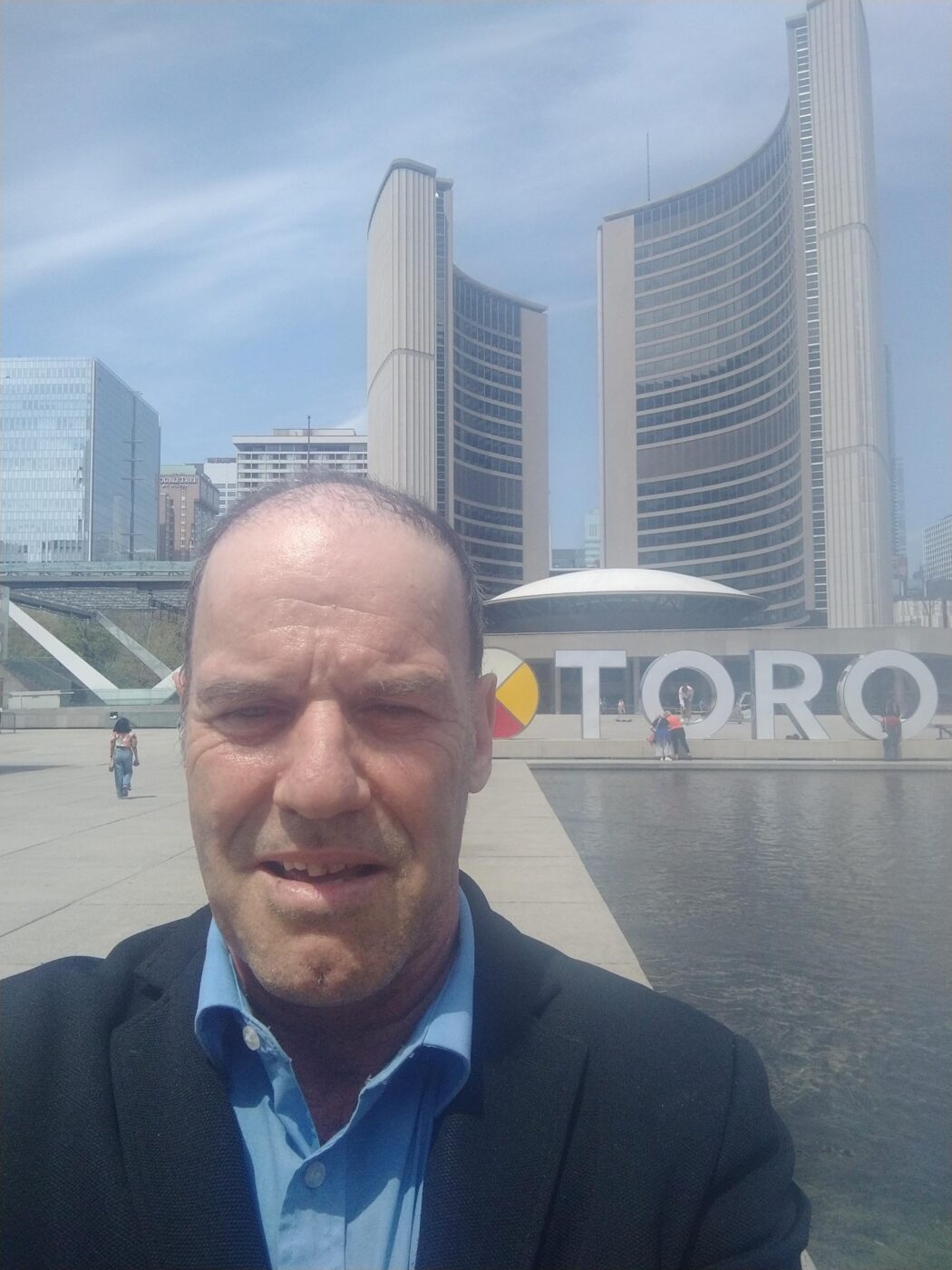

In 100 words or less, what is your vision for the future of Toronto?
I see us having more subways, more culturally diverse and I see the city becoming cleaner with less crime.
Why do you qualify to be Mayor of Toronto?
I have a diverse background. I have dealt with many different types of people across a wide variety of cultures.
What is Toronto’s greatest strength right now?
I have the ability to listen to people and be understanding of their needs. I regularly do nice things for people such as give flowers out at the Volunteer jobs and paying jobs that I work at.
What is the most pressing issue in Toronto right now?
Dealing with mentally ill people and the homeless.
Do you agree with the “Strong Mayor Powers” and would you use them?
No I would not. The City councillors need to have a say in the matter.
Rank the following issues from 1 to 14, with 1 being the most important and 14 being the least important.
Editor’s note: No further rankings provided beyond these three.
- Food insecurity
- Healthcare (Toronto Public Health)
- Public transit
Outline the three most important issues currently facing Toronto, and describe how you plan to address each of them as Toronto’s next mayor.
Dealing with the mentally ill. Professional people who deal with them need to consult family members of the mentally ill to get their guidance and direction on how to deal with them. The roads are not in good shape. We need to repair pot holes quicker. We need a task force designed to deal with that. The cost of borrowing is too high. It does not make sense that a person who is making a lot of money pays a cheaper interest rate on their mortgage then someone who is making less money. Rules need to be placed putting stipulations on being with B lenders. There should be a time limit on it. After 3 years of being with a B lender the Borrower should automatically be placed with an a lender regardless of their income as long as they have established good convenient meaning that they pay their mortgage on time every month.
What guiding principles or philosophy do you try to live by?
Honesty, dependable, reliable, hard-working, ethical.
Erwin E. Sniedzins
Toronto mayoral candidate Erwin E. Sniedzins took the time to fill out our mayoral candidates survey. Here's what he had to say.
he/him
esniedzins@gmail.com
Sniedzins4mayor.com
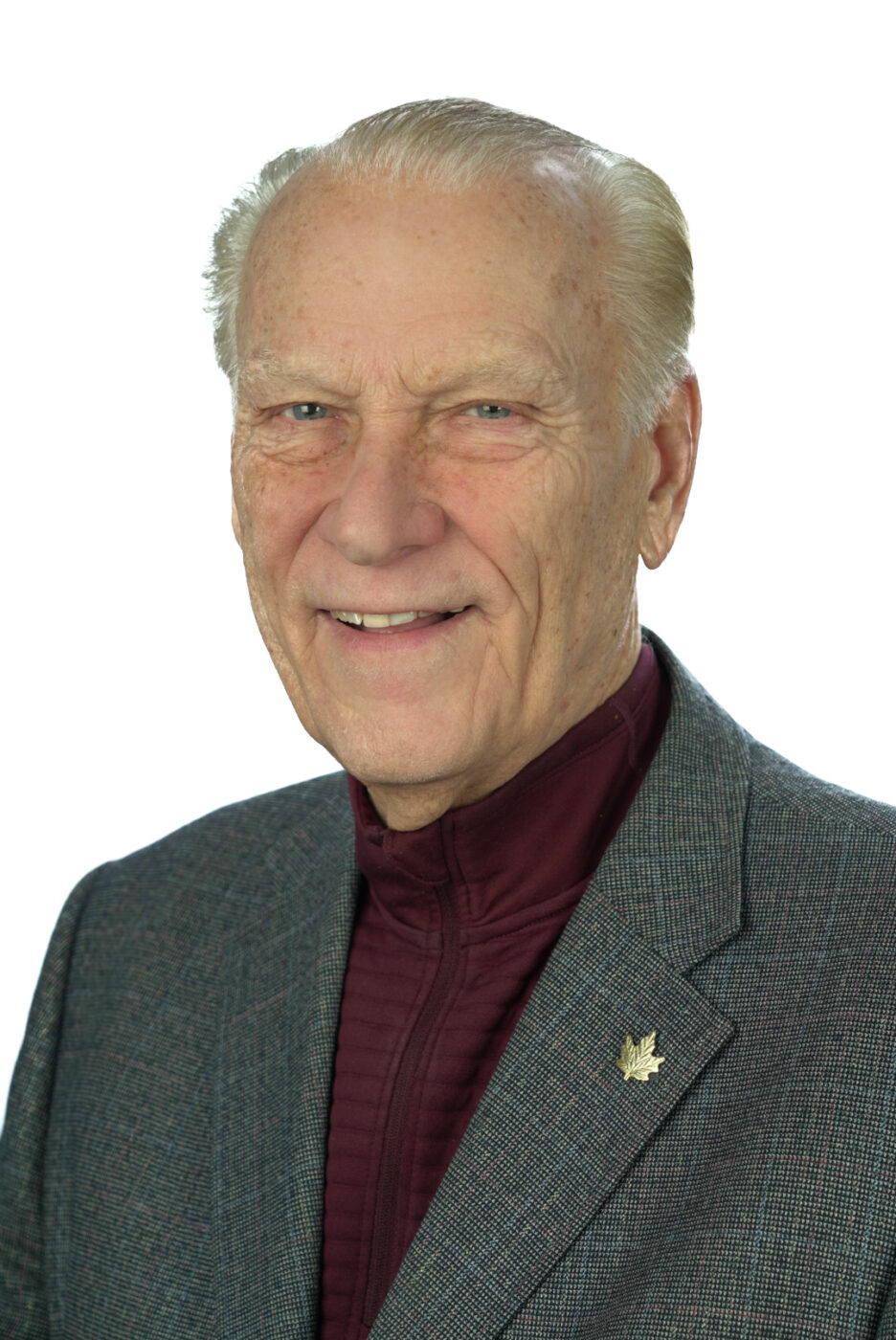

In 100 words or less, what is your vision for the future of Toronto?
A global city rated #1 for affordability, safety, innovation, prosperity, civility, tourism, entertainment, diversity, and environment. Where affordable housing and rents are sustainable for all Torontonians. The TTC has been revamped, and Tesla’s door-to-door autonomous shuttle buses and robotaxis transportation have been personalized for each rider providing safe services while saving the city $1 billion. All large new high-rise buildings to have preschool and senior spaces, greenery roofs, hydroponic food sources, geothermal heat pumps, solar-wind power walls to reduce GHG. Record-breaking tourism visiting Indigenous culture centres, Science SpaceX Robotic and the Canadian Alpha characters and arts centres.
Why do you qualify to be Mayor of Toronto?
Local, national and international business experience with the ability to see Toronto's future with affordable housing that pays for itself, revamping the TTC for safety while saving $1 billion, increasing revenues through tourism while freezing taxes, and making these visions into our realities.
President of Mount Knowledge Inc, Toronto Education Press Ltd. UCANDU Foundation for Accelerated Learning, a patented education inventor of the Knowledge Generator that enables people to learn 32.3% better, honorary professor, international publisher, best-selling author, Keynote speaker on 'Make Mt. Everest Your Stepping Stone,' productivity consultant, movie and music producer, creator of the Mt. Everest Climb for Hope expedition, a mountaineer, co-producer of Everest, Climb for Hope documentary that won a gold award at the New York International Film Festival, philanthropist and travelled to 108 countries. www.mountknowledge.com; www.TorontoEducationPress.com; www.sniedZins4mayor.com;
www.ufal.ca.
SniedZins is the founding President of Mount Knowledge Inc, a company that he started with an idea and, in 3 years, took the company onto the USA stock market. Erwin knows first-hand how difficult it is to start a small business, make a profit, raise funds and stay afloat. Many small businesses, entrepreneurs and newcomers to Canada have sought Erwin's help to open or improve new companies. A company's city's success depends on its people's skills and abilities, so hiring and training the right staff is essential. He has helped many start-up companies succeed with their strategies, operations, and staff training. SniedZins is upgrading the Knowledge Generator personalize Gamification software into a BLOCKCHAIN Education currency monetization knowledge where educators and students are paid to teach & learn STEM subjects. The patented 'gamification' invention enables people to turn ANY textual data 'Info into their Knowledge' (iiK), 32.3% better and faster – in DYNAMIC Real-Time - over traditional learning methods. Students and educators will receive KGcoin education currency. Prof. SniedZins conducts workshops to teach and train teachers, students, parents and trainers on how to manage better the educational technology changes that will affect and better their lives. In 1991 SniedZins put together an Mt. Everest expedition called the "Climb for Hope" for charity and raised over $1.3 million for Rett Syndrome. SniedZins co-produced this expedition into a movie that won the Gold Award at the New York Film Festival. SniedZins was the Chairman of the Inner City Angels, which provides art programs to inner-city children. SniedZins believes that all children should be able to play a musical instrument, learn a second language, write, draw and appreciate the arts. With 30 years of community and charity work, SniedZins has much experience bringing together communities for worthy causes, helping newcomers network and gaining Canadian working experience. As an author and publisher, SniedZins has written and co-authored 15 books, "Who's Who in Toronto: A Celebration of this City," which became a bestseller, "Three Pillars of Love – Mt. Everest Expedition for Sarah," trilogy, Selected Love Poems, and soon to be published "Make Mt. Everest Your Stepping Stone." SniedZins has co-authored ten (10) ESL Grammar workbooks and published "Syntality® - Accelerated Learning by Actively Doing," which trains people with general and special needs to learn better.
Erwin has travelled to 108 countries to learn about their cultures and vitality.
What is Toronto’s greatest strength right now?
Canada's economic powerhouse to become #1 and a global destination place for tourism and business again.
What is the most pressing issue in Toronto right now?
Affordable housing, TTC safety, violent crime, homelessness, environment, immigration, parental education rights.
Do you agree with the “Strong Mayor Powers” and would you use them?
Only for Torontonian betterment toward affordable housing, revamping the TTC for better safety and services with autonomous shuttle buses and robotaxis, thereby saving $1 billion, increase city revenues through tourism, improving police services, lowering taxes, creating a $1 billion affordable housing municipal bond payable over 30 or less to produce 30,000 new prefab houses per year.
Rank the following issues from 1 to 14, with 1 being the most important and 14 being the least important.
- Public transit
- Housing
- Policing and crime
- Homelessness
- Healthcare (Toronto Public Health)
- Traffic and roads
- Local businesses
- Employment
- Food insecurity
- Indigenous reconciliation
- Public libraries
- Arts and culture
- Parks and conservation
- Sidewalks and bike lanes
Outline the three most important issues currently facing Toronto, and describe how you plan to address each of them as Toronto’s next mayor.
- "Affordable Housing that Pays for Itself.” Create a war's measure act to establish a $1 billion affordable housing bond, and with the support of affordable housing, habitats for Homelessness, Wellness NGOs along with manufacturing companies begin producing 30,000 habitats per year while designating the Downsview, metro, provincial and federal lands as land lease ONLY lands to keep speculators out and sustainable habitats as a social service. Renovate the 2100 THC building and 22,000 units while building 90,000 new habitats for the families on the waiting list. The 400,000 new refugees and newcomers coming into Canada each year will be redirected to 300 t 500 self sustaining Satellite villages that have up to 3000 affordable units supported with transportation robotaxis and autonomous shuttle buses providing safe door to door services in two to three years that is cheaper than a regular TTC ride. This will save 10 of billions of dollars in highways, subways, streetcar tracks and their maintenance While houses are manufactured, establish satellite net zero smarter villages on land leased land throughout Ontario that are self reliant with schools, trade education, medical centres, geothermal heat pumps for all buildings and road so you do not have to remove the snow, hydroponic system for each house and for the community, solar, wind, power walls, fuel cells, etc.
- Transit safety - immediately revamp the TTC into the 22nd century with high-speed free WiFi connected to TTC security hubs with installed cameras on each vehicle connected to loudspeakers & panic lights. See something Say something can now be communicated immediately to security hubs & TTC area police. When a Samaritan sees something, it is SOS to security, and their camera, due to WiFi connection, can immediately spot the aggressor and over the loudspeaker blare - We see you and the security has been dispatched with the Panic lights flashing. Free WiFi in all subways to ensure these safety measure as well as transit vehicles. Within four years, we will transition to personalize rider services with Tesla robotaxis and autonomous shuttle buses and save $1 billion in Transit expenses.
- Policing services integrated with health care services to address gangs and help homeless people with needs or mental illness and transportation to a safe habitat and care centre
- See above.
- See above.
- Gridlock.
- Local business.
- Employment.
- Food banks.
- Indigenous.
What guiding principles or philosophy do you try to live by?
My platform is to make a difference for people with special needs, whether it is physical, mental or financial, by using common sense, family values, creativity, problem-solving, BIA local business improvements, and accelerate the introduction of new technologies to reduce GHG with cost savings and efficiencies, investment in people and job creation, bringing all communities into a city for the good.
Meir Straus
Toronto mayoral candidate Meir Straus took the time to fill out our mayoral candidates survey. Here's what he had to say.
he/him
meir4mayor@gmail.com
meir4mayor.ca
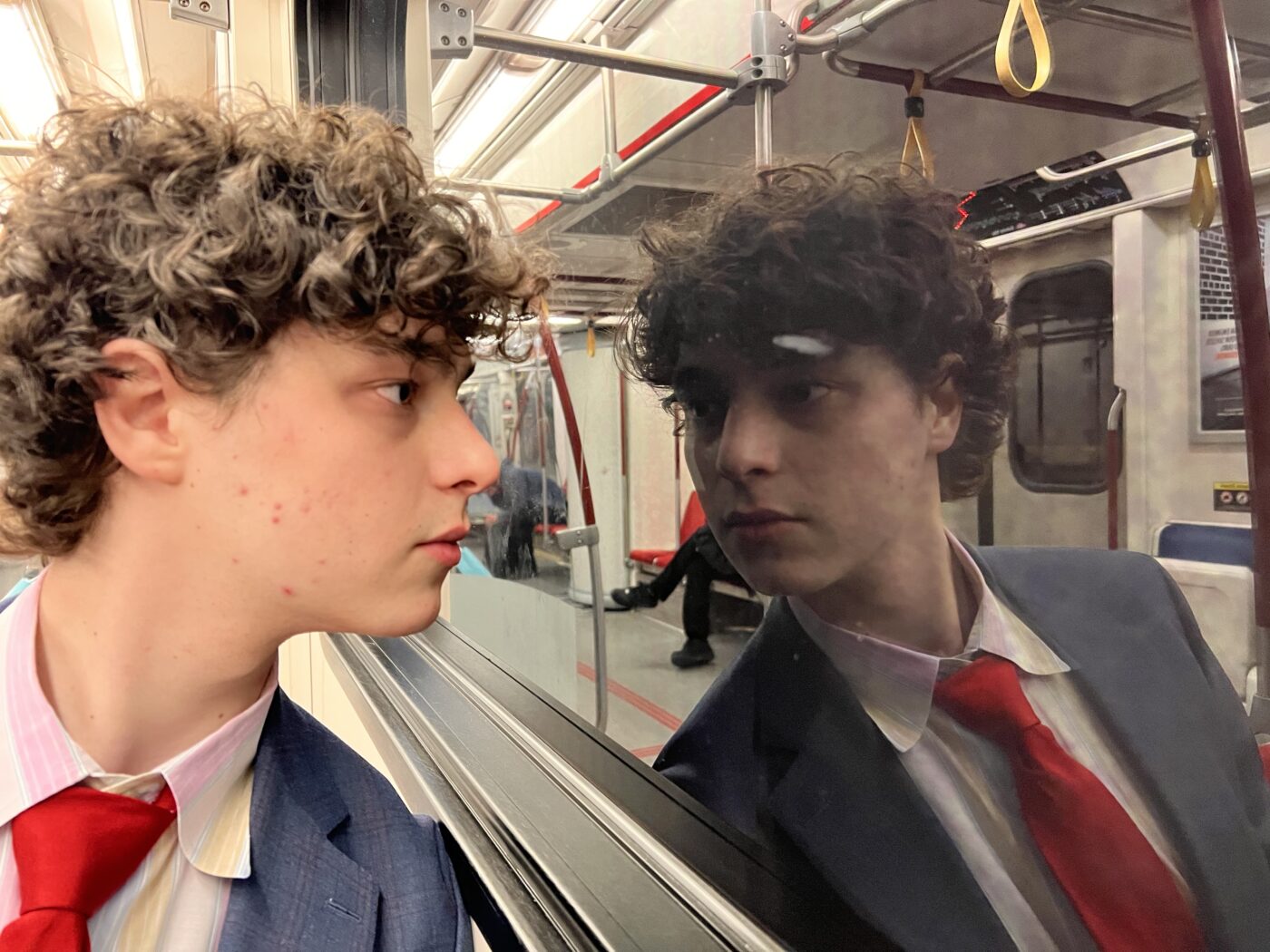

In 100 words or less, what is your vision for the future of Toronto?
On a serious note, my vision for Toronto is to make its political landscape a brighter place than when I entered, using humour to engage potential voters. I believe in a future for Toronto where its citizens, especially young people, are engaged in elections and local politics. According to Elections Canada, only about half of people ages 18-24 vote in federal elections, and presumably fewer in less-engaging municipal elections. I want to do my part in getting my generation engaged in the future of this city, in the only way I know how: silly shenanigans.
Why do you qualify to be Mayor of Toronto?
I'm over 18 years old, a tenant or landowner in the city of Toronto, I got 25 signatures of endorsement and paid the 200 dollar registration fee. I've also had this job all my life.
What is Toronto’s greatest strength right now?
I believe that Toronto's greatest tactical strength right now is its geese. When trained, this population will prove a useful weapon in our war against the city of Ottawa. Also, Drake's from here.
What is the most pressing issue in Toronto right now?
The most pressing issue in Toronto right now would probably be the most pressing issue in Toronto, an issue which is incredibly pressing.
Do you agree with the “Strong Mayor Powers” and would you use them?
I disagree with Strong Mayor Powers — I don't think they go far enough. As mayor, I will introduce legislation to give the Mayor of Toronto omnipotent powers, allowing them to become a god.
Rank the following issues from 1 to 14, with 1 being the most important and 14 being the least important.
Editor's note: No further rankings provided beyond these 13.
- Housing
- Homelessness
- Public transit
- Food insecurity
- Healthcare (Toronto Public Health)
- Policing and crime
- Employment
- Sidewalks and bike lanes
- Indigenous reconciliation
- Traffic and roads
- Parks and conservation
- Arts and culture
- Local businesses
Outline the three most important issues currently facing Toronto, and describe how you plan to address each of them as Toronto’s next mayor.
There are hundreds of important issues, it's hard to pick just three — but one important issue would be light pollution downtown. This city has gotten far too bright, and measures must be taken for the safety and comfort of its citizens. That's why, as mayor, I will reduce light pollution by turning off the stars. Additionally, there is the issue of weedsmell. For too long, cannabis stench has ruled our streets. We must take action against this heinous smell, and as mayor I will reduce weedsmell by creating a Weedsmell Task Force (WTF) to spray perfume on stoners, dispensaries and skunks. Finally, people are constantly complaining about the government's transparency, communication and the implementation of its policies. As mayor, I will avoid these issues in two ways. First, I will ban the word "Orwellian" so that people can't complain about the things that I want to do. Secondly, I will get rid of government miscommunication by banning spoken language and replacing it with wild gesticulations.
What guiding principles or philosophy do you try to live by?
I try to avoid the meaningless grind of suffering and existence by seizing the day with absurdity and surreality so as to distract myself and others from our inevitable deaths and the fleetingness of life. Essentially, I live by the philosophy of "commit to the bit."
Mitchell 'Mickey' Austin Toye
Toronto mayoral candidate Mitchell "Mickey" Austin Toye took the time to fill out our mayoral candidates survey. Here's what Toye had to say.
he/she/they
mickey4mayor@gmail.com
Faceawayfriday.wordpress.com
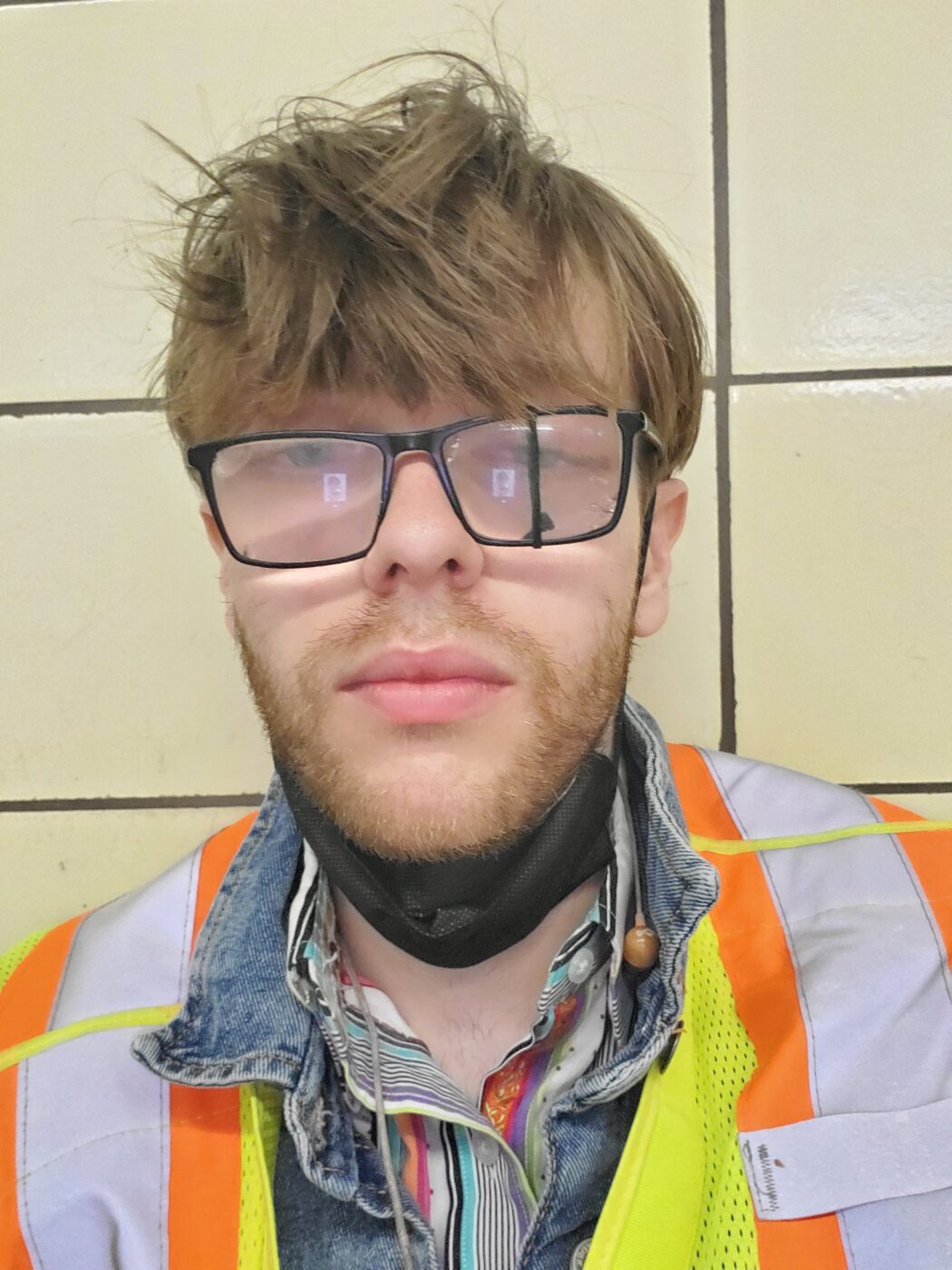

In 100 words or less, what is your vision for the future of Toronto?
SolarPunk Utopia. With more Fig Trees and Love! (Figuratively and liberally)
Why do you qualify to be Mayor of Toronto?
I have a comprehensive snd interdisciplinary understanding of civil engineering through my education and autodidaction through my life. But ultimately, because I want to make a Legally Binding Contract of Recallibility with every ward, organize and assist in building community defense and democracy squads, and aid in providing sovereignty for Indigenous People's since 80% of Crown Land is Effectively Not Legal. This is cemented in International Law through the United Nations Declarstions of the Rights of Indigenous Peoples. Also one of the few candidates speaking about all Rainwater being unsafe to drink as of August 2022. My Great-Grandmother died of a preventable leg infection. This City is holding together by the thread of hope wr have left to.improvise and collectivize so we can Survive. Solidarity.
What is Toronto’s greatest strength right now?
Solidarity, Unity, Bravery in the face of propagands, Democracy at work, home, and by understanding even unhoused residents can vote if residing in a common area for 5 weeks.
What is the most pressing issue in Toronto right now?
Poverty; the root of houselessness, the root of starvation and malnutrition, the root of stess, both when successful and when not. Poverty the weapon of British Imperial Tyranny. Crown Corporstions choke us to death and so many politicians are under the REITs (Real Estate Investment Trusts) thumhs. We need to understand equality in the face of 93,000 empty units, 9,000 on the streets, 10,000 in shelters and rent debt. Wages, record profits due to unpaid, stolen wages.
Do you agree with the “Strong Mayor Powers” and would you use them?
I would use them to enact the will to the people, tightly bounding, and releasing the bureaucratic powers of it to a Direct Democracy of the new Millennia. We have the Technology and Means, we Lack Political will and mechanisms to incentivize citizens to participate in and reform democracy.
Rank the following issues from 1 to 14, with 1 being the most important and 14 being the least important.
Editor's note: No rankings provided.
Outline the three most important issues currently facing Toronto, and describe how you plan to address each of them as Toronto’s next mayor.
I refuse to use your ranking system because I feel it offers a skewed and a non-nuanced forum thinking about the interconnected nature of the isues at hand. Just like the Partisan System, these are distractions from Us, the Workers, and the Queer, and the Disabled,, the NeuroDiverse, the Freaks. The Colonized The Worker Bees. We can get through this.
What guiding principles or philosophy do you try to live by?
Social Ecology. Library Economy. Indigenous Sovereignty. Humanism.
Reginald Tull
Toronto mayoral candidate Reginald Tull took the time to fill out our mayoral candidates survey. Here's what he had to say.
he/him
tullformayor@gmail.com
Reginaldtull.com
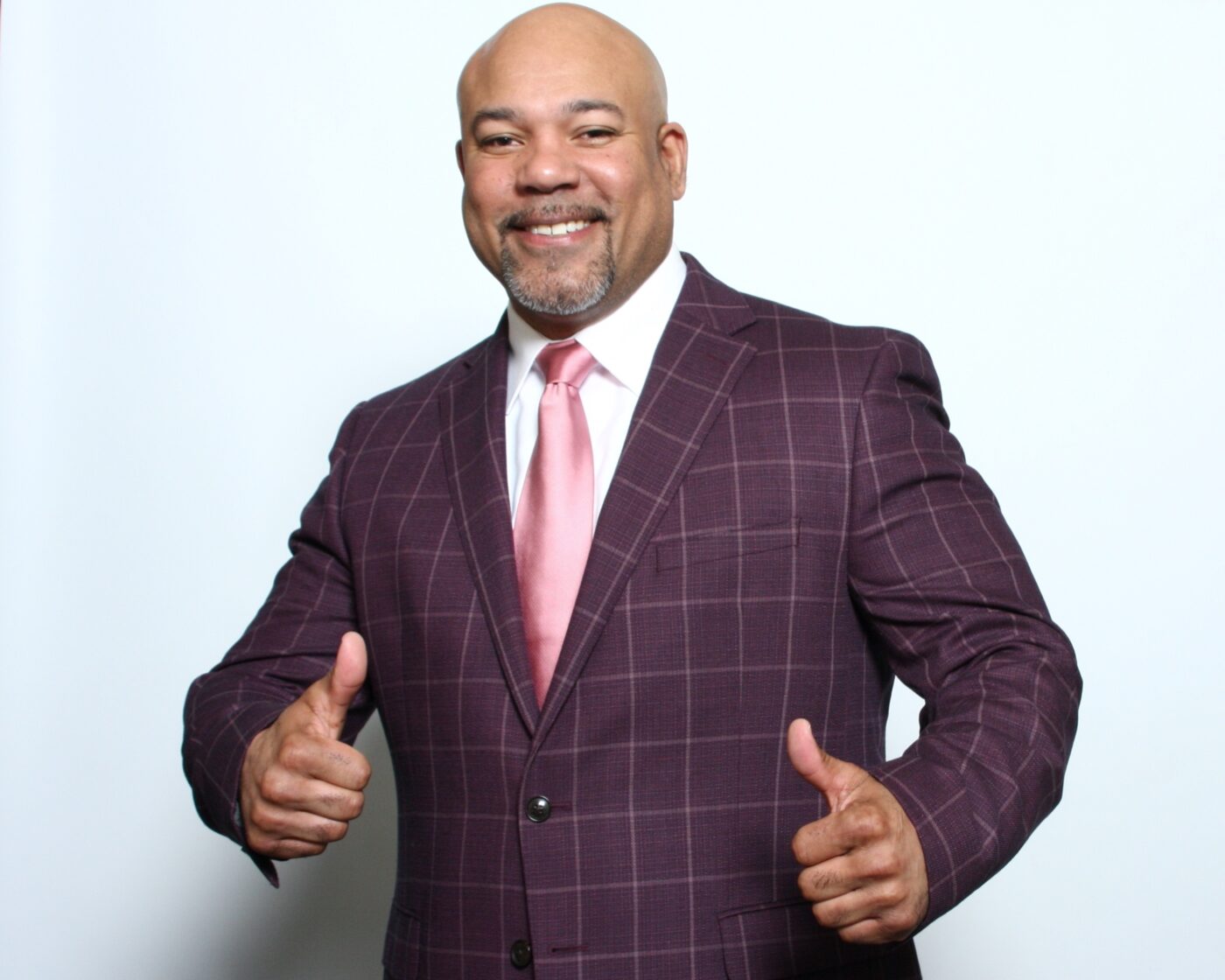

In 100 words or less, what is your vision for the future of Toronto?
My vision for Toronto is to create a safe and equal opportunity city for everyone.
Why do you qualify to be Mayor of Toronto?
I am the only mayoral candidate who will bring about real change in the city. City Hall does not need another recycled councillor/politician to follow form with the previous administration who has failed the public. I will provide affordable housing, drastically reduce crime and homelessness by investing in programs for our youth and mental health. I will reduce gridlock on the Gardiner and Lakeshore by creating a ferry service from Burlington to Toronto and back with stops in Etobicoke, Mississauga, and Oakville with a shuttle service taking passengers directly to Union Station. I will introduce a $0.75 toll for all vehicles entering Toronto from the 401 and 400 which will be invested into our infrastructure, and a $2.10 toll for vehicles entering from the Gardiner which will go towards TTC services and safety. I will invest in the small businesses, especially those that were effected by the Metrolinx LRT construction over the past twelve years. I will reevaluate the bicycle lanes throughout the city and make them safe for everyone (cyclists, pedestrians, vehicles, and animals). Downtown needs more parks and less condos, this will be a focus of mine as Mayor of Toronto. The question is why do I qualify to be Mayor of Toronto? The answer is because I represent the people.
What is Toronto’s greatest strength right now?
Toronto's greatest strength is that we are the largest city in the country and the most diverse city in the world.
What is the most pressing issue in Toronto right now?
The most pressing issue in Toronto is affordable living, homelessness, and public safety.
Do you agree with the “Strong Mayor Powers” and would you use them?
I didn't agree with them with the former administration because Tory was not going in the right direction with Toronto. I believe that I would not have to use them because the people of Toronto and the new councillors along with the ones who are already sitting in City Hall will support my plans and vision for Toronto because is the best thing for Torontonians.
Rank the following issues from 1 to 14, with 1 being the most important and 14 being the least important.
Editor's note: No further rankings provided beyond these 13.
- Housing
- Homelessness
- Policing and crime
- Local businesses
- Traffic and roads
- Public transit
- Food insecurity
- Employment
- Healthcare (Toronto Public Health)
- Parks and conservation
- Sidewalks and bike lanes
- Public libraries
- Arts and culture
Outline the three most important issues currently facing Toronto, and describe how you plan to address each of them as Toronto’s next mayor.
The three most important issues currently facing Toronto go hand in hand: affordable housing, homelessness, and crime. As Mayor of Toronto I will directly address these issues and make the city a safer place for everyone.
What guiding principles or philosophy do you try to live by?
I am for the people and I will represent the people at ALL times.
Jeffery Tunney
Toronto mayoral candidate Jeffery Tunney took the time to fill out our mayoral candidates survey. Here's what he had to say.
he/him
smallguycleaner@hotmail.com
Jefferytunney4mayor.ca
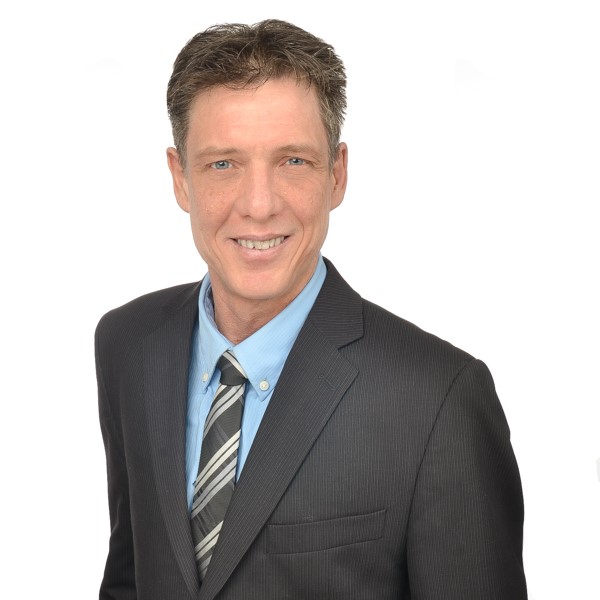

In 100 words or less, what is your vision for the future of Toronto?
To help with building jobs for the youth. The more busy the youth is can result in less drug addictions and the youth breaking the law. I want Toronto to be a city that is safe again with plenty of people not living in fear so that people can enjoy what Toronto has to offer. Less homeless on the streets in Toronto Ontario. Less drug overdoses that is happening in this city. To have Toronto recover completely by the losses of the pandemic. Small businesses have a much easier time making profits. To protect Toronto's diversity culture and having people sneaking into the city to find how so many different people of so many backgrounds get along.
Why do you qualify to be Mayor of Toronto?
I am tired of the same old, same old. I am an honest person and I don't make promises unless I can keep them and that rule should have many Toronto residents and citizens not be disappointed when taking office. I want to do my part by taking a bite out of the corruption in the city so that taxpayers get a chance to get a break paying out so much tax.
I am for the environment and I want more affordable housing as soon as possible for Toronto. I have no criminal convictions and could set an example as a leader about respecting the law. The utmost important issue is I know much of the causes what is causing a lot of our violent crimes in the city and so, I want to take action to prevent and greatly reduce the violent crimes that are happening in the city.
What is Toronto’s greatest strength right now?
Plenty of activities. Having a reliable TTC. Plenty of educational institutions.
What is the most pressing issue in Toronto right now?
Violence and housing
Do you agree with the “Strong Mayor Powers” and would you use them?
I don't know. If I find some people are taking advantage then I would have too. If everyone follows the rules and there are no issue than I do not need the Strong Mayor powers.
Rank the following issues from 1 to 14, with 1 being the most important and 14 being the least important.
- Policing and crime
- Housing
- Public Transit
- Healthcare (Toronto Public Health)
- Employment
- Food insecurity
- Homelessness
- Local businesses
- Parks and conservation
- Indigenous reconciliation
- Traffic and roads
- Public libraries
- Sidewalks and bike lanes
- Arts and culture
Outline the three most important issues currently facing Toronto, and describe how you plan to address each of them as Toronto’s next mayor.
1. Reducing violence. Taking action to reduce and prevent crimes.
2. Housing. Taking available land that is available now to build homes.
3. Profits for business. To increase traffic so that businesses can make better profits.
What guiding principles or philosophy do you try to live by?
1. Never make a promise that you can't keep.
2. If you can't follow the rules, don't expect others to.
Kiri Vadivelu
Toronto mayoral candidate Kiri Vadivelu took the time to fill out our mayoral candidates survey. Here's what he had to say.
he/him
socialistmayor@kiri-vadivelu.ca
Kiri-vadivelu.ca
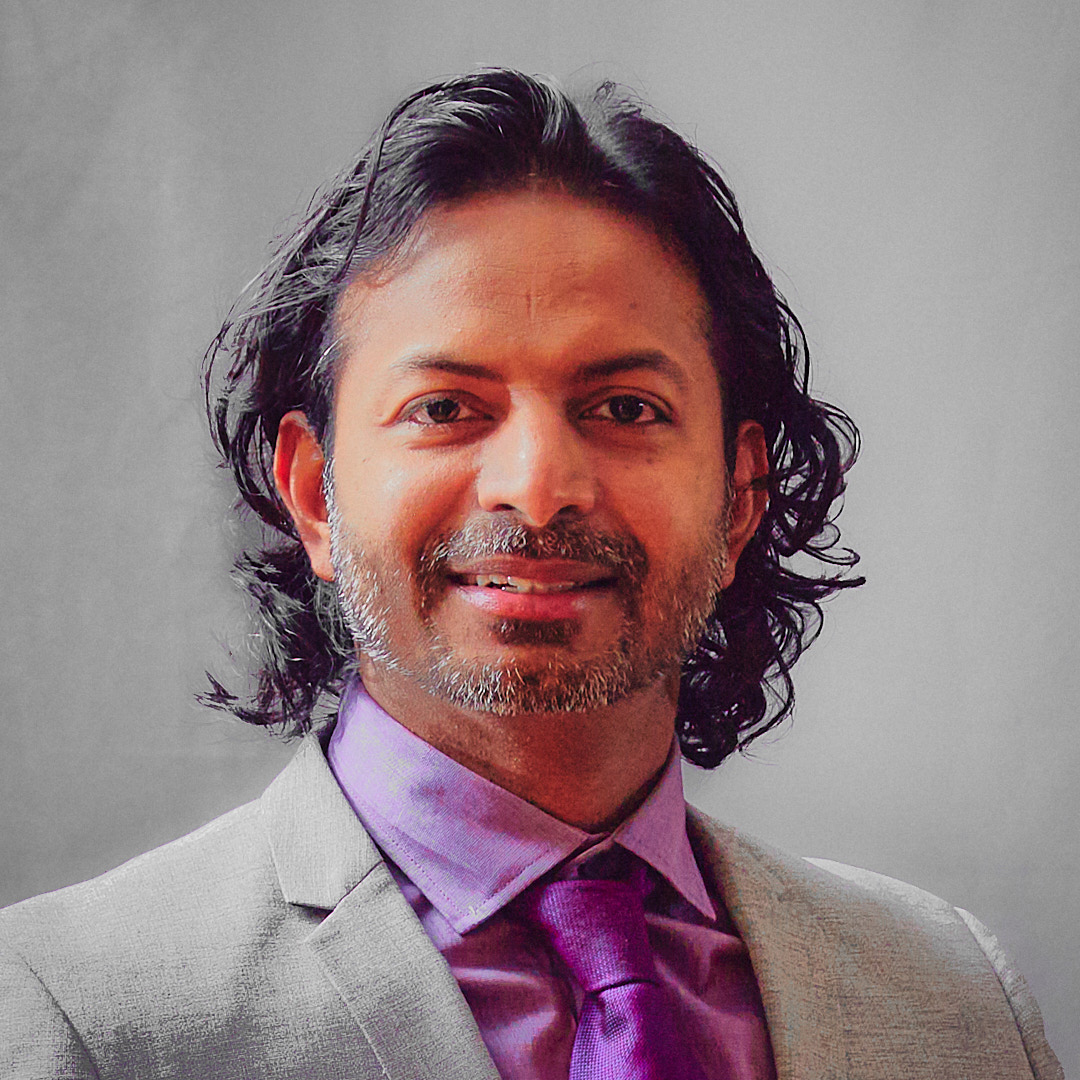

In 100 words or less, what is your vision for the future of Toronto?
"City of Toronto elegantly criminalized poverty through evicting houseless people while Ottawa struck peaceful protesters with iron fist for resisting vaccine mandates. COVID 2020 reminded that capitalism cannot be reformed, that is why I am running for mayor to change the system.
Media hype about crime but fail to report the fact that last year 187 Torontonians were killed due to lack of care. After all, most corporate media outlets are owned by few individuals, undemocratically. In such social condition where people die in our streets without a home, non-partisan means pro-establishment."
Why do you qualify to be Mayor of Toronto?
I am a social justice activist and a member of the Municipal Socialist Alliance which ran 10 candidates across southern Ontario last October, receiving about 15,000 votes. I was the MSA candidate in Scarborough Centre Ward 21 gaining 1,800 votes. I am the first Tamil-Canadian to seek the mayor’s office in Toronto.
What is Toronto’s greatest strength right now?
I am a founding member of the Scarborough Tenants’ Union, a leading voice of Toronto ACORN, and a committed member of Justice for Workers. I was a shop steward in the United Steelworkers Union where I fought for better working conditions, and was the recipient of a 2019 union leadership award.
What is the most pressing issue in Toronto right now?
Toronto is in crisis, the product of a failed capitalist system. Only socialist measures offer solutions. The MSA and I call for immediate mass social housing construction, expropriation of giant landlords, and free public transit . We seek to repair our schools, and cut police budget by at least 50%.
Do you agree with the “Strong Mayor Powers” and would you use them?
We demand a climate justice agenda, replacement of the "strong mayor" powers with a grassroots participatory budget process, and steep taxation of the properties of big business and the rich.
Rank the following issues from 1 to 14, with 1 being the most important and 14 being the least important.
Editor's note: No further rankings provided beyond these 13.
- Homelessness
- Housing
- Public Transit
- Healthcare (Toronto Public Health)
- Food insecurity
- Public libraries
- Sidewalks and bike lanes
- Indigenous reconciliation
- Arts and culture
- Policing and crime
- Parks and conservation
- Policing and crime [Editor's note: Vadivelu selected policing and crime for both #10 and #12]
- Local businesses
- Traffic and roads
Outline the three most important issues currently facing Toronto, and describe how you plan to address each of them as Toronto’s next mayor.
Housing, Transit and Climate
What guiding principles or philosophy do you try to live by?
Choose socialism over barbarism for city of Toronto.
See other candidate profiles,or go back to the election coverage menu.
The Green Line and The Trillium launch Toronto election partnership

THE GREEN LINE
Hyperlocal, independent media outlet that investigates the way we live to help young and other underserved Torontonians survive and thrive in a rapidly changing city.

THE TRILLIUM
Trusted source for insightful, in-depth coverage of politics and policy-making in Ontario. The Trillium is operated by Village Media, which runs nearly two dozen local news websites across Ontario
June 12, 2023
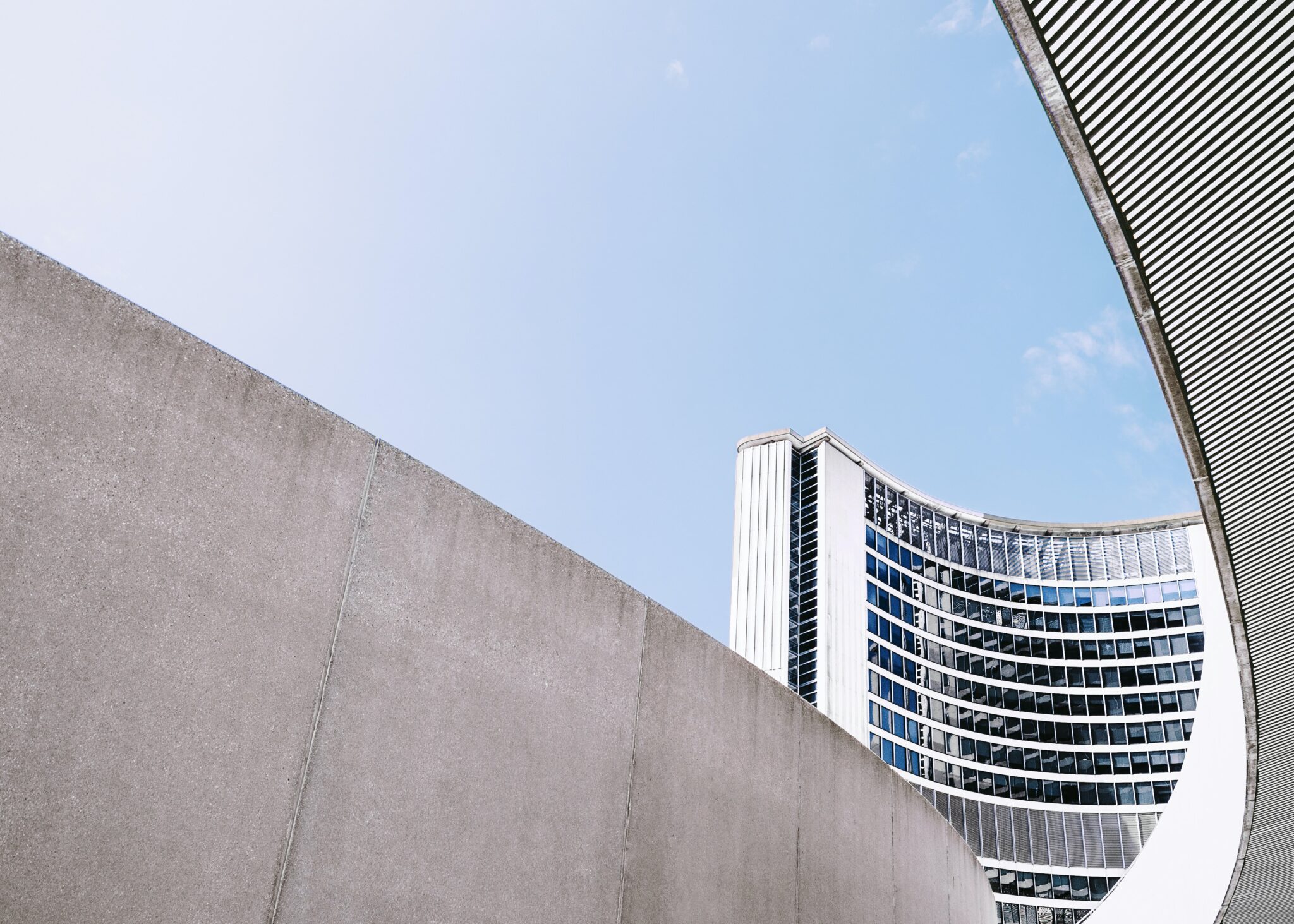
Concrete walls near the curved building of Toronto City Hall.

The Green Line and The Trillium are pleased to announce our Toronto election project, a journalism partnership for readers who care deeply about Toronto and the people, policies, and politics at play.
We’re pairing The Green Line’s unique community-driven, solutions-oriented journalism with The Trillium’s signature insider coverage of Ontario politics and policy to dig deep into the city’s problems and connect you with the plans the Toronto mayoral candidates are proposing to fix them.
The Green Line is a hyperlocal independent media outlet that investigates the way we live to help young and other underserved Torontonians survive and thrive in a rapidly changing city. Since our launch in April 2022, we've been making waves in Toronto for our unique Action Journey model, which encourages Torontonians to take action on issues they care about and problems in their neighbourhoods. We also have a community show in partnership with CityNews Toronto.
The Trillium is your trusted source for insightful, in-depth coverage of politics and policy-making in Ontario.
Our full-time team of experienced, dedicated reporters covers the latest developments from Queen’s Park, investigating the government and the broader public sector, and issues in health care, education, energy and infrastructure.
The Trillium is operated by Village Media. Born digital, Village Media operates nearly two dozen local news websites across Ontario, including GuelphToday, SooToday, BarrieToday, Sudbury.com and BurlingtonToday. Our award-winning reporters and editors are committed to strengthening the communities they serve by providing free, reliable, up-to-the-minute coverage of the stories that matter most: the ones closest to home.
Toronto needs 285,000 new homes. Can any mayoral candidates build them?
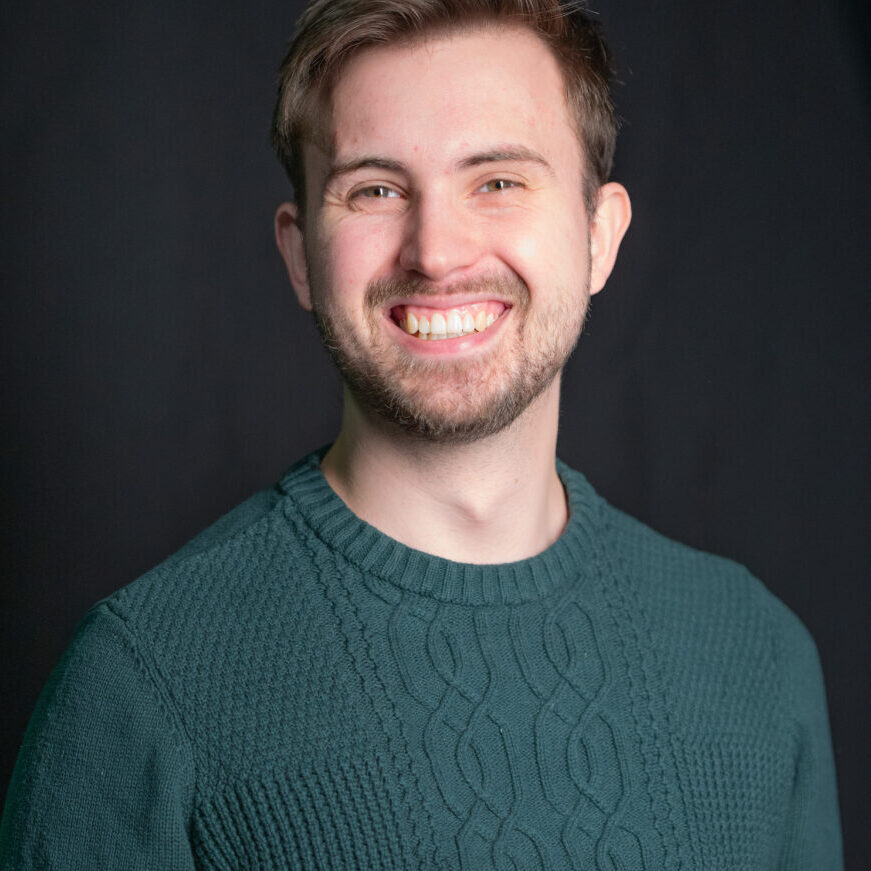
ANTHONY MILTON
Born and raised in Toronto, now based at College Street and Dovercourt Road. Master of Journalism grad from TMU. Writes about politics and culture in the city.
June 20, 2023
This story is part of a partnership between The Green Line and The Trillium for readers who care deeply about Toronto and the people, policies, and politics at play. We’re pairing The Green Line’s unique community-driven, solutions-oriented journalism with The Trillium’s signature insider coverage of Ontario politics and policy to dig deep into the city’s problems and connect you with the plans the Toronto mayoral candidates are proposing to fix them.
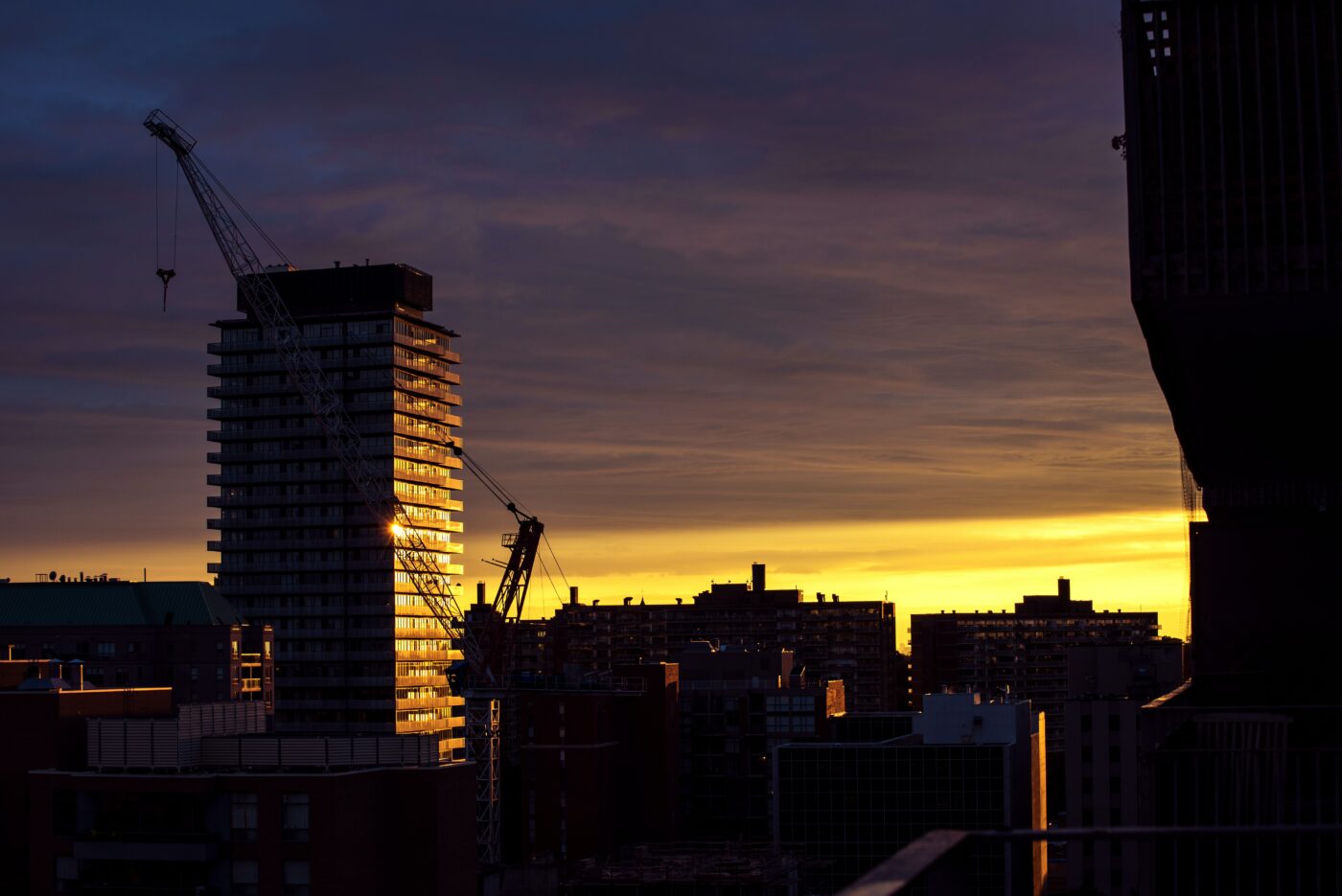
Sunset above high-rise buildings in Toronto.

As part of our ongoing coverage of the 2023 Toronto mayoral by-election, The Green Line asked both our audience and all candidates to complete a survey, which included a question where they had to rank the policy issues they’d prioritize for the city today.
It was a landslide: Community members and candidates alike chose housing as their number-one concern by a large margin. So by popular demand, here’s a deep dive into Toronto’s housing crisis, and how it’s shaping the race for mayor.
Toronto is in a housing crisis, but a recent City report suggests it’s really two housing crises: one where workers earning moderate incomes struggle to find affordable rentals, and another where low-income earners struggle to access any housing at all and find themselves unhoused. Both problems are widespread. City staff estimate that one in three residents are struggling with affordability, while 135,000 are crammed into homes too small for their needs and over 10,000 were unhoused in the latter months of 2022.
Supply is a big part of the problem. Citing a report from the Building Industry and Land Development Association (BILD), the City estimates that 300,000 new rental homes in the GTA will be needed by 2031 to make up for our existing shortage and to respond to future needs. Toronto’s population could grow by another 253,000 people in the same period, all of whom will need somewhere to live.
In May 2023, under pressure from the Ontario government, the City set a target of building 285,000 new homes by 2031. That’s a big number: It would mean increasing Toronto’s housing supply by almost a quarter in just 10 years. Or, as the City report helpfully points out, it’s the equivalent of adding a whole North York worth of homes — and doing so twice as fast as we’ve already been building.
This is the challenge facing the next Mayor of Toronto. Unsurprisingly, each of the leading mayoral candidates has said something about housing. But there are big differences in how each of them plans to tackle the problem.
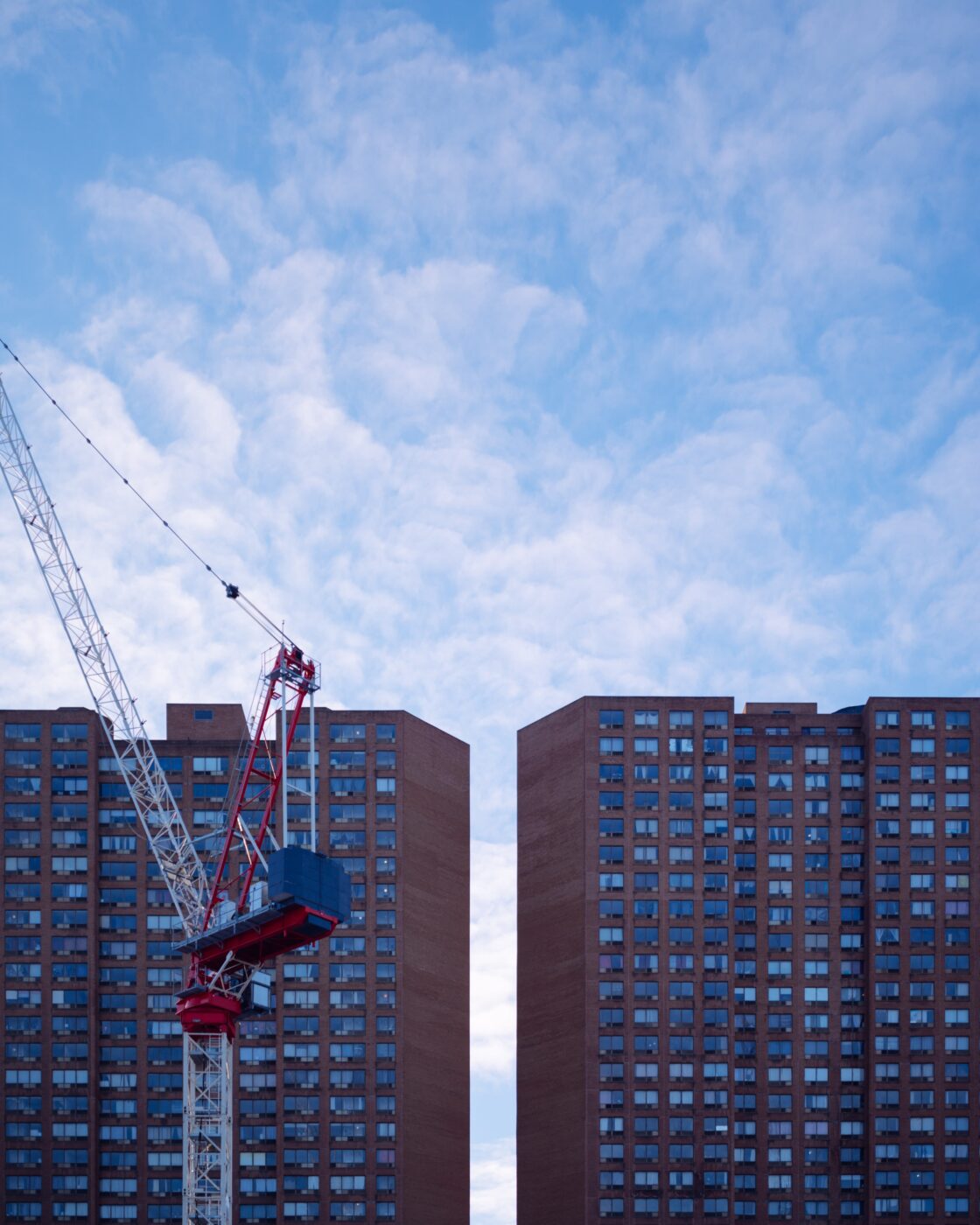
Construction crane in front of two apartment towers in Toronto's west end.

The first big question is: Who should build the housing?
For the past few decades, that job has been left to the private sector: individuals and companies that build houses, apartments and condos so they can make a profit. This has resulted in plenty of homes being built in Toronto (just look at all those cranes!), but it’s also led to a rise in rents and house prices, as developers seek the highest profit margins. A recent Toronto Metropolitan University study found that between 2006 and 2016, 14 times as many condo units were built than purpose-built rentals, and the number of units renting for over $1,500 per month grew by four times.
Now, several candidates are proposing that the City build housing itself. The City owns a lot of land — 25 million square feet — so it could in theory build homes there, and set more affordable rents. Notably, the City has been trying to do this; it launched the Housing Now initiative in 2019, which promised to build over 10,000 new affordable housing units on public land. Yet three years later, none have been started.
Several candidates are eager to change this. “Currently, most development on public lands is outsourced to private developers that build housing with high profit margins,” wrote Josh Matlow in response to The Green Line’s survey. By establishing a City agency to build housing instead, he says, “We will be able to remove developer margins and build housing at cost,” leading to the construction of 8,250 rent-controlled apartments and 6,750 affordable apartments — 750 of which would be for people on “very low or fixed incomes.”
Olivia Chow is promising even more, saying the City could build 25,000 rent-controlled homes over eight years, with a minimum of 7,500 affordable units. Mitzie Hunter has also committed to building on City land, promising 22,700 units with a mix of rent-controlled market rate, affordable and rent-to-own apartments.
There was a time when such public-building was the norm. From the 1960s to the 1990s, the federal government funded many new housing projects, leading to the construction of most of Toronto’s existing purpose-built rental apartments. But in the 1990s, this responsibility was offloaded to the City, and no public affordable housing has been built since.
Some candidates, however, say rather than bringing government back into the game, we should get them out of the way. The City plays a major role in vetting and approving new housing projects, and many get stuck in that process: 101,000 purpose-built rental homes are currently under City review, and won’t get built until staff give the go-ahead.
Brad Bradford has promised to streamline those processes, allowing the private sector to build more homes, sooner. In response to The Green Line’s survey, he promised to “build a culture of saying ‘yes’ so that more homes can get built faster.” Similarly, Mark Saunders has committed to providing City land to builders who promise to construct affordable housing, and cut the time it takes to approve building applications to just one year.
Notably, Chloe Brown’s campaign takes this procedural approach to the extreme, proposing a full re-organization of the City Hall bureaucracy, complete with a new $2.3-billion agency devoted to shelter and housing.
Changes to zoning are another way to open up more housing stock: The City has a variety of rules about what kind of buildings can be built where. Hunter’s housing policy promises low-interest loans to builders of multiplexes (i.e. low-rise buildings with a handful of units), while Bradford has promised to “simplify” zoning bylaws to allow more mid-rise apartments on major streets. Beyond the public and private sectors, there are also non-profits, such as land trusts, which seek to provide housing at-cost. Several candidates, including Hunter, Bradford, Brown, Chow and Bailão have pledged to support these organizations in their efforts to get housing built.
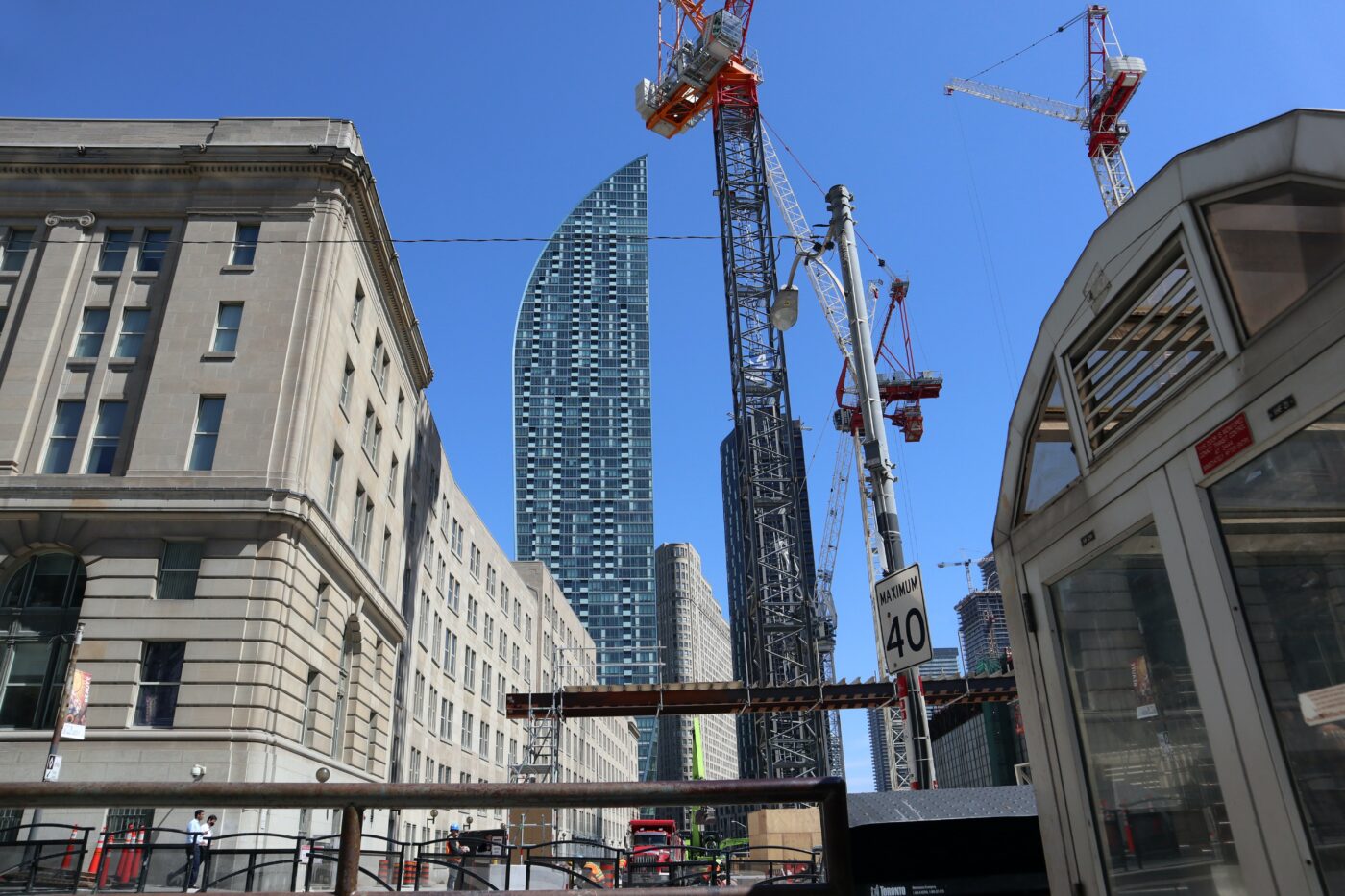
Construction underway at Front and Bay Streets in downtown Toronto.

The second big question with housing is: How should we pay for it?
The City is in a huge budget hole, with $1.56 billion worth of programs and services it simply can’t fund. This has led some candidates to pitch themselves as the best at asking the provincial and federal governments for money. Bailão in particular has campaigned as an experienced negotiator who can work with other levels of government to solve the City’s budget woes.
The City can generate its own revenue, mainly through property taxes; this impacts homeowners directly, however, and has often been a touchy subject in municipal politics. But Chow is going there by proposing an unspecified increase in property taxes to fund her housing pledges. The exact amount, she says, will be decided after she requests assistance from the provincial and federal governments.
There’s also the option of lowering taxes, in the hopes of helping developers build more housing, and incentivizing them to make it affordable. Saunders, in particular, has promised to cut taxes for private-sector builders of affordable housing, while Anthony Furey has promised to phase out the City’s land transfer tax.
Most candidates have at least some mix of these strategies, but are fighting hard to differentiate themselves by doubling down on certain aspects. Bailão emphasizes her negotiation skills. Chow and Matlow are going hard on public housing. Bradford is cutting red tape for the private sector. Hunter is playing up her experience as a provincial member of parliament, brandishing her detailed platform at every opportunity, and Saunders is promising leadership experience, broadly-defined.
Each of these distinctions are ideological as much as they are practical, especially when it comes to beliefs about the government’s place in the market. Public housing advocates like Chow and Matlow cast housing as a social good to be provided by the state, while conservative-leaning Bradford favours the free market unencumbered by City bureaucracy. In the centre are politicians like Bailão and Hunter who promise good negotiation and detailed policy pledges, respectively.
But is any of it enough? Recall that Toronto needs 285,000 homes by 2031. Of the leading candidates, only Bailão has promised to hit that number, but she does not provide a specific plan to do so. And while Hunter, Chow and Matlow have promised to build housing on public land, the most ambitious of them — Chow — would only build 25,000; that’s just over 10 per cent of Toronto’s target.
Of course, the City would not be responsible for building every home needed to reach its target. But the gap between promises and reality speaks to the peculiar state of our modern City government. Although it may represent the city in name, its tools are limited, and the local government has neither the ability nor the jurisdiction to solve all of its problems alone.
What the Ford government is doing for, and to, Toronto on housing
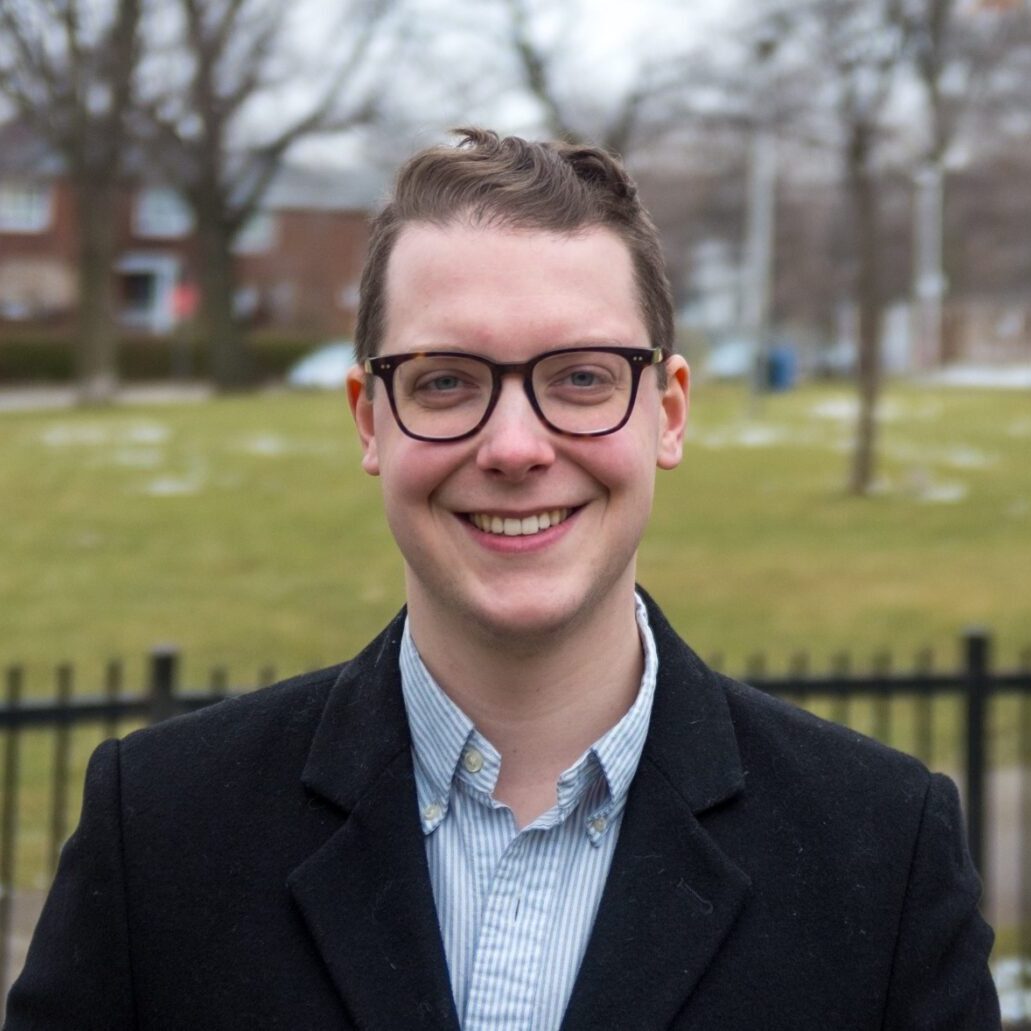
JACK HAUEN FOR THE TRILLIUM
Displaced Vancouverite who's become strangely knowledgeable about the politics and policy of the Centre of the Universe. Covering Queen’s Park since 2019. Especially enjoys using freedom of information requests to cause problems.
June 20, 2023
This story is part of a partnership between The Green Line and The Trillium for readers who care deeply about Toronto and the people, policies, and politics at play. We’re pairing The Green Line’s unique community-driven, solutions-oriented journalism with The Trillium’s signature insider coverage of Ontario politics and policy to dig deep into the city’s problems and connect you with the plans the Toronto mayoral candidates are proposing to fix them. This article was originally published on TheTrillium.ca
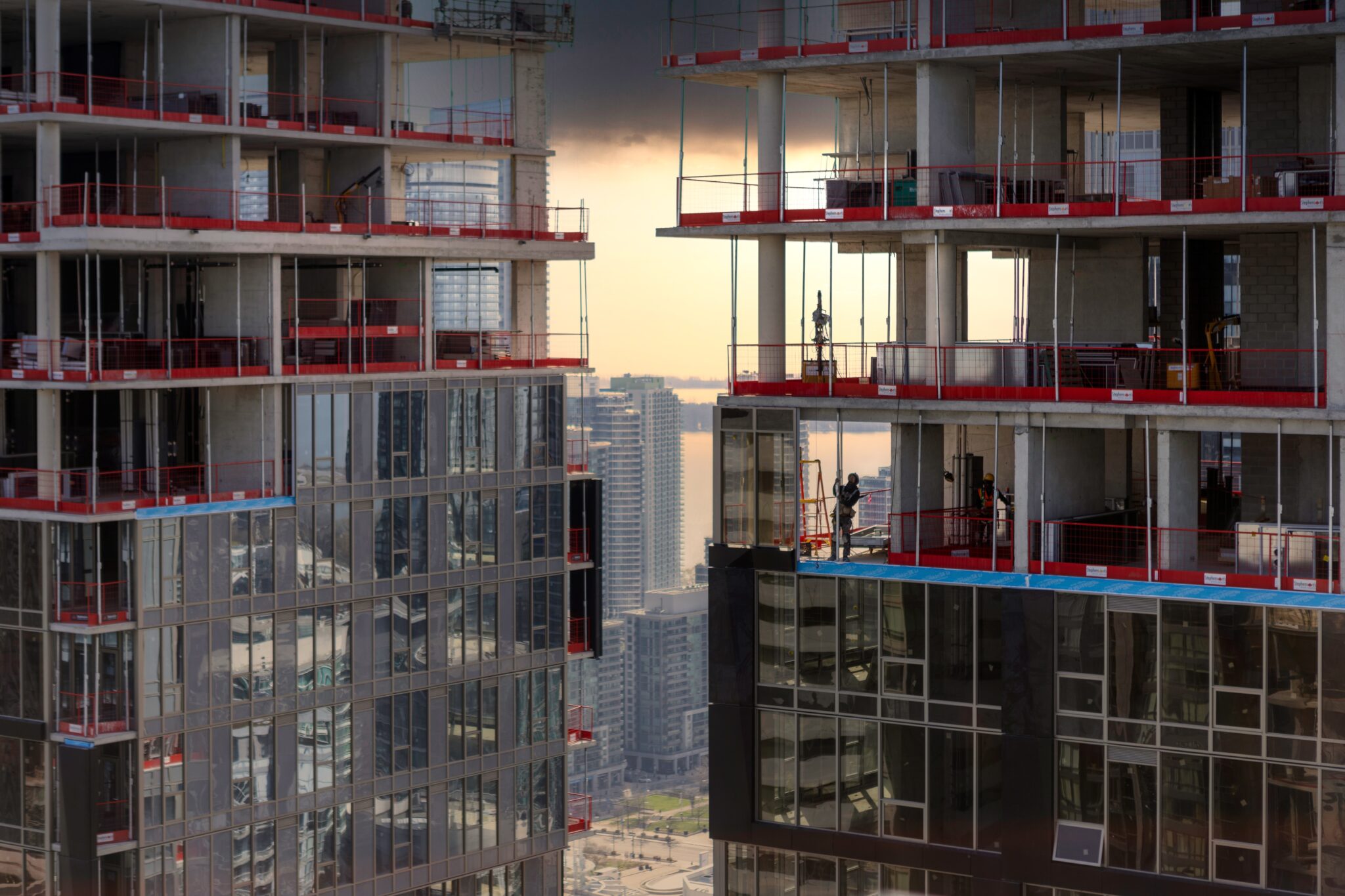
Apartment buildings under construction in Toronto.

When Toronto voters make their choice this month, the biggest factor for many will be who can best help them afford a roof over their head.
Whoever wins will have to deal with the provincial government’s activity on the file, which has been contentious for cities. Toronto is no exception.
The issue is constantly top-of-mind for the Tories, who aim to transform the province into a manufacturing powerhouse and need hundreds of thousands of immigrants to do so, and to fill gaping labour shortages in most sectors of the economy. If they have nowhere to live, the PC economic plan crumbles.
Premier Doug Ford’s strategy so far is build, build, build. If you flood the market with enough houses, eventually they’ll become affordable, the thinking goes.
“We need to do everything we can to reduce delays and help ensure that new homes get built as quickly as possible,” Municipal Affairs and Housing Minister Steve Clark said in the legislature last year.
It’s an approach critics consider code for single-family homes and sprawl. “Everyone’s dream is to have a little white picket fence,” Ford has said.
While most of the attention on the government’s housing plan has focused on the controversial decision to open up the Greenbelt and expand municipalities’ boundaries into prime farmland, Toronto’s geography doesn’t allow it to sprawl outwards. Here, the government is pushing in many ways for greater density and more affordable homes, particularly in Toronto.
The provincial housing target is 1.5 million new homes by 2031, with 285,000, or 19 per cent of them, in Toronto.
It’s intensifying around bus and rail hubs with “transit-oriented communities” (TOCs) and ministerial zoning orders (MZOs), removing local height restrictions, axing development charges for affordable housing, and upping the rhetoric against NIMBYs (not-in-my-backyard-ers), following the federal Conservatives’ lead.
TOCs, dense communities build on top of and around transit stations, are beloved by progressive urbanist types, who see car-less mixed-use neighbourhoods as the future. They’re despised by some planners who have seen their plans go out the window, and, well, NIMBYs.
In Toronto alone, there are TOCs planned in Corktown, the East Harbour, Exhibition Place, Gerrard and Carlaw, King and Bathurst, and Queen and Spadina.
But the regulations are vague, and some experts would like to see more detail. Mike Moffatt, the senior director of the Smart Prosperity Institute and Ontario Twitter’s unofficial housing czar, noted on The Trill podcast that in New Zealand allows the development of six-storey apartments around transit stations.
“If we had something like that in Ontario, that could be quite transformative,” he said.
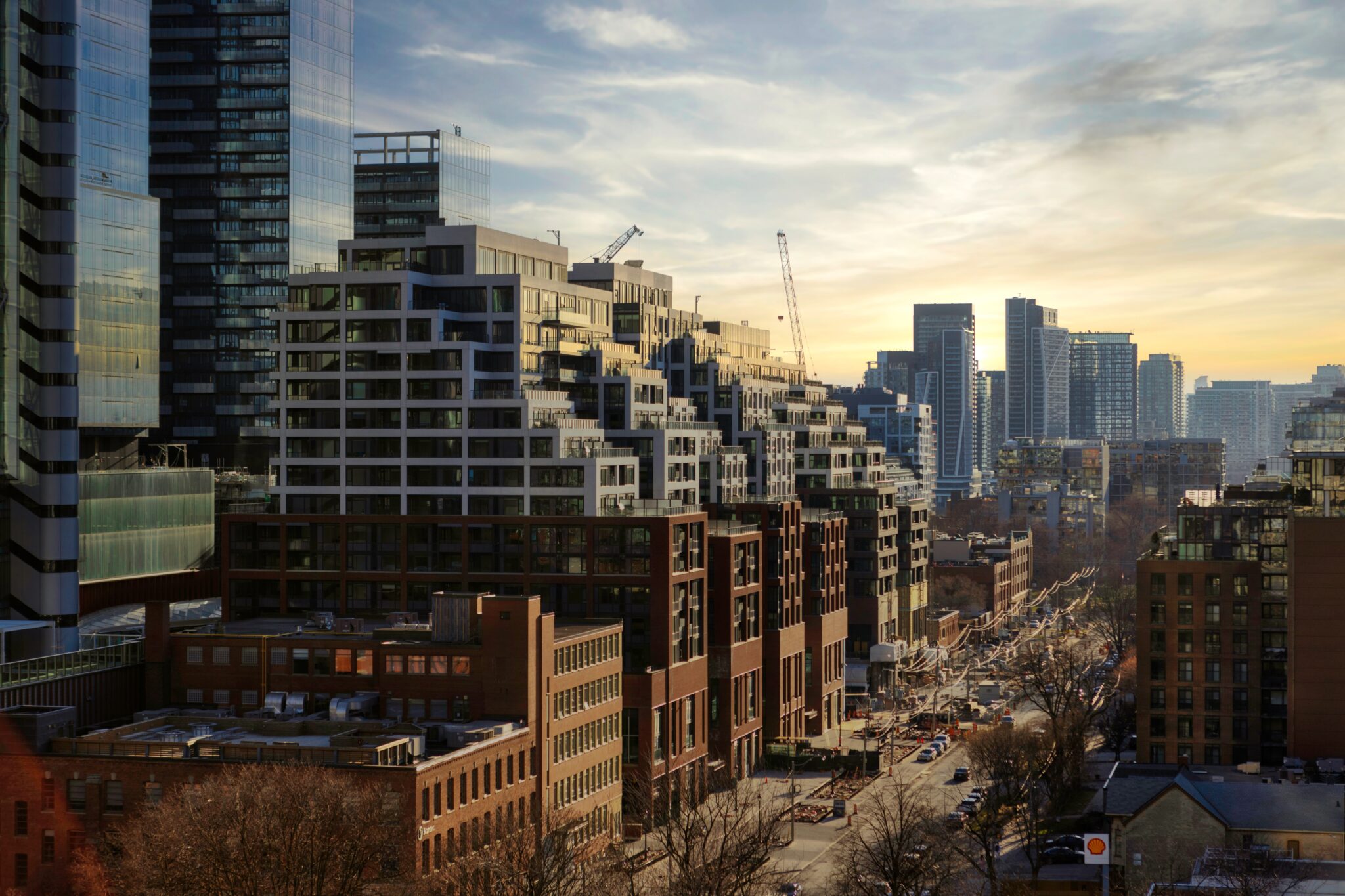
Housing is a top issue in Toronto's mayoral by-election.

MZOs are another controversial ace up the government’s sleeve. They let the province override local governments and bypass consultations to build stuff. Many of the orders have benefited developers with PC ties.
Ford has deployed dozens in the city of Toronto alone, for things like building modular non-market housing, expanding Sunnybrook Health Sciences Center’s COVID lab, and cutting regulations for the CafeTO program.
Strong mayor powers are also ostensibly to allow mayors to get housing through NIMBY councils, though Ford initially said, “I don’t remember about affordable housing” when asked what the powers are for.
The mayoral candidates have used the powers as a wedge issue, pledging to either uphold democracy by rejecting them (Olivia Chow, Josh Matlow and Mitzie Hunter) or plow through bureaucracy to deliver results (Mark Saunders, Brad Bradford). Ana Bailão has said she wouldn’t overrule council’s wishes, but may use the powers to set the budget and appoint senior staff members.
Many civic leaders have not been happy with much of the government’s housing plan, specifically the parts that reduce development charges on affordable housing. The PCs want to make it more attractive for builders to take on those projects, but municipalities say they rely on the fees to pay for the infrastructure those buildings demand.
Some municipalities have responded by threatening increases to regular development charges to offset the bill’s impact.
Clark has promised to audit six major cities affected by the bill to see how it will affect their finances. He has pledged to make them “whole” if they’ll face undue stress, though he’s avoided questions on what exactly that would look like — and how much he’s prepared to pay.
Some Indigenous groups have also pushed back. The Chiefs of Ontario want the whole thing repealed, saying they weren’t consulted at all, despite efforts to get the government to talk to them. Clark admitted there was no Indigenous consultation in late November last year.
The Ford government’s housing strategy is controversial. And it’s objectively bolder than anything seen at a provincial level in many years.
But is it enough?
Well, no. Housing Minister Steve Clark himself has said there’s more work to be done and promised to use “all measures possible” to get to 1.5 million homes.
The latest legislation, Bill 97, was his third major housing bill in 13 months. On The Trill, Smart Prosperity researcher and former London deputy mayor Jesse Helmer said the “drip, drip, drip” of announcements might be hurting the PCs politically.
“I do wonder if the government’s causing some problems when it comes to this constant tinkering of the regulatory environment, and maybe we would be better off if we just ripped the band-aid off, made all the changes we needed at once, and went from there,” Moffatt, his colleague, added.
Clark would have a strong ally in a Mayor Mark Saunders or Brad Bradford, and to some extent Ana Bailão, who have all promised to streamline regulations for developers to get more housing built.
If Olivia Chow, Josh Matlow or Mitzie Hunter take the helm, it remains to be seen whether the Ford government would encourage their plans to get the government back into the building game.
Almost 1 in 5 people in Toronto are going hungry. Can the next mayor put food on the table?

ANTHONY MILTON
Born and raised in Toronto, now based at College Street and Dovercourt Road. Master of Journalism grad from TMU. Writes about politics and culture in the city.
June 21, 2023
This story is part of a partnership between The Green Line and The Trillium for readers who care deeply about Toronto and the people, policies, and politics at play. We’re pairing The Green Line’s unique community-driven, solutions-oriented journalism with The Trillium’s signature insider coverage of Ontario politics and policy to dig deep into the city’s problems and connect you with the plans the Toronto mayoral candidates are proposing to fix them.
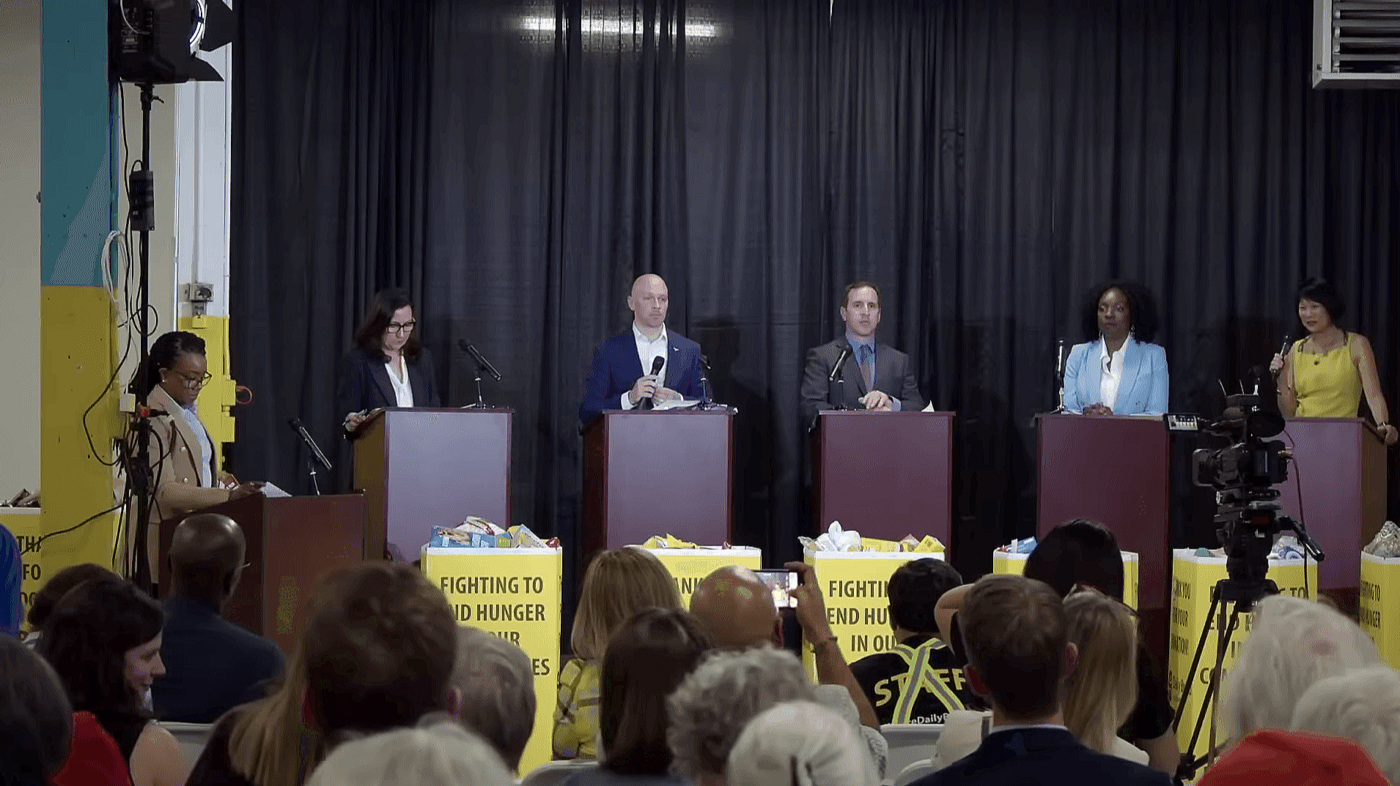
Toronto Mayoral Debate at Daily Bread Food Bank on May 15, 2023.

As part of our ongoing coverage of the 2023 Toronto mayoral by-election, The Green Line asked both our audience and all candidates to complete a survey, which included a question where they had to rank the policy issues they’d prioritize for the city today.
For our audience, the issues of food insecurity and homelessness tied for second place. So, in this explainer, we’ll look at what the mayoral candidates have said they’ll do about food insecurity, and unpack what a good meal has to do with housing and taxes.
More and more Torontonians are finding it harder to put food on the table. According to the City of Toronto, almost one in five people in Toronto were living with food insecurity households as of 2021. What’s more, the City reports that affording food can be especially difficult for marginalized groups, such as renters and people living on Ontario Disability Support Program (ODSP) payments. This all falls rather short of the promise the City made in its 2001 Toronto Food Charter, which said “Every Toronto resident should have access to an adequate supply of nutritious, affordable and culturally-appropriate food.” Twenty-two years later, we’re far from that goal, and the problem is only getting worse: The Daily Bread reported that from April 2021 to March 2022, visits to Toronto food banks hit record highs.
So what do the candidates for mayor have to say about it? Surprisingly, not much. Of the 31 mayoral candidates who completed The Green Line’s survey, only a few said anything about food. Candidate Cory Deville proposed a Food Accessibility Rebate, a monthly payment from the government to cover food costs. Another, Bahira Abdulsalam, said she would “stand up” for those living with food insecurity. Others mentioned it in passing: Isabella Gamk included food as just one of the costs of living that provincial ODSP payments fail to cover, while Sarah Climenhaga promised to expand community food gardens and Erwin E. Sniedzins pledged “hydroponic food sources” in all new high-rises. Josh Matlow, one of the leading candidates, mentioned food but did so to pivot to speaking about housing.
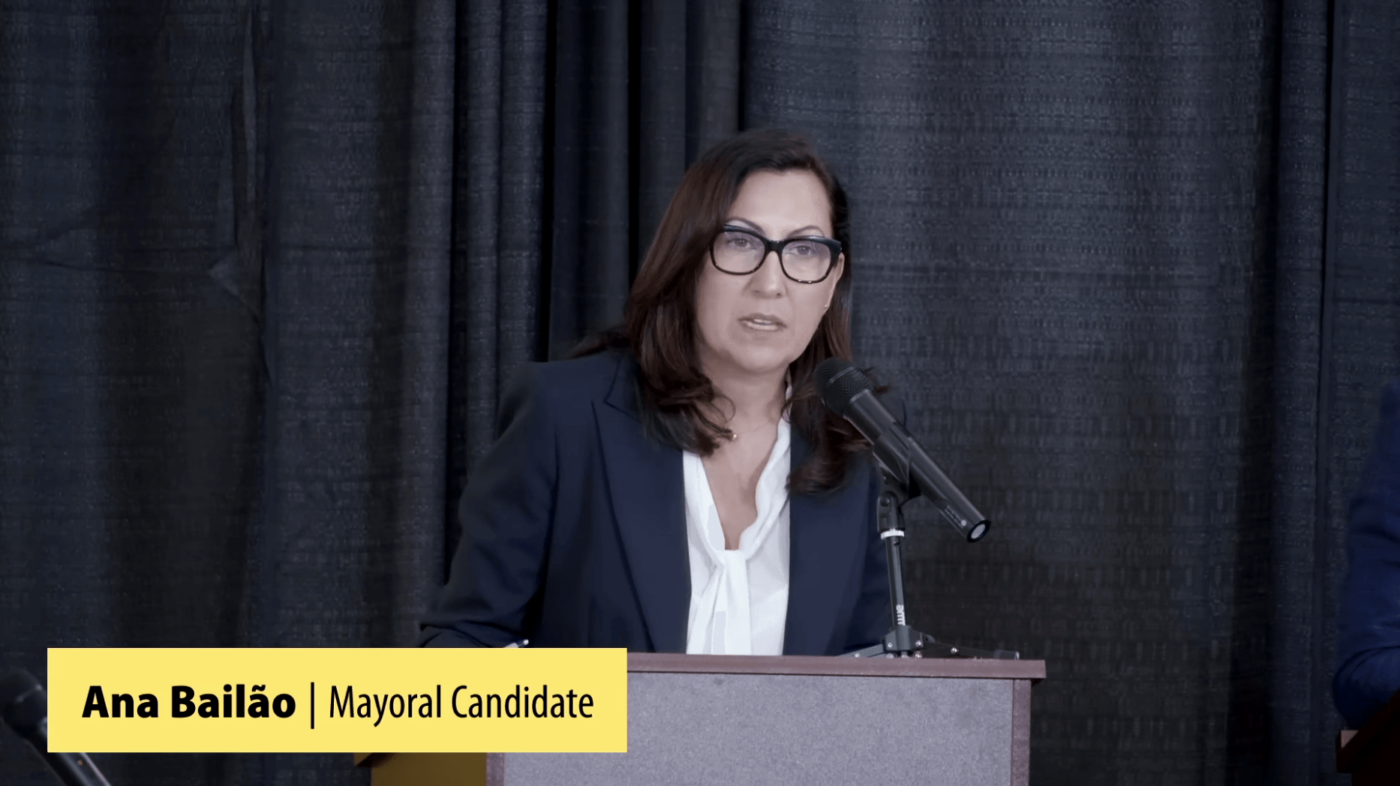
Ana Bailão speaking during the Toronto Mayoral Debate at Daily Bread Food Bank on May 15, 2023.

Only two frontrunners, Mitzie Hunter and Ana Bailão, put forward specific policies to address food insecurity in their publicly available platforms; both are quite detailed. Hunter promised to double the funding for food-oriented Community Service Partnerships (CSP), which are City grants to nonprofits that deliver services. Her plan also proposed improving coordination across City departments to better provide food, updating the Food Charter (she didn’t mention specifically how) and building grocery store spaces in all new City-built housing to break up food deserts (i.e. areas where places to buy fresh food are few and far between).
For her part, Bailão pledged more cash for the CSP program, as well as dedicated funding for food security and sustainability programs. She promised to help out food banks by letting them use vacant City facilities for cheap, till gardens in vacant green spaces like hydro corridors, connect grocery stores with community food organizations to reduce food waste and launch an annual City-run food drive.
The remaining candidates voiced their perspectives on May 25, 2023, when the Daily Bread Food Bank hosted Toronto’s first televised mayoral debate of the by-election, and directly asked candidates about food insecurity. Six of the leading candidates were invited, though Mark Saunders declined the invitation, leaving the stage to Bailão, Hunter, Brad Bradford, Josh Matlow and Olivia Chow.
But how does a candidate discuss their food insecurity policies when they don’t have any (at least not publicly)? They simply use it as a way to talk about something else, like housing.
Indeed, every single candidate on stage — Bailão and Hunter included — used food insecurity as a segue into their housing policies (read The Green Line’s election explainer on housing.) There’s a logical reason for this: Rent and food are the two biggest expenses for Torontonians. According to Daily Bread, one in five food bank users pay 100 per cent of their income in rent, and the vast majority pay over half. With roughly half of Toronto’s population renting, candidates had an opportunity to share their ideas for rent protection and support programs. Chow promised to double the funding for the City’s rent bank, which provides grants to people requiring help with rent payments or deposits, while Bailão promised to triple it. Matlow promised to implement rent control on all new units built by the City. Meanwhile, every candidate put forward strategies to increase Toronto’s housing supply.
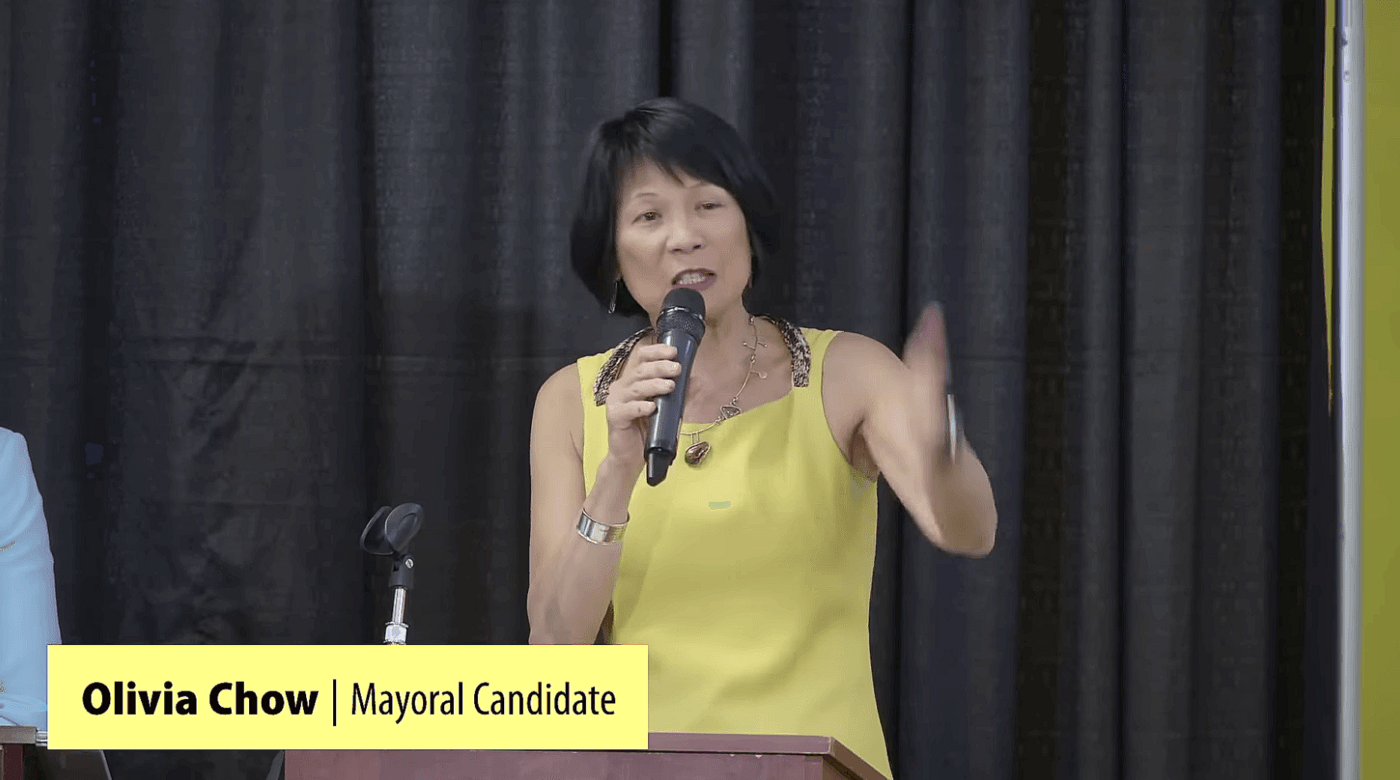
Olivia Chow speaking during the Toronto Mayoral Debate at Daily Bread Food Bank on May 15, 2023.

Food also served as an excuse to debate about taxes.
There’s a slightly convoluted series of conversational jumps to get from meal talk to tax talk, but here’s the breakdown: Programs to help renters have to be paid for, but the City is out of money. To get money, the City can raise taxes — namely property taxes — but that creates a new housing-related expense for the other half of the city, namely homeowners. And it’s an expense that, for some, could cut into their household grocery budget, leading us back to food.
This dilemma provided a prime opportunity for some political jousting, with Chow being the common target. As frontrunner in the polls, her suggestion to raise property taxes by an unspecified amount drew the ire of her competitors. Without citing any sources, Bailão claimed that levy could be as much as 39 per cent more than homeowners already pay, and called it a big blow to the pocketbook. (Chow didn’t respond directly.)
Bradford was even more pointed, saying Torontonians were “terrified” of Chow’s spending promises, and demanded to know how much she planned to “jack” their taxes. In response, Chow reiterated her various planned revenue tools, such as raising the vacant home tax and the land transfer tax for homes valued at over $3 million. “When you add it all up, it’s balanced,” she replied. When pressed again by Bradford, Chow acknowledged that many homeowners are “house rich and cash poor,” and said that as a city councillor, she had never voted for a large tax increase. “That is not my style,” she explained.
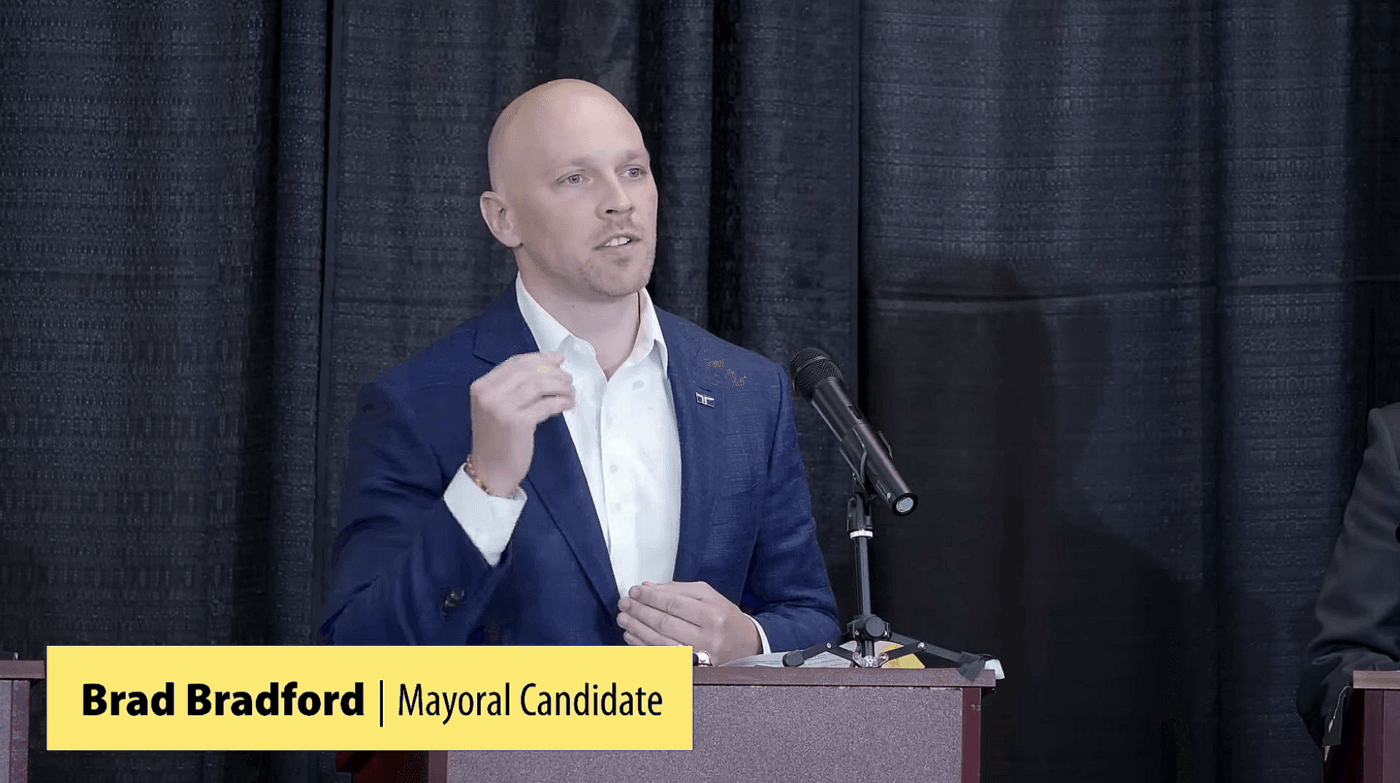
Brad Bradford speaking during the Toronto Mayoral Debate at Daily Bread Food Bank on May 15, 2023.

Bradford, whose platform prefers easing restrictions on the private sector over expanding publicly-funded programs (and notably, does not provide a breakdown of his own proposals’ costs), warned that the other candidates’ policies would make life more expensive for Torontonians, claiming their math doesn’t add up and therefore each would have to raise taxes by more than they’ve promised so far. (For context, each candidate’s proposals are at least marketed as ways to reduce costs for Torontonians, whether by reducing the cost of housing or something else.)
If the debate seemed to be drifting off topic, it’s because like most issues in this campaign, food insecurity is something over which the City has only limited control. As one audience member pointed out, Torontonians living off of provincial ODSP payments receive just $1,200 per month — an amount that places them well below the poverty line, and doesn’t even cover half the average rent of a one-bedroom apartment in Toronto. At the Daily Bread debate, Bradford slammed this as “legislated poverty,” yet pointed out that ODSP is a provincial program, so not something the city has the power to change. In the same vein, Matlow said he wished he could have debated Ontario Premier Doug Ford that day.
What the Ford government is doing for, and to, Toronto on food security

JACK HAUEN FOR THE TRILLIUM
Displaced Vancouverite who's become strangely knowledgeable about the politics and policy of the Centre of the Universe. Covering Queen’s Park since 2019. Especially enjoys using freedom of information requests to cause problems.
June 21, 2023
This story is part of a partnership between The Green Line and The Trillium for readers who care deeply about Toronto and the people, policies, and politics at play. We’re pairing The Green Line’s unique community-driven, solutions-oriented journalism with The Trillium’s signature insider coverage of Ontario politics and policy to dig deep into the city’s problems and connect you with the plans the Toronto mayoral candidates are proposing to fix them. This article was originally published on TheTrillium.ca
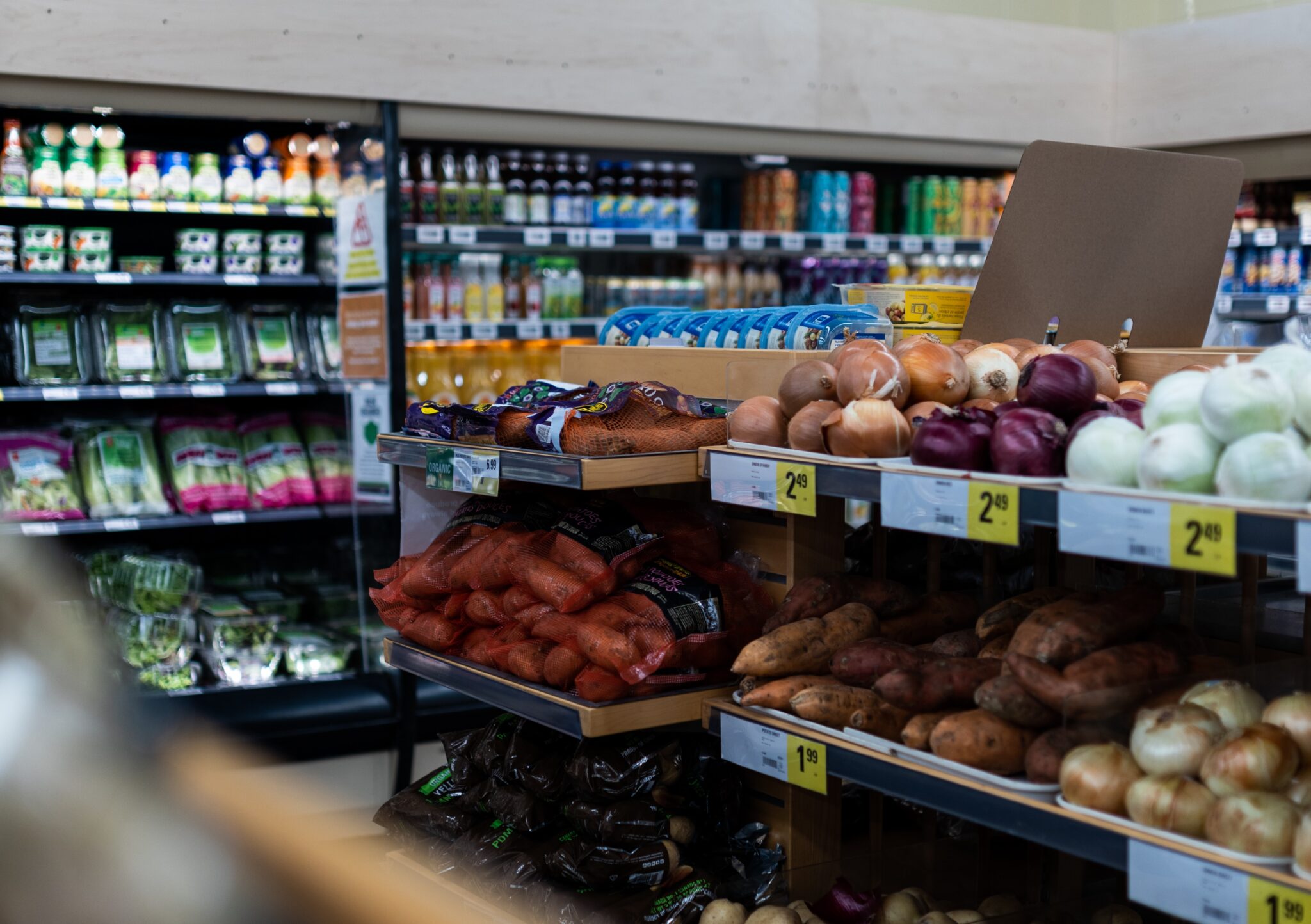
A grocery store in Toronto filled with fresh produce.

Nearly one in five Ontario households — 19 per cent — struggle with food insecurity, according to the Daily Bread Food Bank’s analysis of StatsCan data.
That’s about the same as the rest of Canada, but you’d be hard-pressed to find anyone satisfied with those numbers.
It’s no secret that the COVID-19 pandemic did a number on financial stability for everyone. But the effects, as with every crisis, are concentrated among those least fortunate.
Pandemic supports actually had a meaningful reduction in food insecurity and poverty in general, said Talia Bronstein, the VP of research and advocacy at Daily Bread.
But when COVID supports ended, things got worse. Inflation and corporate profits skyrocketed and ordinary people were left to pick up the tab — at the grocery store, on vacations, and even in their own homes.
At Toronto’s Daily Bread, visits jumped from 65,000 a month pre-pandemic to 270,000 in May of this year — a record number, and growing, Bronstein said.
The food bank has been able to meet the need thanks to a strong volunteer base and generous donations, but it’s not set up to do so, she said.
“We are concerned about our long-term sustainability if need continues to grow, because we're set up to be an emergency response when somebody needs short-term food relief,” she said. “But what we've been seeing over the years is a growing dependence on food banks, as people's incomes continue to fall further and further behind.”
So what is Ontario doing about it?
Not nearly enough, Bronstein said.
“First of all, Ontario does not have a food insecurity strategy,” she said. “Food Insecurity is not even mentioned in the Poverty Reduction Strategy. Ontario has the most narrowly focused Poverty Reduction Strategy I have seen in my career.”
Government support for food banks is mentioned a few times in that strategy, as well as one mention of food under the Women’s Economic Security Program.
But she’s right. Ontario currently does not have a specific plan to make sure everyone in the province is fed — at least, not a publicly accessible one.
The government’s sole poverty reduction goal, Bronstein said, is to move people from Ontario Works and the Ontario Disability Support Program (ODSP) into employment. Premier Doug Ford has spoken often about the need to get as many Ontarians into jobs as possible.
“The best way to help people on Ontario Works or ODSP, if they’re healthy and they’re able to work, get them a job,” he said in August 2020.
The trouble is, not everyone can work, advocates have noted. And plenty of people are employed but still can’t afford food, especially in cities as expensive as Toronto, Bronstein said.
“One-third of our clients are employed. So being employed is not necessarily a direct pathway out of poverty, as some might suggest,” she said.
When it comes to food insecurity, everything is connected. Incomes that aren’t keeping up with inflation, a lack of decent jobs, and a near-total dearth of affordable housing are all driving it forward, Bronstein said.
“The vast majority of food bank clients are paying more than half of their income on rent, which puts them at high risk of homelessness,” she said. “We see one in five food bank clients are paying 100 per cent of their income on housing in Toronto, which just tells you the depths of the housing crisis that we're in — that people have $0 to put towards food and have no choice but to rely on a food bank.”
In Toronto, monthly social assistance payments are hundreds of dollars short of covering basic food and shelter costs, according to Ontario Dietitians in Public Health. Two-thirds of households on social assistance are food insecure, one study found.
In 2022, the government raised ODSP rates by five per cent after sustained public pressure, amounting to about $58 more per month for a single person. It also boosted the amount people on ODSP could earn without having their assistance clawed back, from $200 to $1,000 per month, though payments after that amount were reduced from 50 to 25 cents on the dollar.
Advocates say it’s not enough, having come in a year where food inflation was 9.8 per cent.
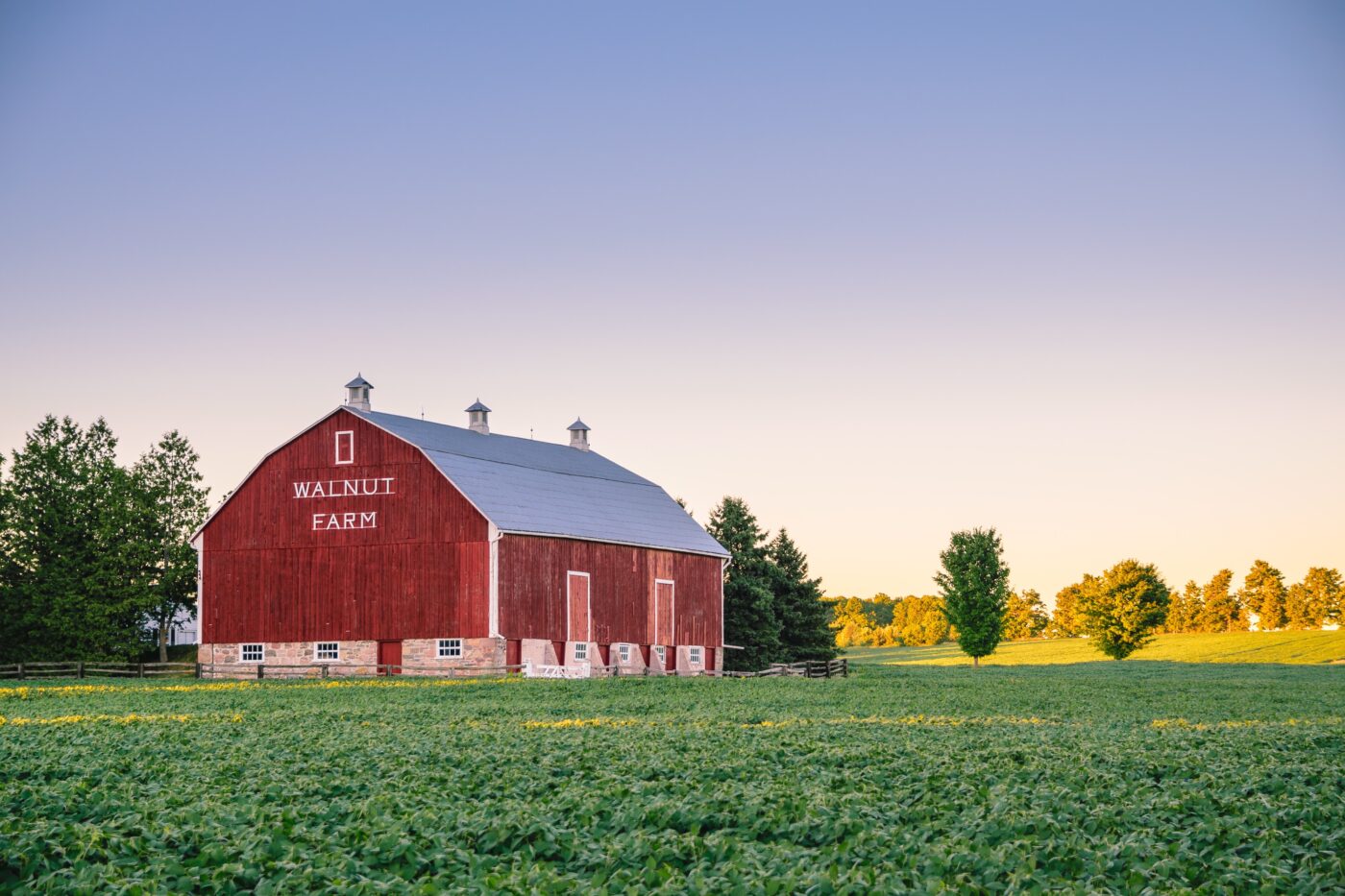
Barn in Sharon, Ont.

And then there’s the Greenbelt.
The Ford government has taken significant heat for planning to axe 7,400 acres from the protected area, much of which is farmland, with the goal of adding 50,000 homes there.
The government’s housing strategy also relies on expanding municipalities; urban boundaries into prime farmland, with no opportunity to push back.
Some experts say the Greenbelt is critical for farmers to know that their farmland will be maintained.
The government recently had to back off a plan to sever more farmland for housing, after farmers in the PC heartland pushed back strongly.
Still, Ford has been clear about his change of heart about the “so-called Greenbelt,” from promising to “maintain it in its entirety” to calling it a “big scam” and dodging questions about whether he plans to open up more of it.
When speaking about protecting it, he’s talked about “ponds, wetlands and marshes,” but not farmland.
Bronstein said governments and politicians can’t afford to ignore food insecurity. In a survey of Daily Bread clients, 95 per cent said they planned to vote, she said.
“And that totally contradicts historic research and typical assumptions about low-income individuals being less likely to vote,” she said. “So I think it's really important that candidates not discount a single voice.”
Over 10,000 people are unhoused in Toronto. How will our next mayor find shelter for them?

ANTHONY MILTON
Born and raised in Toronto, now based at College Street and Dovercourt Road. Master of Journalism grad from TMU. Writes about politics and culture in the city.
June 22, 2023
This story is part of a partnership between The Green Line and The Trillium for readers who care deeply about Toronto and the people, policies, and politics at play. We’re pairing The Green Line’s unique community-driven, solutions-oriented journalism with The Trillium’s signature insider coverage of Ontario politics and policy to dig deep into the city’s problems and connect you with the plans the Toronto mayoral candidates are proposing to fix them.
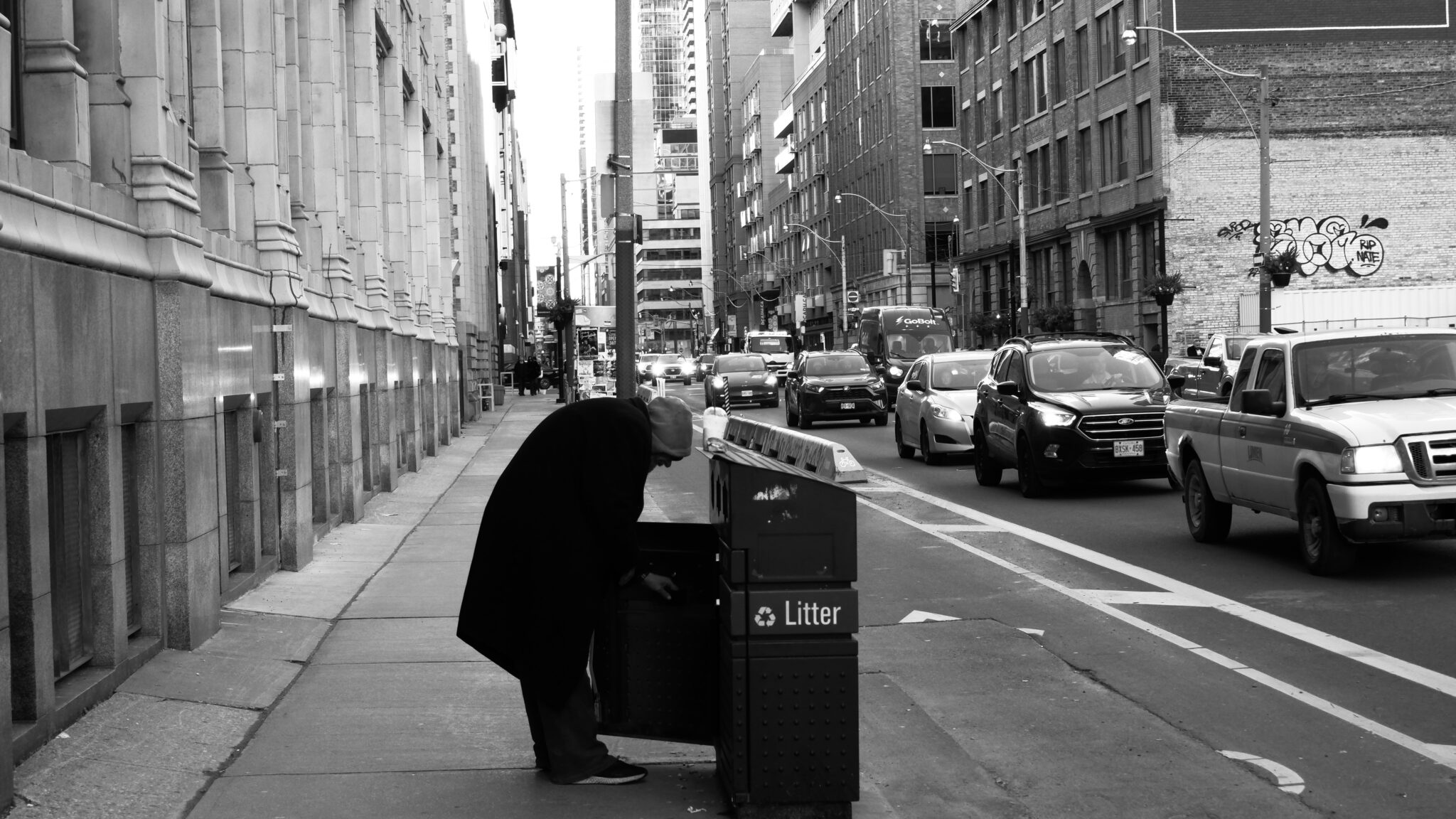
A person looking through a public garbage bin in downtown Toronto.

As part of our ongoing coverage of the 2023 Toronto mayoral by-election, The Green Line asked both our audience and all candidates to complete a survey, which included a question where they had to rank the policy issues they’d prioritize for the city today.
For our audience, the issues of food insecurity and homelessness tied for second place. Our last explainer took on food insecurity, so this one will look at what each candidate has said about helping unhoused Torontonians, or moving them out of sight.
Of the 31 candidates for mayor who completed The Green Line’s survey, 11 wrote about homelessness when asked to describe the major issues facing Toronto today. One lived through it: Matti Charlton said they’d spent time on the streets, and linked to their 150-plus page platform dedicated to ending homelessness. Solutions proposed by other candidates include lobbying the province for increased Ontario Disability Support Program (ODSP) payments, starting a lottery to fund programs to help the homeless, investing in programs for youth, increasing access to housing, and expanding services and supports for mental health and addiction treatment.
Homelessness: The other side of the housing crisis
In the latter months of 2022, there were over 10,000 unhoused people in the City of Toronto, according to a recent City report. As mentioned in The Green Line’s housing explainer, the City considers itself to be in two different housing crises: one where workers earning moderate incomes struggle to find affordable rentals, and another where low-income earners struggle to access any housing at all.
Both sides of the housing crisis require different solutions: Although increasing access to affordable housing can help moderate-income workers find a home, there’s a vast and complex array of services needed to assist the already-unhoused, and the leading mayoral candidates have proposals for many of them. Below, we’ll review each service, break down their purpose and look at what the candidates say they can do better.
Shelters
The City already plays a big role in providing services for unhoused people, overseeing or operating a total of 63 shelter spaces with more than 7,000 beds across Toronto. But the City can’t keep up with the rising demand, and says it’s missing $414 million in necessary funding. Indeed, the City’s shelter system served 20,700 individual people last year, but remains at capacity nearly every night.
Several leading candidates promised more support for the shelter system. Josh Matlow’s platform claims the system is “not safe or welcoming,” and pledges $15 million annually to improve its standards, plus $5 million for the Toronto Drop-In Network, which provides meals, showers and other resources. He also put forward a 10 per cent increase in the budget for City outreach programs, and would conduct a full review of shelter policies towards residents. Likewise, Mitzie Hunter promised 400 new shelter beds, while Ana Bailão said she’d invest $5 million to help shelter operators employ and retain workers.
Refugees from other countries make up a growing share of shelter users, with nearly 3,000 in May 2023 alone — that’s five times the number from September 2021. Brad Bradford said he’d call on the federal government to “take responsibility for supporting refugees” and provide support for the shelter system housing them, while Bailão said she’d “hold the federal government accountable for their financial responsibility to support refugees and newcomers in Toronto.”
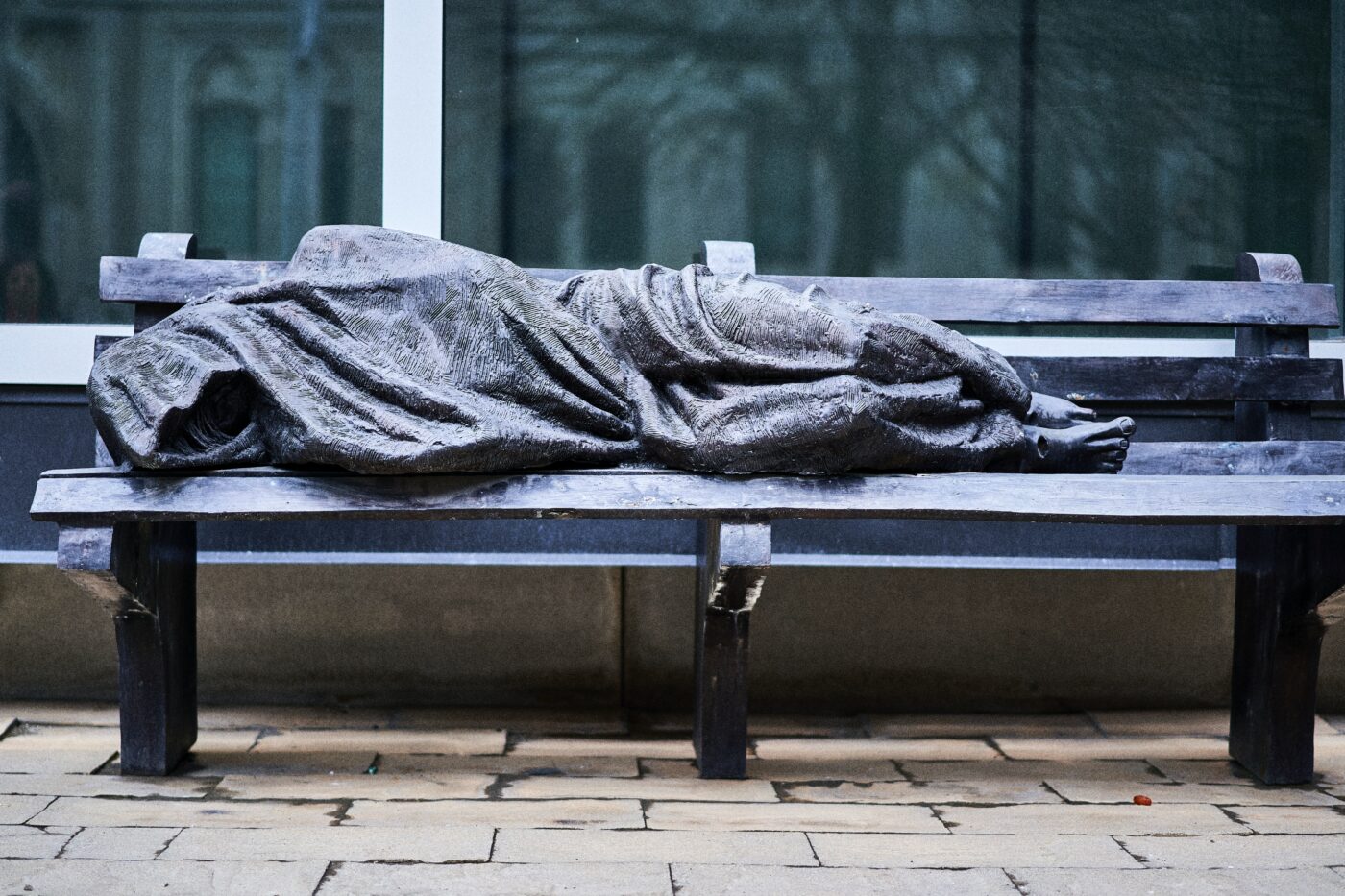
Sculpture of a person sleeping on a bench outside of Regis College at 100 Wellesley St. W. in the downtown Toronto neighbourhood of Bay-Cloverhill.

Respite Sites
The City operates 24-hour respite sites for unhoused people; it provides access to resting spaces, meals and referrals to support services. Matlow and Olivia Chow both promised $5 million to create more of these sites, while Hunter promised to do the same without stating a specific cost or number.
Supportive Housing
Another prong of the City’s approach to homelessness involves getting people off the street, and into “supportive” housing units, which also provide access to meals, health services, mental health and addiction support, and education. Hunter promised 2,000 more of these, while Bailão pledged 1,000 in 10 years. Bradford promised more units, but didn’t say how many, nor how he would deliver them. Rather than having the City build them, Saunders proposed negotiating with builders of new rental units to include supportive units in their projects, which would be run by nonprofits.
Through the Dufferin Grove Park Pilot Project, the City was able to convince people staying in 101 tents to move into shelters or housing. Bailão committed $5 million to expand the project city-wide, while Hunter promised five new outreach teams dedicated to getting homeless youth into supportive housing.
Rent Supplements
The City runs a rent supplement program, which provides a subsidy geared to their income to help them afford rent. Matlow promised to expand the qualifying criteria for these subsidies to help more unhoused Torontonians, and to create 2,000 new supplements. Chow pledged 1,000 supplements, and said she’d get the province and federal governments to match her investment.
Mental Health and Addiction
Many members of Toronto’s shelter system suffer from addiction and mental health problems. According to CAMH, between 23 and 67 per cent of unhoused people in Canadian cities may have a mental illness, while City statistics show overdoses are common in shelters. Although mental health and addiction supports are a component of supportive housing, only Saunders addressed these issues in his response to The Green Line’s survey, offering a plan focused on “treatment and rehabilitation” that includes providing free space in City buildings to nonprofits who deliver these services, and making unspecified “supports” available 24-7.
Human Rights vs. Public Safety
There’s also the tone in which each candidate presents Toronto’s homelessness crisis: Is it a human rights issue or a public safety issue? In The Green Line’s survey, most candidates viewed homelessness as a social issue requiring care for the people experiencing it. But others took a more outside-looking-in perspective, most notably Anthony Furey whose platform refers to the “blight” of tent encampments in city parks and includes an AI-generated image of disheveled people crowding a downtown sidewalk. In response to our survey, Furey promised to “phase out drug injection sites in order to fund more treatment centres,” and “clear park encampments and boost homeless shelter space.”

AI-generated image from Anthony's Furey's campaign materials.

Similarly, while Hunter pledged several policies to support unhoused people, her platform lists them under the theme of increasing safety. What’s more, in her response to The Green Line’s survey, she wrote, “As we fund our police service, we also need to prioritize community services, outreach programs and mental health supports to tackle the roots of our safety challenges” before going on to discuss funding for shelters.
After several forceful removals of tent encampments under former mayor John Tory in the name of public safety, these choices of words may be telling when it comes to future policy decisions made by our next mayor.
What the Ford government is doing for, and to, Toronto on homelessness

JACK HAUEN FOR THE TRILLIUM
Displaced Vancouverite who's become strangely knowledgeable about the politics and policy of the Centre of the Universe. Covering Queen’s Park since 2019. Especially enjoys using freedom of information requests to cause problems.
June 22, 2023
This story is part of a partnership between The Green Line and The Trillium for readers who care deeply about Toronto and the people, policies, and politics at play. We’re pairing The Green Line’s unique community-driven, solutions-oriented journalism with The Trillium’s signature insider coverage of Ontario politics and policy to dig deep into the city’s problems and connect you with the plans the Toronto mayoral candidates are proposing to fix them. This article was originally published on TheTrillium.ca
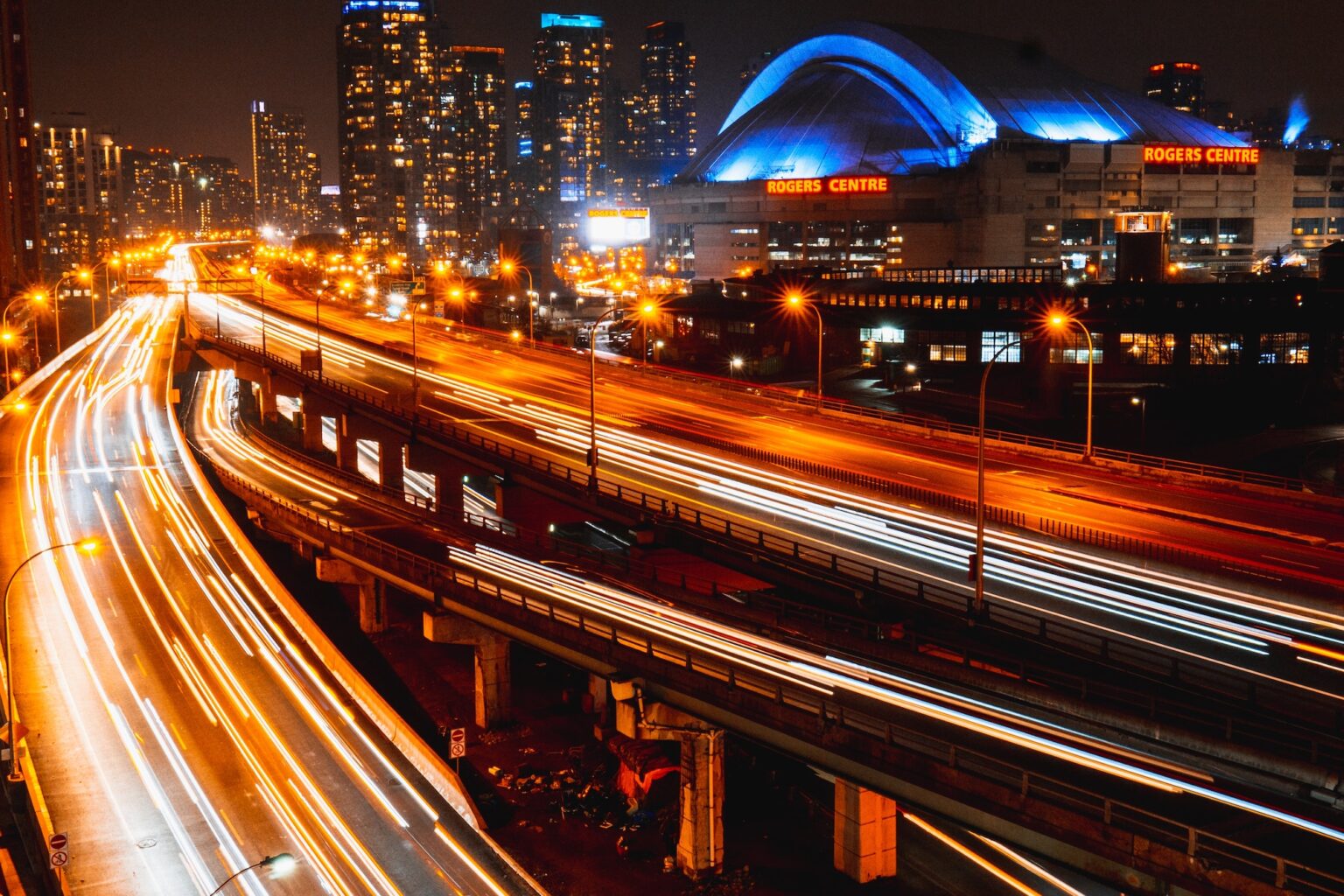
Downtown Toronto overlooking the Gardiner Expressway.

If you live, visit or work in Toronto, you’ve seen some of the estimated 10,500 people sleeping rough on the city’s streets.
Homelessness is a major problem across the province, but like many major cities, Toronto feels pronounced effects.
Explaining the provincial government’s approach depends on how you define anti-homelessness policies. Is every policy aimed at getting the housing crisis under control, in some way connected to homelessness? What about mental health or addictions plans? Or municipal funding in general, since they deliver most homelessness services?
As for policies that put homelessness front and centre, Ontario’s approach has relied on funding municipalities and community organizations so they can have “flexibility” — not creating top-down directives.
Asked what she thought of Ontario’s strategy, Toronto community worker Diana Chan McNally said, “There is no strategy, so it’s impossible to rate something that doesn’t exist.”
McNally recently finished up a stint working for the NDP’s affordability critic, Bhutila Karpoche, but is now back to the front lines.
In April, the government announced $202 million in additional funding through the newly created Homelessness Prevention Program, which was three separate programs rolled into one. The extra funding was a 40-per cent increase in funding for homelessness prevention, Municipal Affairs and Housing Minister Steve Clark said. But critics still have questions about the program.
“It's actually unclear exactly what it can be utilized for. And from my understanding, without any clarity, it's just for supports in supportive housing, and not for brick-and-mortar housing and not for other forms of homelessness prevention or outreach, which is extremely limited,” McNally said.
Supports could include staff salaries, food, bedding, and hygiene supplies, she said.
McNally also said she’s spoken with Indigenous organizations that have been pleased with their $11.5 million allotment from that $202 million.
“That funding has been fairly nonexistent (in the past), so that there was any funding going into this at all is a good thing. But ultimately, again, $11.5 million for the province is still meagre,” she said.
The Tories are all-in on their sweeping changes to how and where Ontario builds housing. The goal of expanding supply is to get prices down, or at least frozen, so the average person can have a shot at a white picket fence. But that doesn’t do much for someone with no money for rent.
“Beyond the fact that that's not going to address urban homelessness, and this type of housing is not the kind of housing that most people, even middle-class people, would even be able to afford, they’re not even building that amount of housing,” McNally said.
To meet its goal of 1.5 million homes over the next decade, Ontario will need to build an average of 150,000 homes a year. The province has gotten to around 100,000 in 2021 and 2022. Clark has acknowledged the deficit and that there’s more to do. And it will take some time before the full brunt of his policies will be felt.
Proponents of the “housing-first” model aim to solve the problem by getting people into homes first, then worrying about how they’re going to pay for it. The idea is that it’s a lot easier for someone to get their life together without worrying about where they’re going to sleep every night.
It’s an approach that’s seen great success in Finland. Unfortunately, it’s a lot harder to implement in Canada, said McNally, who went to Finland in November and spoke with housing-first mastermind Juha Kaakinen.
There are a lot more people experiencing homelessness here, for one. But in Toronto, which officially subscribes to a housing-first plan, the process is also much more bureaucratic — people have to have proper ID and their taxes done, she said.
“Whereas in an actual housing first approach, it's like, okay, well, here's your housing. We will figure out the rest later,” she said.
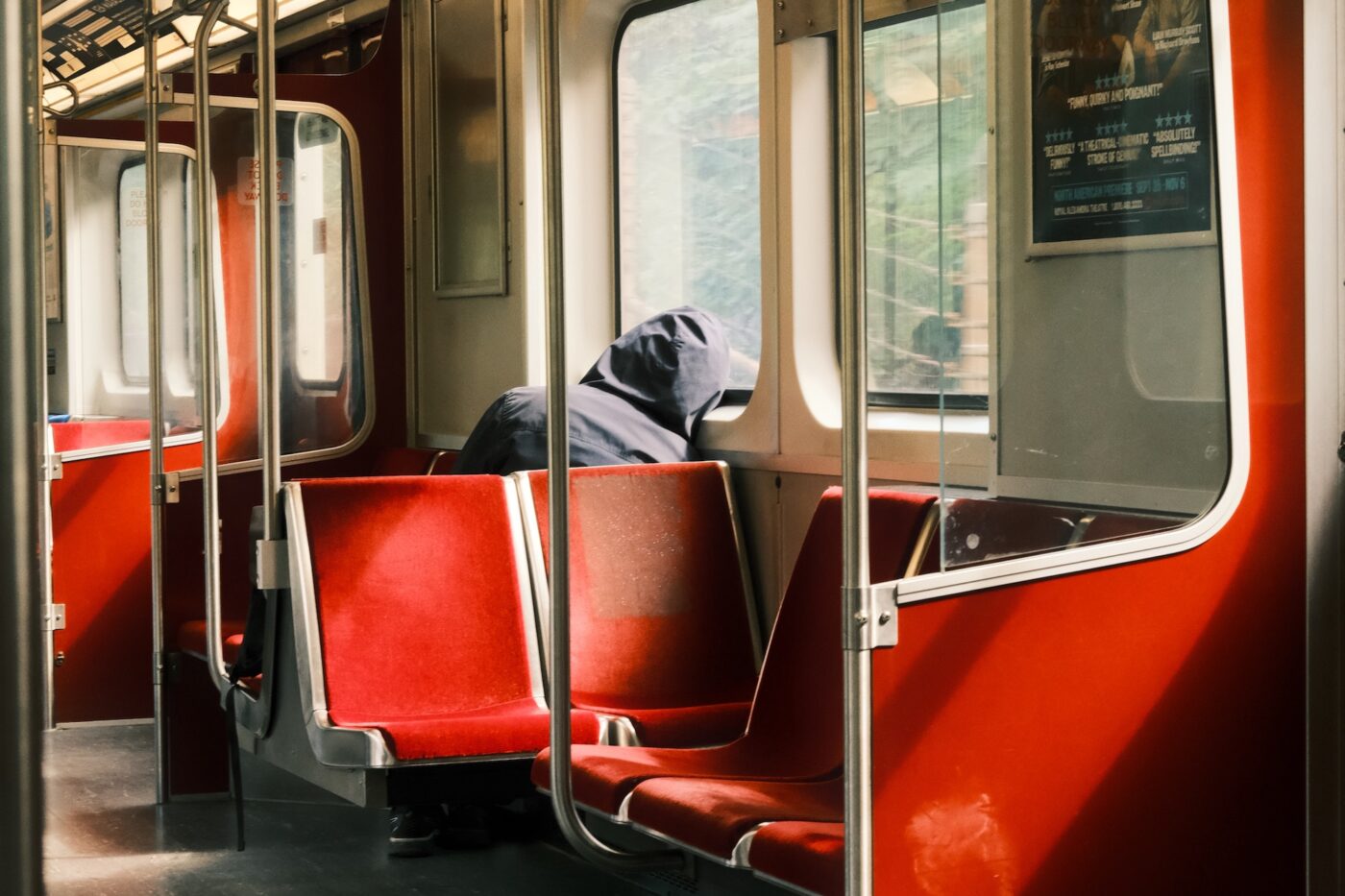
A person sleeping on a TTC subway car.

The provincial government has also issued ministerial zoning orders (MZOs) for modular and supportive housing projects in Toronto. But those have occasionally run into fierce opposition from NIMBYs and occasionally from within the PC caucus.
There’s also a cultural difference, McNally said. Finland has NIMBYism too, but more Finns view homelessness as a collective responsibility, as opposed to the more individualistic North American outlook, she said.
Most of the people McNally works with are on Ontario Works or the Ontario Disability Support Program (ODSP), which is not enough to live on, she said. Doubling the rates, as the Greens and NDP proposed in the last election, is “the bare minimum,” she said.
The province’s removal of rent control on new units, back in 2018, is “still extremely problematic,” McNally said.
“It's happened to me multiple times, that a landlord has created some fake application to remove me from the unit and then you see the unit go back up on the market for sometimes 50 per cent more than I was paying,” she said.
Clearing the Landlord and Tenant Board backlog, which the PCs have vowed to do, will also likely hurt people on the edge of homelessness, since the vast majority of applications are from landlords, McNally noted.
There aren’t enough supports for the trauma that comes with living on the streets — but there shouldn’t need to be, she said.
“You have to ask, do we really need supportive housing, or is it because we've let people be on the street for so long — sometimes years and decades at a time — that they're no longer able … to actually live independently?” she said.
Ending homelessness is a massive undertaking and one that essentially every Canadian government, at all levels, has paid lip service to at some point.
McNally is not hopeful.
“I think things are going to get significantly worse,” she said. She pointed to Toronto’s recent policy of turning away refugees from shelters. “That is dire. That’s extremely dire.”
“Again, I am a front-line worker. I was working at Queen's Park … I don't see anyone really taking into account how bad it's gotten. Any party, any level of government,” she said. “And we're just not seeing the commitments in terms of housing and all the other factors — income, health support, mental health, etc., that I mentioned — being put into play anywhere.”
Olivia Chow wins Toronto mayoral by-election

ANTHONY MILTON AND KUWARJEET SINGH FOR THE GREEN LINE
Hyperlocal, independent media outlet that investigates the way we live to help young and other underserved Torontonians survive and thrive in a rapidly changing city.

JACK HAUEN AND CHARLIE PINKERTON FOR THE TRILLIUM
Trusted source for insightful, in-depth coverage of politics and policy-making in Ontario. The Trillium is operated by Village Media, which runs nearly two dozen local news websites across Ontario
June 26, 2023
This story is part of a partnership between The Green Line and The Trillium for readers who care deeply about Toronto and the people, policies, and politics at play. We’re pairing The Green Line’s unique community-driven, solutions-oriented journalism with The Trillium’s signature insider coverage of Ontario politics and policy to dig deep into the city’s problems and connect you with the plans the Toronto mayoral candidates are proposing to fix them.
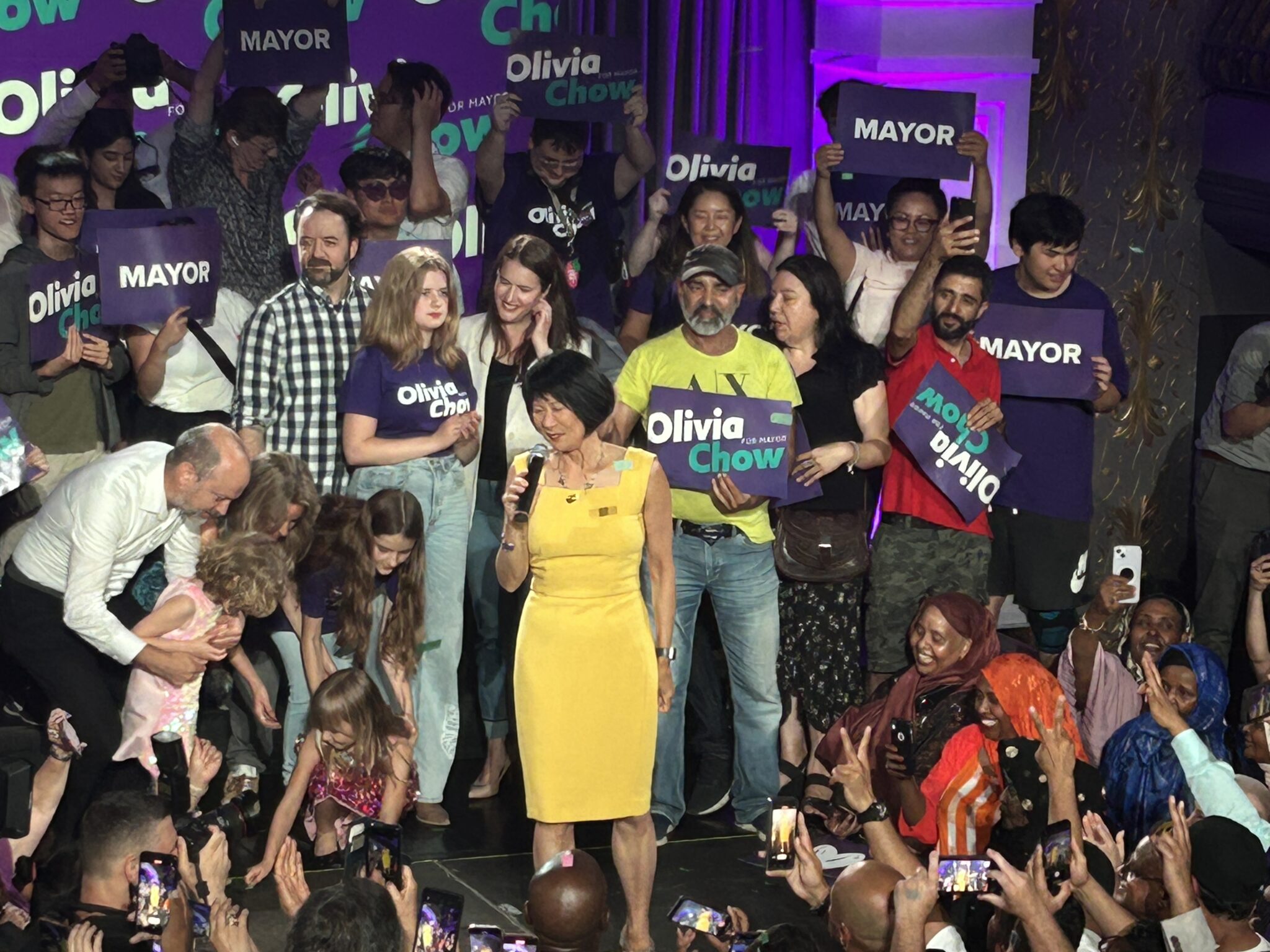
Mayor-elect Olivia Chow making her victory speech at her campaign party on election night on June 26, 2023.

Olivia Chow has been elected mayor of Toronto, winning by a slim margin after dominating the polls throughout the campaign.
In her victory speech, Chow thanked supporters for the “mandate for change” she was given. She said she wants to build more affordable housing, make transit safer and more reliable, and keep Ontario Place public, despite the provincial government’s plans to build a mega spa on the site.
Today is the “starting point,” Chow said, calling on the crowd to keep sending her their ideas and promising to “open up city hall.” It won’t be easy, she said, “but I know we can make it happen by committing ourselves to each other and to the city we love.”
Chow said she got a call from Premier Doug Ford, who said he was ready to work with her on shared priorities like building homes and transit.
“The people have sent a message today: they want to get things done,” she said, stealing Ford’s campaign slogan.
“Well, Mr. Premier, we are ready. Let’s work together to get it done.”
The former Toronto councillor and NDP MP quickly became the frontrunner when she jumped into the race this spring and kept a wide polling gap between herself and the other contenders. Several of her opponents pitched themselves as the only ones able to stop Chow, and none dropped out.
She narrowly defeated former deputy mayor Ana Bailão, 37 per cent to 32 per cent. Bailão was the choice of former mayor John Tory, whose resignation kicked off the by-election, and she pitched herself as a pragmatic consensus-builder. It did not resonate with quite enough voters after nearly a decade of Tory's pragmatic consensus-building.
The vibe at Chow HQ — The Great Hall on Toronto’s Queen Street West — whipped between tense and euphoric throughout the night. Supporters were all smiles before polls started trickling in at 8 p.m., taking advantage of the well-stocked bar at the back of the room. When Bailão jumped out to a 5,000-vote lead and stayed there, brows furrowed, faces turned downward and fingers refreshed various live-results pages.
Meanwhile, cheers grew to a fever pitch at Bailão’s party in the cavernous Revival in Little Italy.
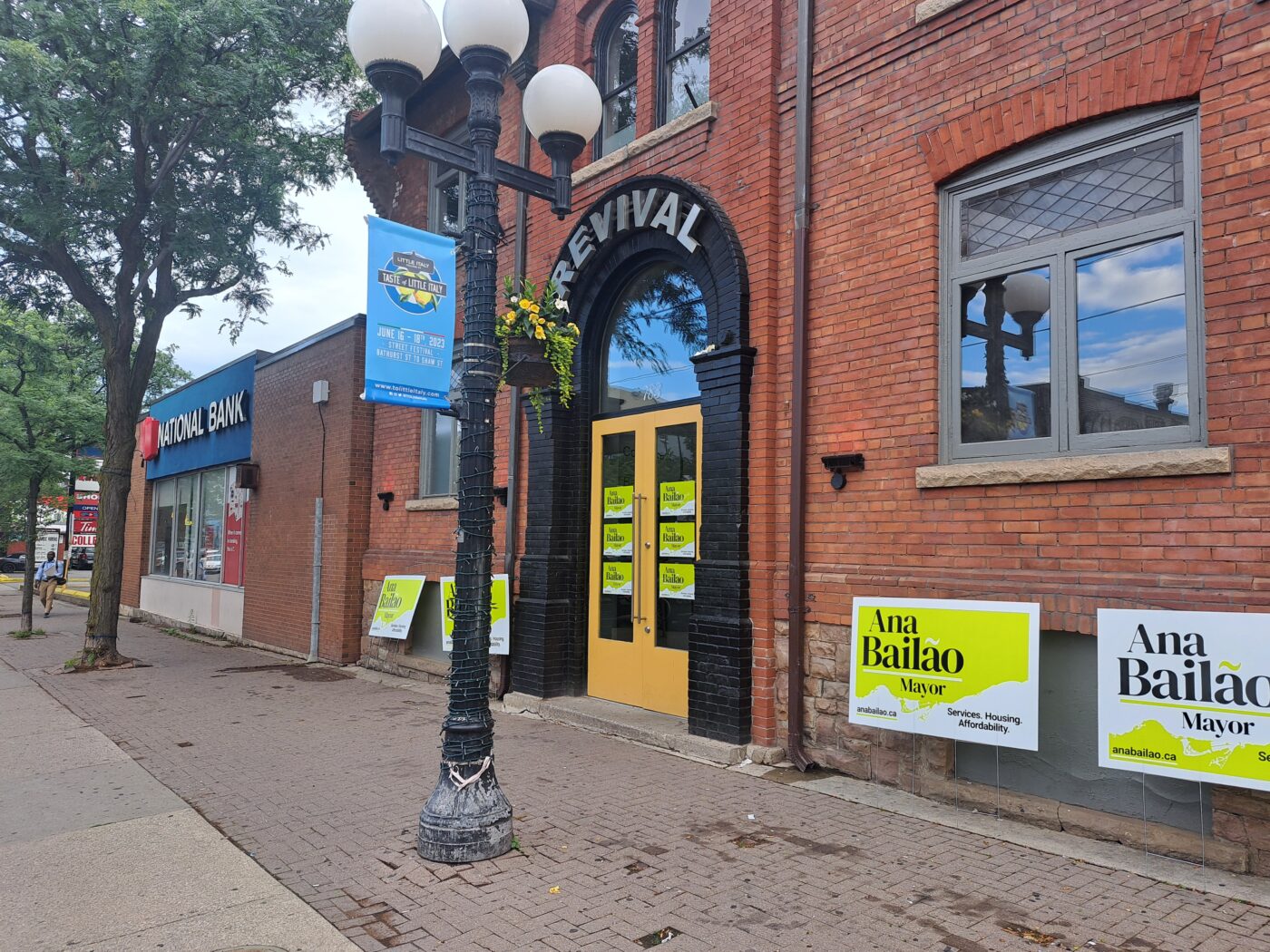
Ana Bailão's campaign party headquarters.

But it was not to last.
At 8:30 p.m., with 86 per cent of polls reporting, Chow had her breakthrough. The giant CP24 projector at Chow’s party showed a 2 per cent lead for the home team. The place exploded. Chants of “O-liv-ia!” broke out. “I Gotta Feeling” by the Black Eyed Peas blared on speakers.
As Chow pulled ahead, a sullen silence fell over Bailão’s crowd. Supporters who had just been jumping up and down stood still, hands over mouths, as Bailão’s lead melted away. Not 20 minutes later, people started moving towards the door.
The lead only grew for the next half hour until, one by one, outlets called it for Chow. When CP24 interrupted its expert panel to confirm the news, the shrieks at Chow’s party began anew and a disembodied voice let everyone know the mayor-elect would wait for the runners-up before giving her victory speech.
— THE GREEN LINE (@TheGreenLineTO) June 27, 2023
When Bailão took the stage, she was celebratory, declaring “I have no regrets” to more cheers and chants of “Ana! Ana!”
"We took it to Scarborough, we took it to North York, we took it to Etobicoke and we took it to downtown, and people listened, with the amount of votes that we got tonight,” she said. “I have no regrets.”
“I’m really very grateful to all the people that worked so hard. I’m very proud to have brought people from across the political spectrum and across different sectors — from labour to business to mayors and city councillors and former city councillors.”
So, what’s next for Bailão? “Continue to just think.”
Asked about the effect of John Tory’s endorsement on her result, Bailão told The Green Line, “I think that the work that this campaign has done, the fact that I had nine councillors endorse me and three mayors — including John Tory — it demonstrated to people the fact that I bring people together, the fact that I have the experience and the leadership and the track record, and people were comfortable with saying that and expressing that.”
— THE GREEN LINE (@TheGreenLineTO) June 27, 2023
The outcome marks the second political defeat for Mark Saunders, who earned only 9 per cent of the vote. The former Toronto police chief was seen by some — including Premier Ford — as the right's best shot at holding onto the mayor's office. Saunders ran in the 2022 provincial election under the PC banner in Don Valley West and lost to Liberal Stephanie Bowman.
Near the end of the campaign, Saunders anointed himself the “Stop Olivia Chow” candidate and brought that message to the premier’s summer Ford Fest party.
But speaking to supporters at his election night party shortly after Chow’s victory was sealed, Saunders called on Torontonians to “support Olivia Chow.”
“We want what’s best for the best city in the world,” said Saunders, who also thanked his supporters, fellow candidates and family in his short speech.
Chow also batted away serious contenders for the progressive vote. Longtime councillor Josh Matlow was a potential frontrunner before Chow entered the race, but took home only 5 per cent.
“I look forward to having a coffee with mayor-elect Chow. She and I spoke earlier this evening, and we'll have a conversation about the best ways that I can contribute to the success of this city,” he said to a small group of supporters who gathered for him at a Bay St. bar. “She's somebody who I know I can work with in a collaborative constructive way.”
He said he believes that he got squeezed between Bailão and Chow’s campaigns, which made it a two-person race, costing him progressive voters who went to the winner.
He maintained some momentum until the final weeks when support consolidated behind Chow. And mere days after Chow announced she was running, urbanist Gil Penalosa — the left’s standard-bearer in the 2022 election — dropped out of the race and endorsed her.
Meanwhile, former Liberal MPP Mitzie Hunter pitched the most detailed plan of any candidate, with specific tax rates and policies in a costed, 70-page platform, and released a podcast on her plans to "Fix the Six" but failed to gain traction, winning only 3 per cent.
Chow was less detailed, especially about her fiscal plans. The city faces a $1.5-billion budget hole, and she has refused to spell out exactly how she would fill it. She needs to take stock of what the city should accomplish, then figure out a way to pay for it — not the other way around, Chow has said.
She butted heads with Ford repeatedly during the campaign. Ford made a last-ditch effort to steer voters away from Chow last week, saying it would be an "unmitigated disaster" if she were elected.
Likewise, Chow has been critical of the premier's plans for Ontario Place and the Science Centre but has not attacked him as pointedly as other candidates.
She has promised not to use the strong-mayor powers Ford bestowed on the mayors of Toronto and many other cities.
After Chow’s victory was clear, the premier issued a conciliatory statement, praising her “desire and dedication to serving the city that many of us call home.”
“I hope that we continue to have a willing partner in the city of Toronto as we deliver on our plan to build Ontario,” he said. “As I’ve always said, I will work with anyone ready to work with our government to better our city and province.”
Here's your chance to support the only independent, hyperlocal news outlet dedicated to serving gen Zs, millennials and other underserved communities in Toronto. Donate now to support The Green Line.
PART 3
TUNE IN: FOR A BETTER TORONTO
Join us for a night of music, art and community-focused conversations that explore the Toronto we could become. A party hosted by The Green Line, Green Majority Radio, CIUT-FM and The Grind.
About the Event
On June 26, 2023, we'll have a rare opportunity to reshape Toronto’s future. Imagine a city where music and arts thrive, where the most vulnerable are cared for and where real action on climate change is taken. This is what's possible if we come together and act now. That's why The Green Line and our partners are bringing together incredible local talent to host a night of joy, art, music and conversation for a Toronto that we can be proud to call home. Buy tickets now for our in-person event.
Events are an essential part of our Action Journey. We want to empower Torontonians to take action on the issues they learn about in The Green Line — so what better way to do that than by bringing people together? From community members to industry leaders, anyone in Toronto who’s invested in discussing and solving the problems explored in our features is invited to attend. All ages are welcome unless otherwise indicated. Our only guidelines? Be present. Listen. Be kind and courteous. Respect everyone’s privacy. Hate speech and bullying are absolutely not tolerated. At the end of the day, if you had fun and feel inspired after our events, then The Green Line team will have accomplished what we set out to do. Any questions? Contact Us.
PART 4
BUILDING A BETTER TORONTO
Event Overview
See what you missed
from our latest event.
Our community members brainstormed solutions for improving the city.
Compiled by Amit Nehru.
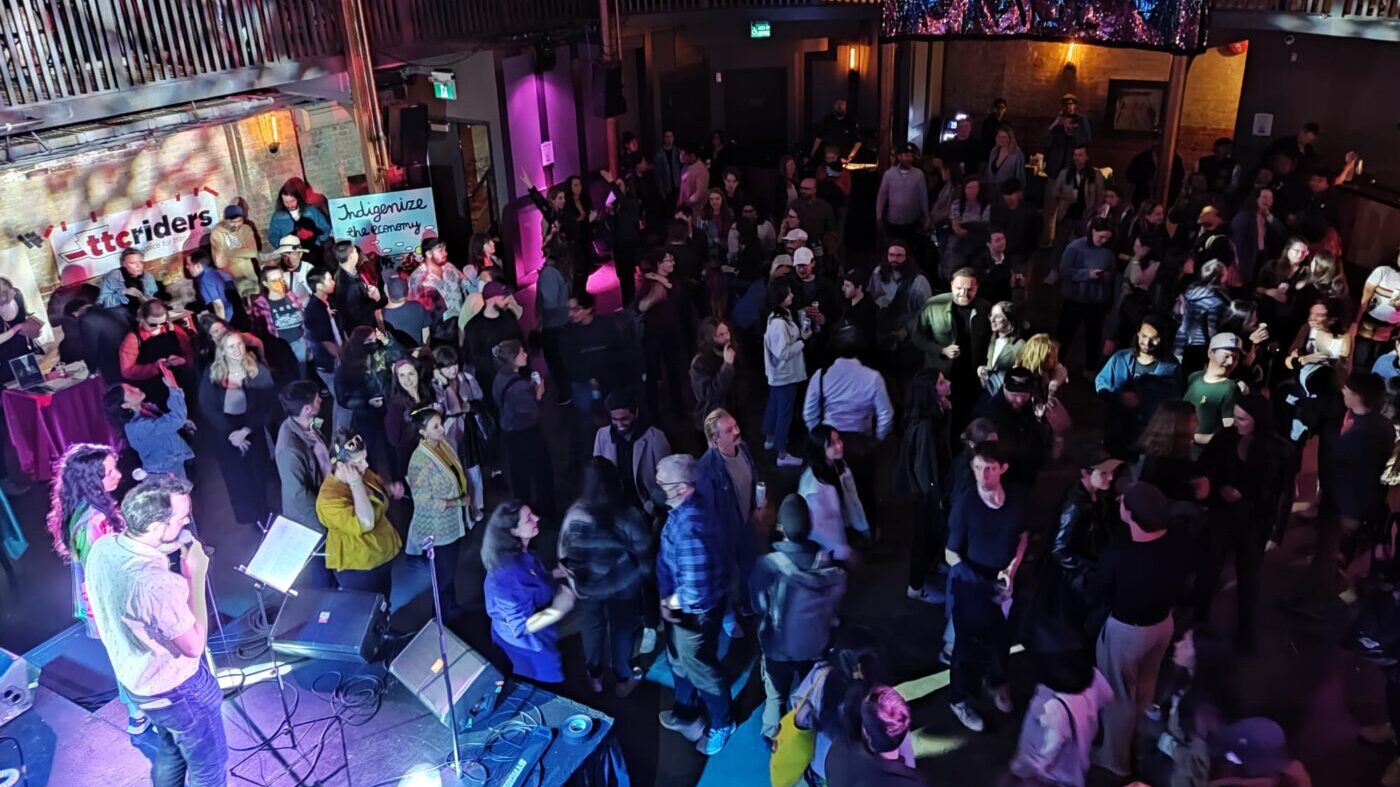
Tune In co-organizers Stefan Hostetter and Norhan Haroun speak to the attendees.
📸: THE GREEN LINE TEAM.
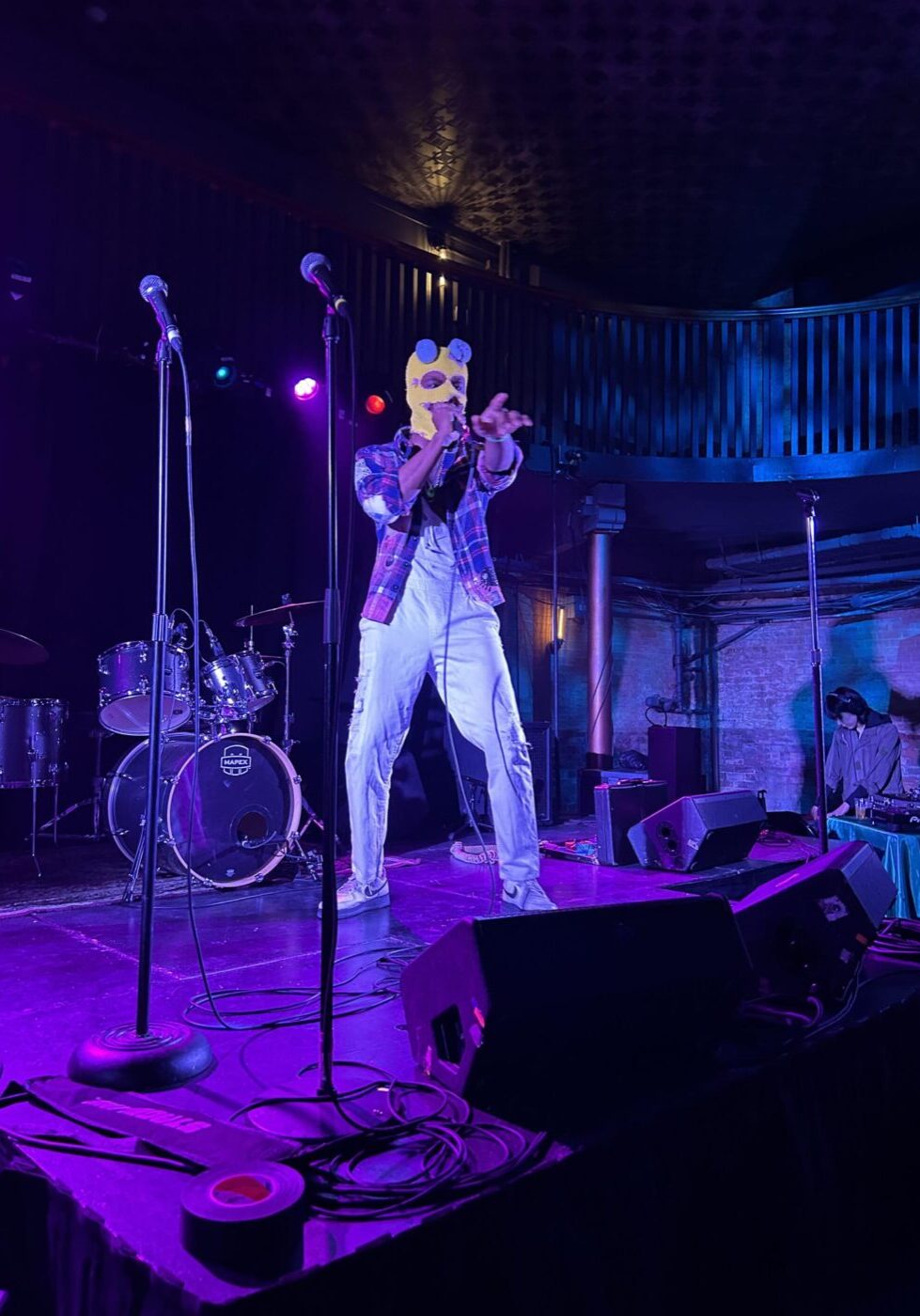
Rapper Kemdilo performs on stage.
📸: THE GREEN LINE TEAM.
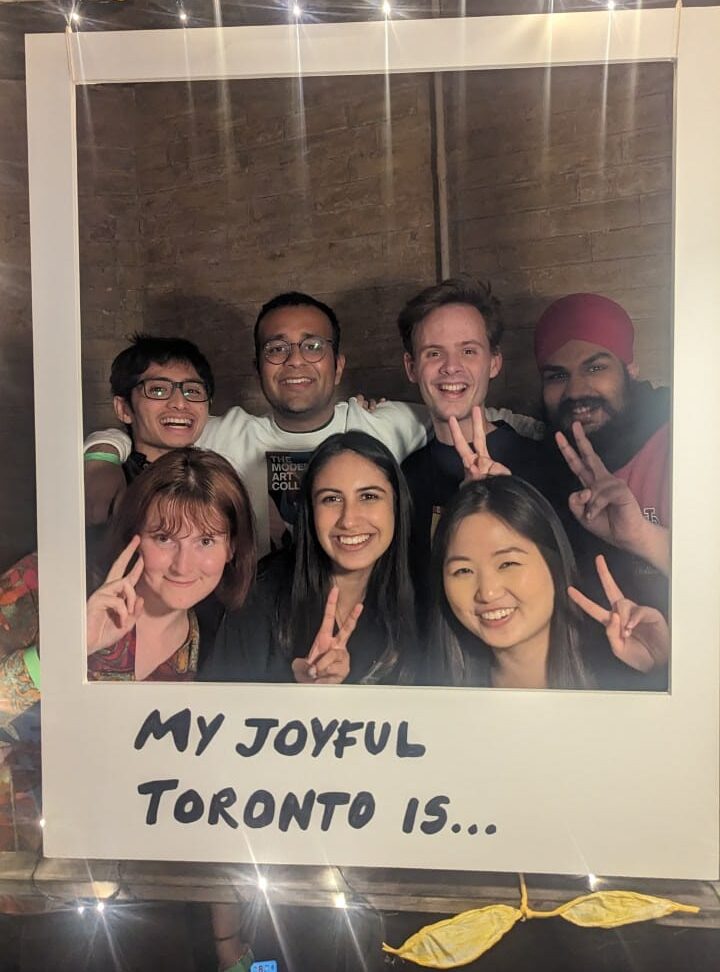
The Green Line team poses at the Tune In photo booth.
📸: THE GREEN LINE TEAM.
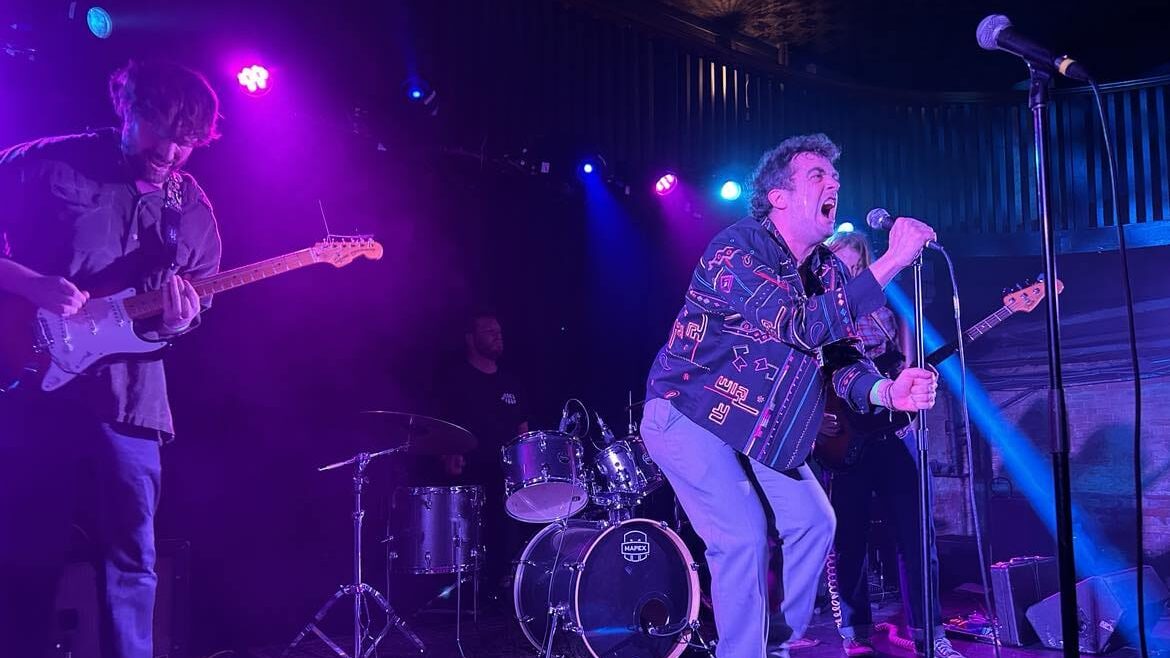
Rock band Yound performs on stage.
📸: THE GREEN LINE TEAM.
SOLUTIONS
ACTIONS
Do something about the problems that
impact you and your communities.
Support a Community
Land Trust in Your Area
If you live in an area that's being served by a community land trust (CLT), consider volunteering with them. CLTs have several committees, including those that help acquire new land, raise funding and promote equity within the community. If you don’t live in the area, some CLTs allow non-community members to sign up, too (e.g. Parkdale Neighbourhood Land Trust).
Visit a
Modular Housing Unit
The City of Toronto provides a list of existing and upcoming modular housing sites. Go to open houses to check out whether this housing option would be a good fit for you or someone that you know.
Join or Start Your
Own Community Garden
The City of Toronto provides a step-by-step guide for how to do this.
Join Our
Community
Continue the conversation with other Green Line community members.
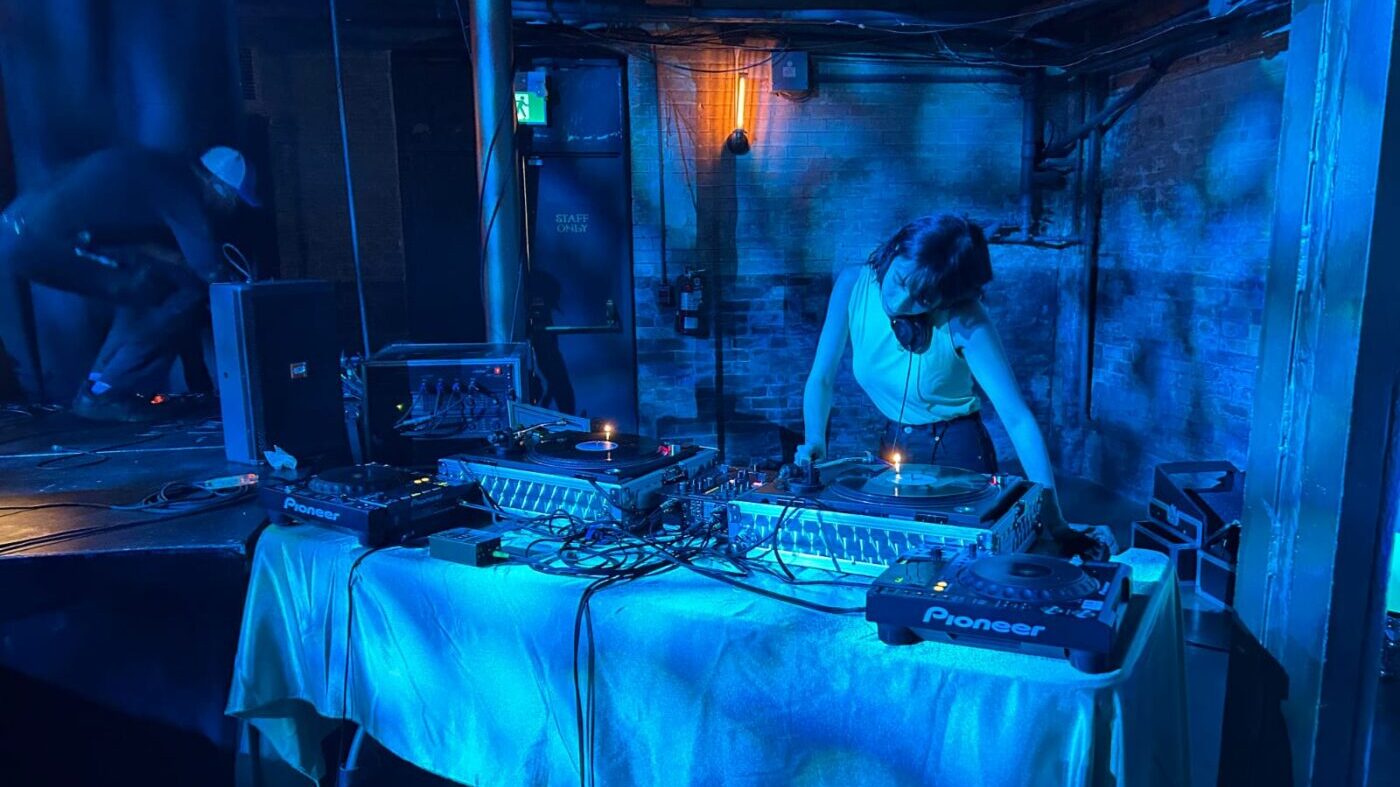
DJ Automaticamore spins late into the night at Tune In.
📸: THE GREEN LINE TEAM.
Supporting The Green Line means supporting Toronto. Join our membership program today, so you can redefine our city as you see it.
